
Educational Innovation and Digital Education at Tecnológico de Monterrey


Educational Innovation and Digital Education at Tecnológico de Monterrey


Editorial
I. 80 years of educational innovation and digital learning
II. Impact of educational innovation
Educational innovation in numbers
III. Impact of digital educationl
Digital education in numbers
Continuing education in numbers
IV. Innovative educational and digital experiences in the institution
School of Architecture, Art, and Design
School of Social Sciences and Government School of Humanities and Education
School
Engineering and Sciences
School of Medicine and Health Sciences
Business School
High School
LiFE
Continuing Education
V. Institutional initiatives and innovative digital experience drivers
Adaptive learning
Immersive learning with extended reality
Curricular and alternative credentials
Teacher development and
educational innovation
The ecosystem of educational technologies
Innovative educational spaces
Internationalization
Laboratories, software, and digital resources
NOVUS projects
TecDigital
Educational trends and innovative pedagogical experiences
VI. Our educational innovation and digital education in the world
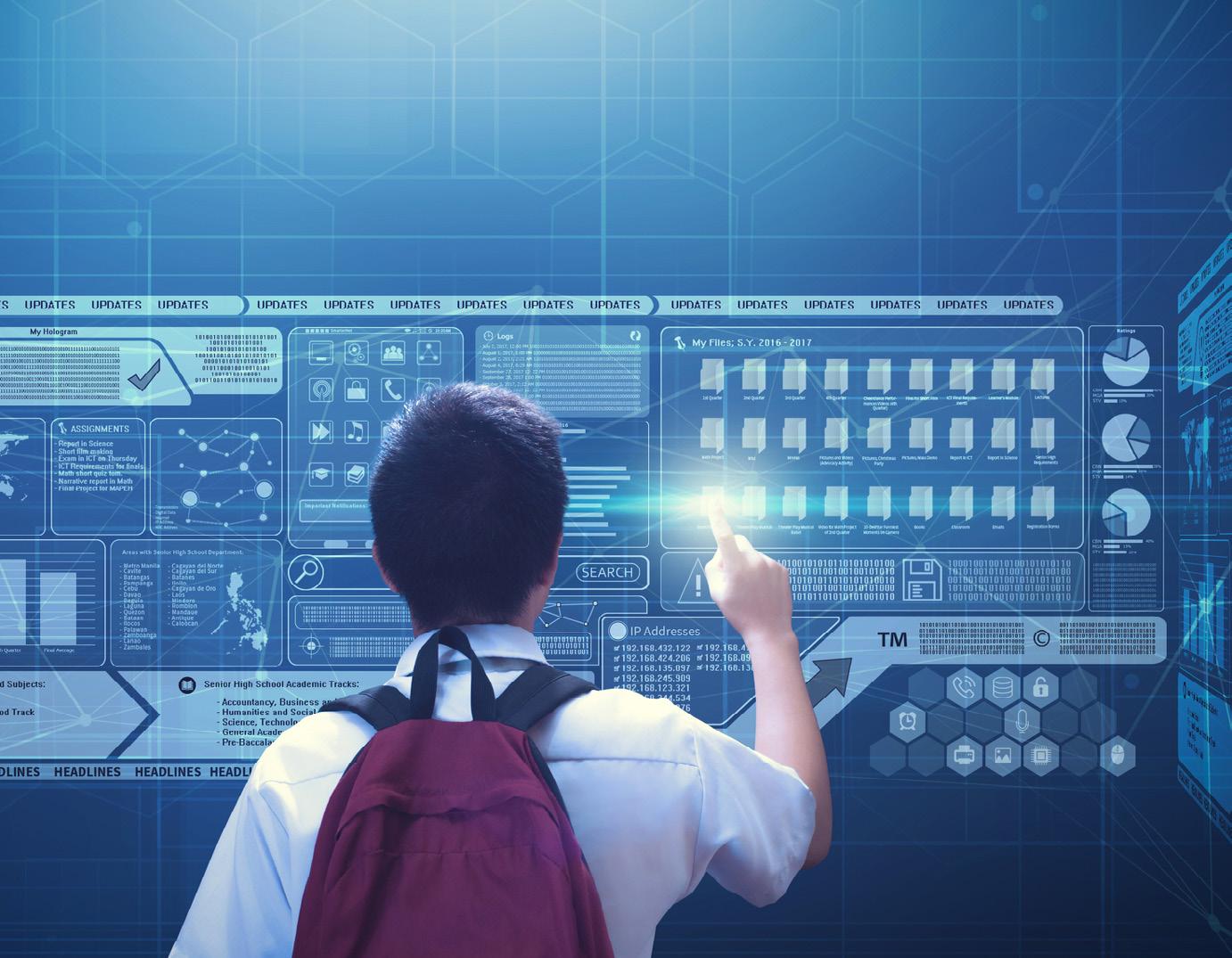
Undoubtedly, 2022 has been a year full of challenges and achievements for Tecnológico de Monterrey. As a higher education institution, we have stood out in several international academic quality rankings; we have participated in numerous initiatives not only on teaching-learning but on important advancements in areas like health, business, science, and technology; and we have also collaborated with leading education institutions and organizations to provide and exchange ideas, knowledge, best practices, and success stories in multiple disciplines.
If we could sum up the essence of these achievements in a single word since the founding of Tecnológico de Monterrey in 1943, it would be innovation. And, as usual, the reason for our existence: our students. For 80 years, the goal of our institution has remained the same: to develop the professional and human potential of each of our students, offering them education, resources, and cutting-edge academic programs of excellence.
For all this, 2022 could not be the exception. In the present report on educational innovation and digital learning, we wish to share the critical aspects of our advancements and achievements this year with the academic community and society.
First, we invite you to learn the impact of educational innovation and digital education numbers on our students, faculty, courses, and modalities, each corresponding to high school, undergraduate, graduate, and lifelong learning.
Also described within are the most remarkable innovative and digital educational experiences in our institution, offered by the following schools and programs: School of Architecture, Art, and Design;
School of Social Sciences and Government; School of Humanities and Education; School of Engineering and Sciences; School of Medicine and Health Sciences; Business School; PrepaTec; Lifelong Education; and LiFE.
You will also find information regarding the various institutional initiatives and drivers of digital educational and innovative experiences, such as adaptive learning; immersive learning with technology; alternative credentials; innovative educational spaces; Biblioteca Digital; CEDDIE; internationalization; TEDU; NOVUS; and Observatory of the Institute for the Future of Education.
Lastly, we share with you the progress of educational innovation and digital education of Tecnológico de Monterrey worldwide through our publications, certifications, and awards received throughout the year.
We hope the information condensed in this 2022 report will be a sample and an invitation to keep innovating with us. As an institution, we enrich students’ learning as citizens of the world; together, as a society, we are transforming the world, strengthening the foundations, and moving step by step toward that better future we hope to reach.
80 years of educational innovation and digital learning
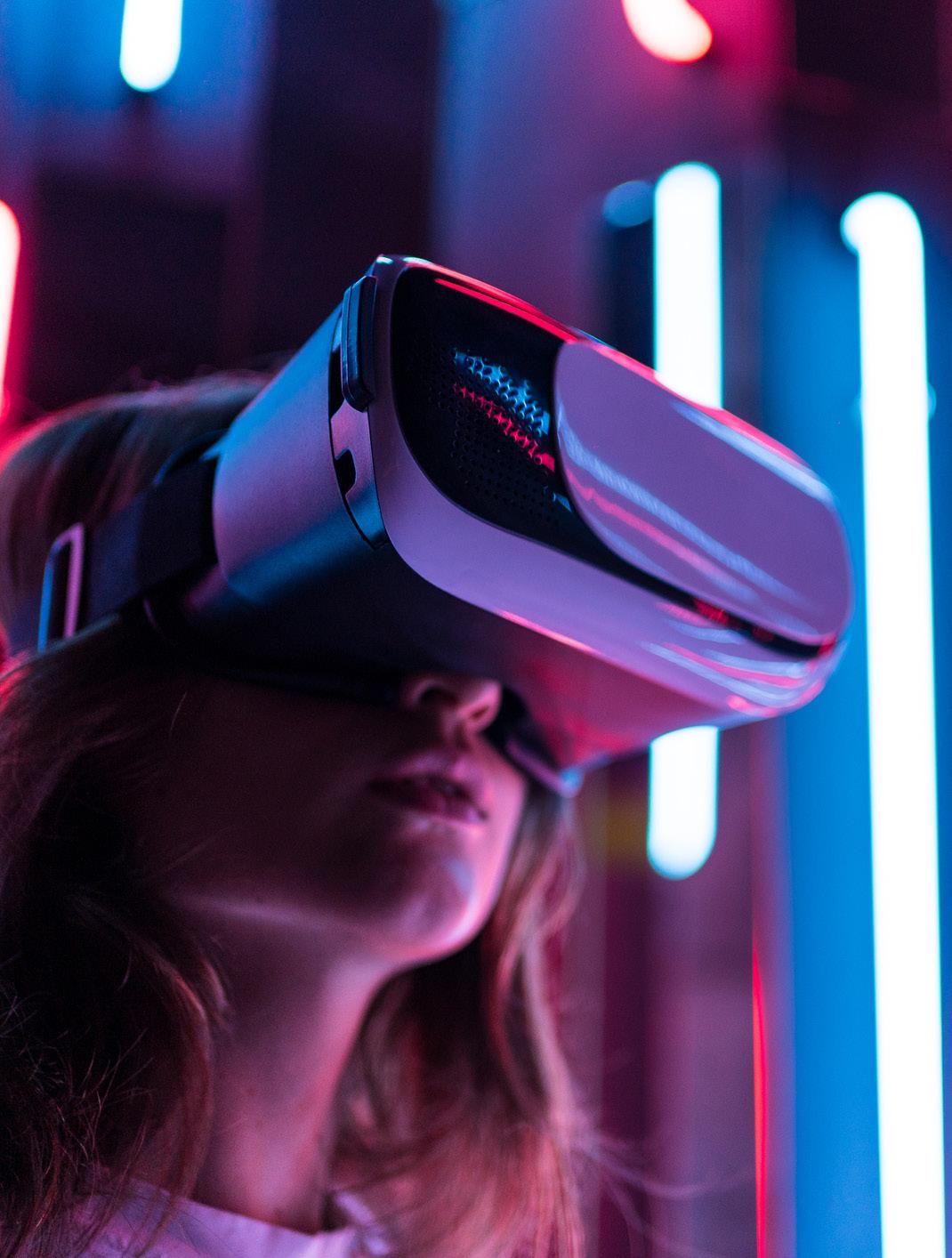

We will be 80 years old in September 2023! Since its founding in 1943, thanks to the vision of Mr. Eugenio Garza Sada and a group of entrepreneurs, who formed a civil association called Enseñanza e Investigación Superior, A. C., Tecnológico de Monterrey started a journey full of challenges in education, which have now turned into goals met and achievements not just for Mexico, but for the whole world.
Each decade has had its own context, from the aspirations and needs of the students to the availability of educational spaces, methods and pedagogies, teacher training, means of communication, technology, knowledge base, and many more. However, among this endless list of factors that have characterized Tecnológico de Monterrey’s 80 years of trajectory, a main thread drives its initiatives and impact: educational innovation to ensure academic excellence.
This educational innovation means being able to offer increasingly better solutions, overcoming obstacles once thought insurmountable. Take the education to distant places? The first class broadcasted through television took place in 1966. Go beyond frontiers? The Virtual University was created in 1997 for campuses and sites in Mexico, Latin America, and worldwide. Go beyond time constraints to access education? In 2000, 100% online and asynchronous education was possible thanks to Tec.com. Increase the maximum number of students in a course? The institution offered its first massive online open course, or MOOC, in 2015.
Ensure academic continuity after a devastating earthquake in Mexico City? In 2017, the Flexible Hybrid Model was designed and implemented in a record time of only two weeks. Multiply the presence of the teacher in local and remote classrooms? The “Professor with holographic effect” started in 2018. Pandemic due to Covid-19? The Flexible Digital Model was created in 2019 and has remained active since then, enriching the learning experiences of our students with the latest technology and pedagogical initiatives.
To get to know this journey of educational innovation that has brought us to where we are, and that points to a promising future, we share the most outstanding advancements from this incomparable timeline.
The number of students in Tec de Monterrey grows from 350 to 452, while the faculty members, all tenured, go from 14 to 33.
Tec de Monterrey became accredited by the Southern Association of Colleges and Schools in the United States of America (SACS).
The library building is inaugurated, its facade adorned by a mural that has become a Tec symbol.
Tec de Monterrey has 4,458 students from 19 countries in America and all the states of the Mexican Republic.
At the start of this year, the first master’s degree was awarded in the field of Chemical Sciences. Twenty years after its foundation, Tec started to venture into two training aspects that will be of great importance in the future: knowledge and use of electronic computers and education via television, launching their first class via this medium in 1966.
The formal creation of Tecnológico de Monterrey as a multicampus educational system with a new organizational structure. It joins the international network of communication between universities called BITNET and launches the satellite telecommunications network.
Satellite broadcasting is used to teach the Master’s in Education program with various specializations.

Satellite broadcasts of the master’s programs of Administration and Computing for teachers of Tecnológico de Monterrey begin, in addition to three courses on sociocultural values and professional practice.
The Virtual University is created. Tec de Monterrey offers academic and continuing education programs in Mexico and Latin America. The redesign of the teaching-learning process begins.
The institute now offers multiple undergraduate and graduate programs entirely online. Tec.com is born with an educational offer via the internet.
Tec and various national and international organizations and foundations create Learning Community Centers, Corporate Universities, and the Digital Video Library.
Prepanet activities began to offer online high school with several faceto-face activities to people who had not been able to complete their high school studies for various reasons.
A new vision for Tecnológico de Monterrey is outlined for 2015, as well as the Mission statement and the strategies to achieve the newly created Vision.
The new Tec21 Educational Model is revealed, which will allow to develop the competencies for the leaders of the 21st century for new generations. The Model is based on innovative and challenging experiences, spaces for active learning, and inspiring and innovative teachers.
Tec de Monterrey begins its MOOC offers on various platforms, such as Coursera and edX.
FIT (Flexible, Interactive, and with Technology) courses are taught for the first time in undergraduate programs.
Due to the effects of the September 19 earthquake in Mexico City and to ensure academic continuity, the Flexible Hybrid Model was designed and implemented in a record time of two weeks.
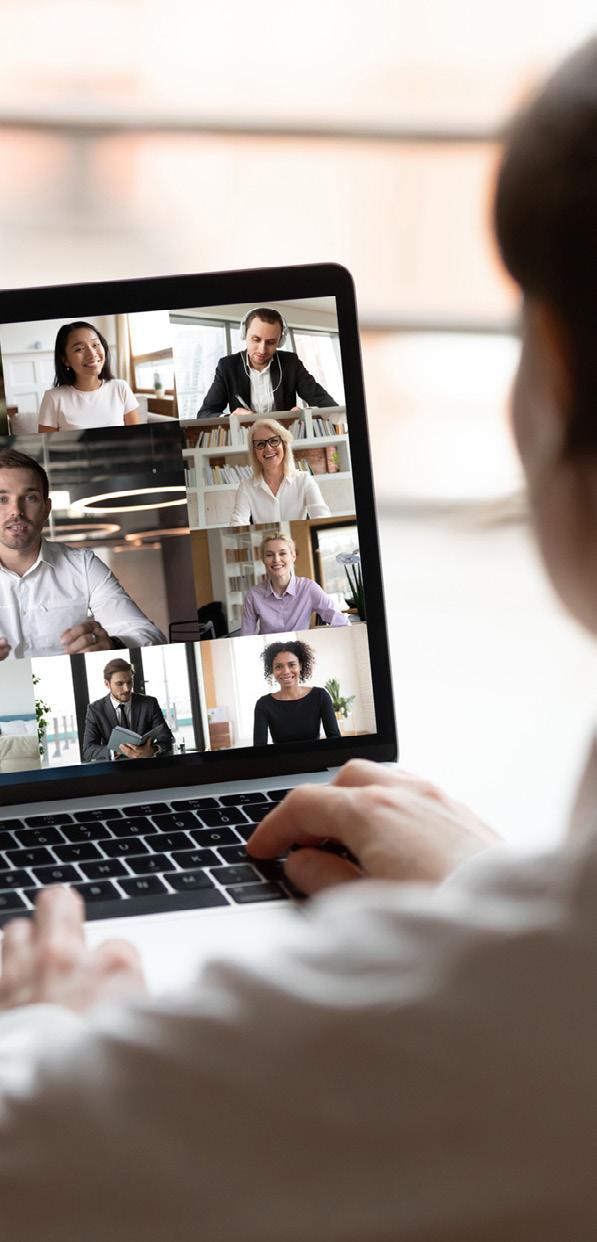
QS University Rankings ranks Tec as the best private university in Mexico. The project “Professor with Hologram Effect” begins, as well as the first educational resources using virtual reality.
The new Flexible Digital Model is designed and implemented to ensure academic continuity considering the Covid-19 pandemic.
To continue to transform the learning experiences of our students, in 2022, 313 educational innovation and digital education projects developed by 594 teachers from various National Schools increased by 40% their impact on the number of students, going from 27,000 in 2021 to over 40,000 students participating in more than one innovative and digital experience through 175 Training Units.
Some of the more outstanding achievements this year are: we’ve reached +561,540 students-course who have taken online courses in high school and undergraduate programs; +36,470 students who have taken an online graduate program; +532,410 professionals who have extended their knowledge with our online certification programs; and +2,157,800 people who learned with our Massive Open Online Courses.
As a result of these nearly 80 years of experience in higher education and over 30 years designing digital learning experiences, at Tecnológico de Monterrey, we are convinced that digital education must ensure significant and lasting learning for our students, through the application of innovative pedagogies based on the growing use of digital media and technologies, throughout the various moments of their learning journey in the institute.
This student journey is designed to enrich each stage of their training. To transcend, the training of our students is all-encompassing. An interest is fostered in the student to transform their social, economic, political, and ecological reality on a personal, social, and professional level.
To fully get to know the impact obtained in 2022, we invite you to read the complete information in the following sections of this report.
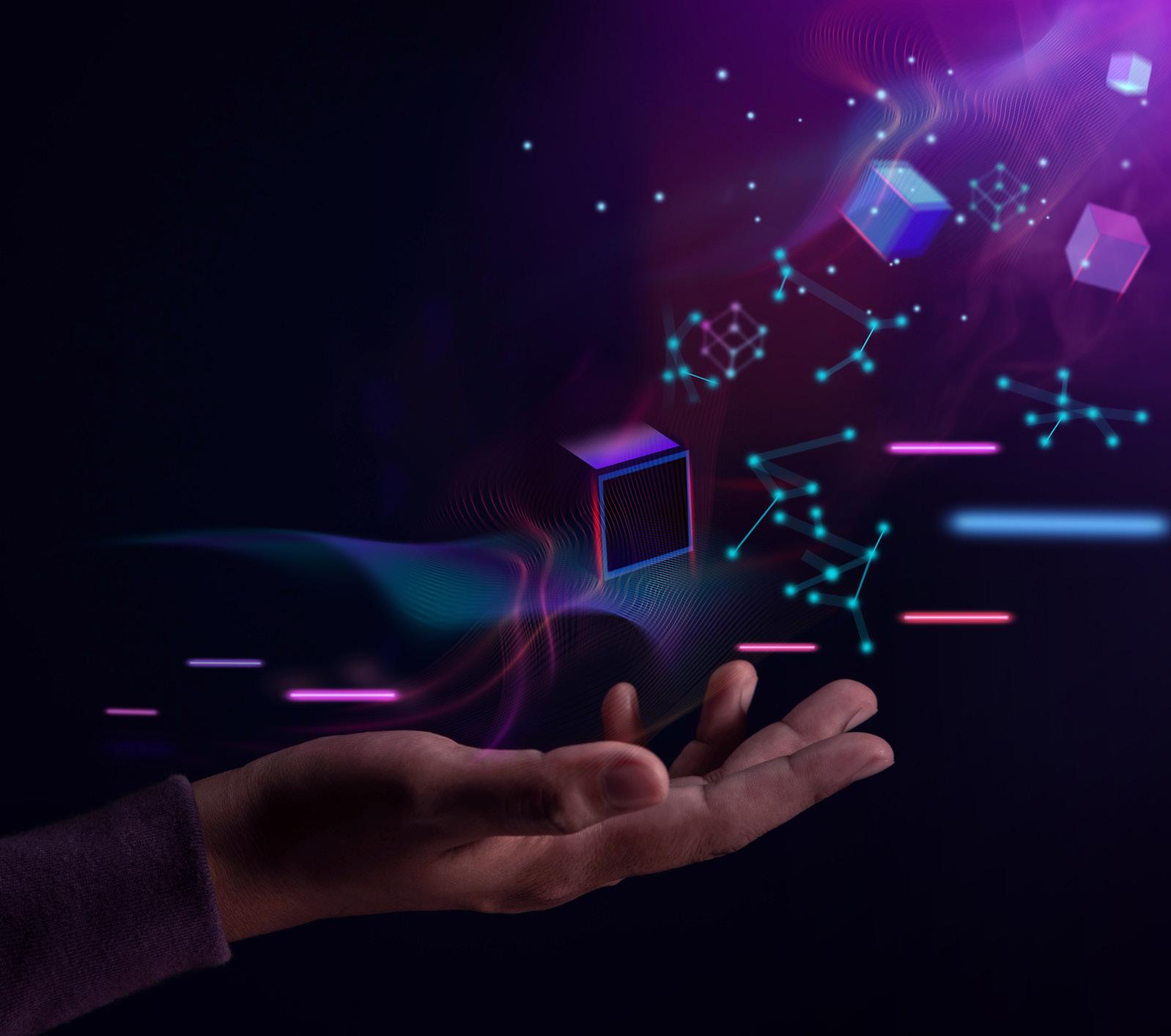

To continue to transform the learning experiences of our students, in 2022, 313 educational innovation and digital education projects were implemented. These projects were developed by 594 teachers from various National Schools, increasing the number of students reached by 40% compared to the previous year. From +27,000 in 2021, +40,000 were impacted in 2022, who lived more than one innovative and digital experience in 175 training units.
Next are shown the impact indicators of these educational innovation and digital education projects.
Impact of educational innovation and digital education
313
594
175 Projects Part icipating Teachers
43,394
Training Units Students-course
*Students who participated in more than one innovative and digital experience.
Number of educational innovation projects based on the transformation of the educational experience.
Promotion and management of educational innovation Pedagogical Processes for the student’s experience Technological Number of projects per School according to innovation categories
Architecture, Art, and Design
Social Sciences and Government
Continuing Education
Humanities and Education
Engineering and Sciences
Leadership and Student Training (LiFE)
Medicine and Health Sciences
Business High School
Of the 313 projects developed by the National Schools, 279 are linked to a training unit, while 34 are related to an educational innovation impacting the learning process.

Number of projects of educational innovation and digital education developed by National Schools
Architecture, Ar t, and Design
Social Sciences and Government
Continuing Education Humanities and Education
Engineering and Sciences
Leadership and Student Training (LiFE)
Medicine and Health Sciences
Business High School
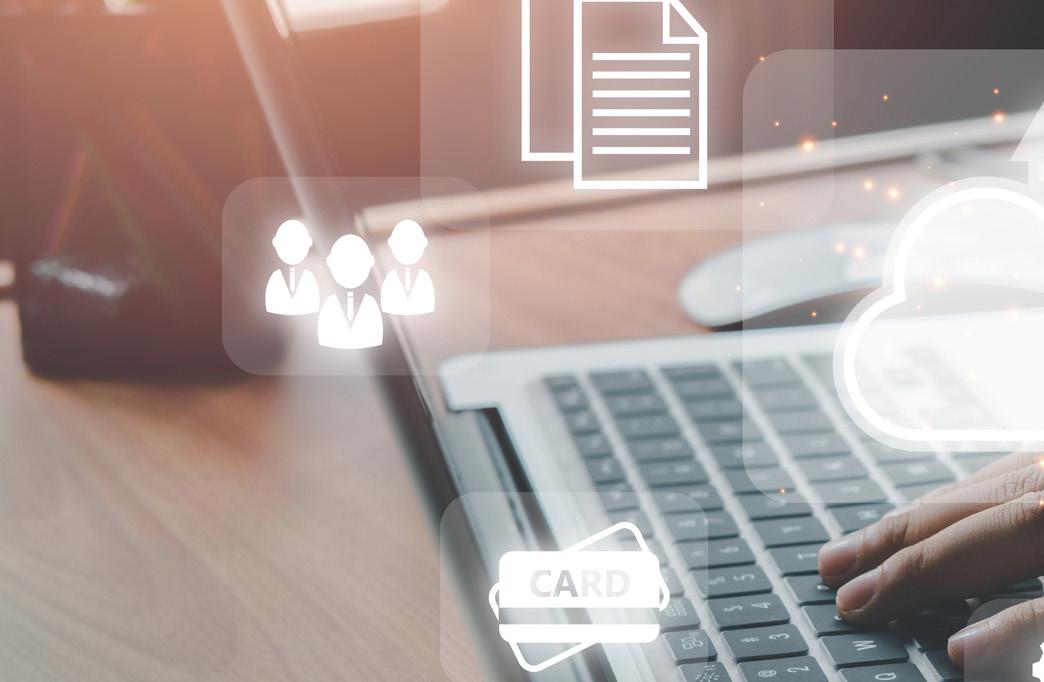
Number of projects per academic program and teaching modality

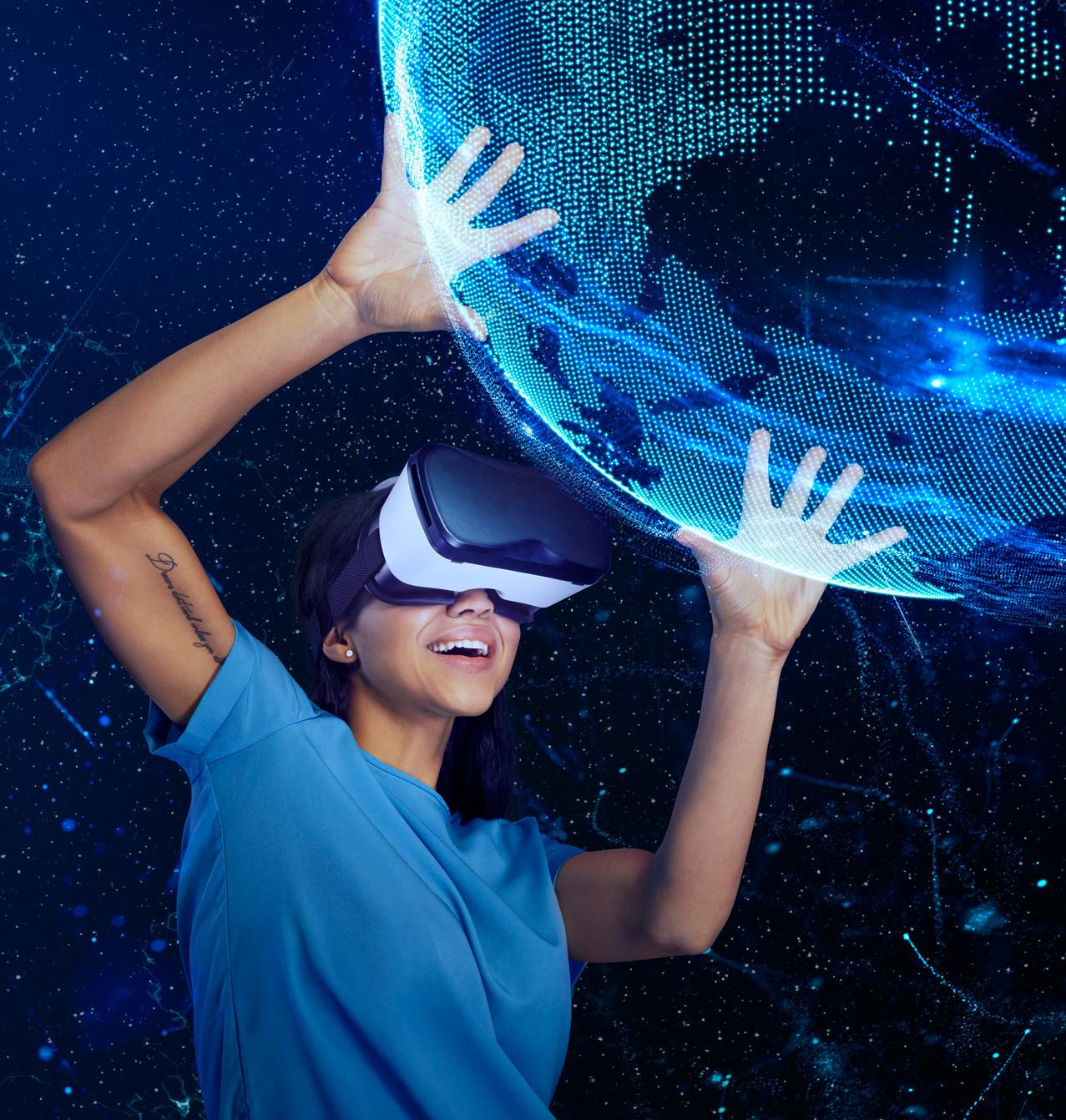

Digital education at Tecnológico de Monterrey is an institutional strategy that ensures meaningful and lasting learning for students through innovative pedagogies based on the intentional, systematic, and conscious use of digital media and technologies.
In 2022, digital education was offered in various modalities that enabled significant learning experiences in multiple environments, which are presented below.
The specific way an educational service is offered, considering various elements such as the required infrastructure, the use of media and educational resources, and the time and space in which the interaction between teachers and students occurs, among others. According to Barroso-Ramos (2006), the most accepted classification is divided into three groups: face-to-face, remote (open and distance), and mixed or hybrid (a combination of the previous groups).
How a course is offered, considering the function of the teacher or group of teachers, how the students will participate during synchronic and asynchronous moments, the follow-up on students, and the geographic considerations.
Traditional face-to-face
A course designed for a fully face-to-face experience, incorporating essential digital experiences to comply with the educational model (LMS).
Enriched face-to-face
A course representing the evolution of the face-to-face modality toward intentionally incorporating cutting-edge technologies to improve the students’ learning experience (e.g., VR, AR, AI, among others).
Traditional face-to-face course
Face-to-face course enriched with technology
TU: Face-to-face with VR practice factory resource
A course that intentionally combines a face-to-face element in which supervised learning occurs and a distance element over which the student has some control (time, space, route, and pace of learning)
Synchronous distance Asynchronous distance
A course in which the teacher conducts sessions in real-time using various technological tools
The student has the flexibility of attending these sessions from any location. It can be limited to a single, different, or fully international campus.
A course that offers students the autonomy and flexibility to study wherever and whenever they choose. It can feature guided moments or be entirely self-directed.
Block: Face-to-face challenge and 100% distance modules
Note 1: For the face-to-face or mixed modalities, combining synchronicity and asynchronicity is another variable that will depend on the TU teaching needs.
Note 2: The digital modalities offer contents, resources, and didactic activities specifically designed for a digital environment, which are integrated into the delivery model and over which the student has a degree of control (time, space, route, and pace of learning)

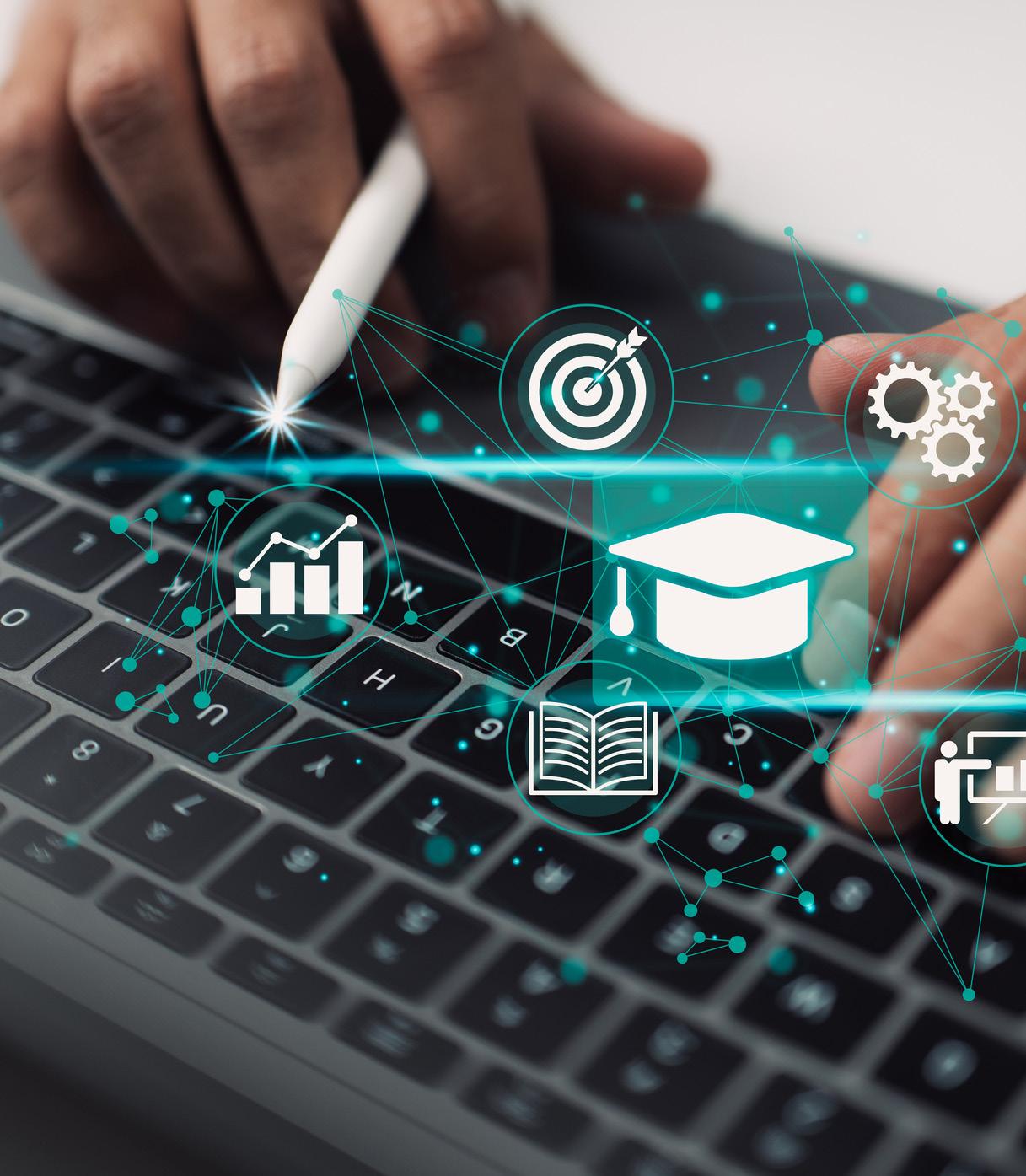
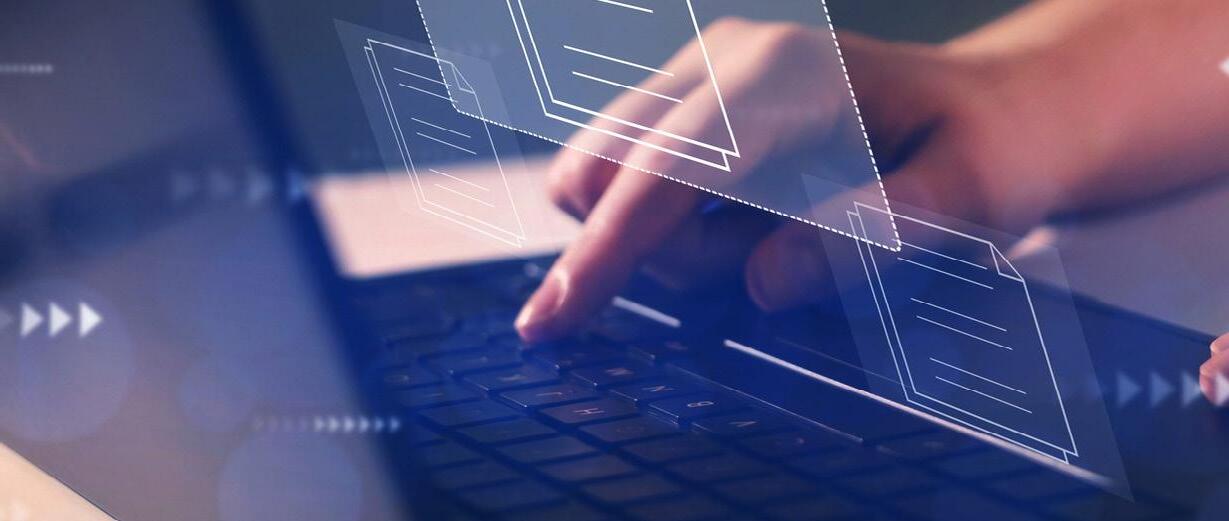
During 2022, Digital Education was consolidated as a relevant institutional strategy that produced positive results by offering significant learning experiences within and outside the classroom.
Below, the data of students-course enrolled in digital modality groups according to study level are presented.
* The group data does not apply to the Lifelong Education category.
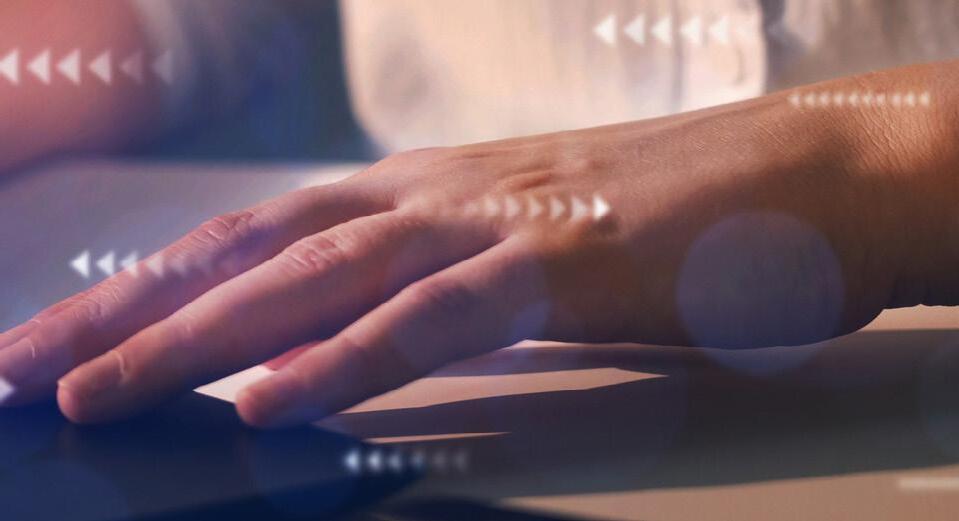
Students-course per school and modality, at an institutional level
Students-course
Source: SAP BO DWH Escolar. January-December 2022.
Students-course per school and modality, High School and Undergraduate programs
Face-to-face Distance
Mixed
Source: SAP BO DWH Escolar. January-December 2022.
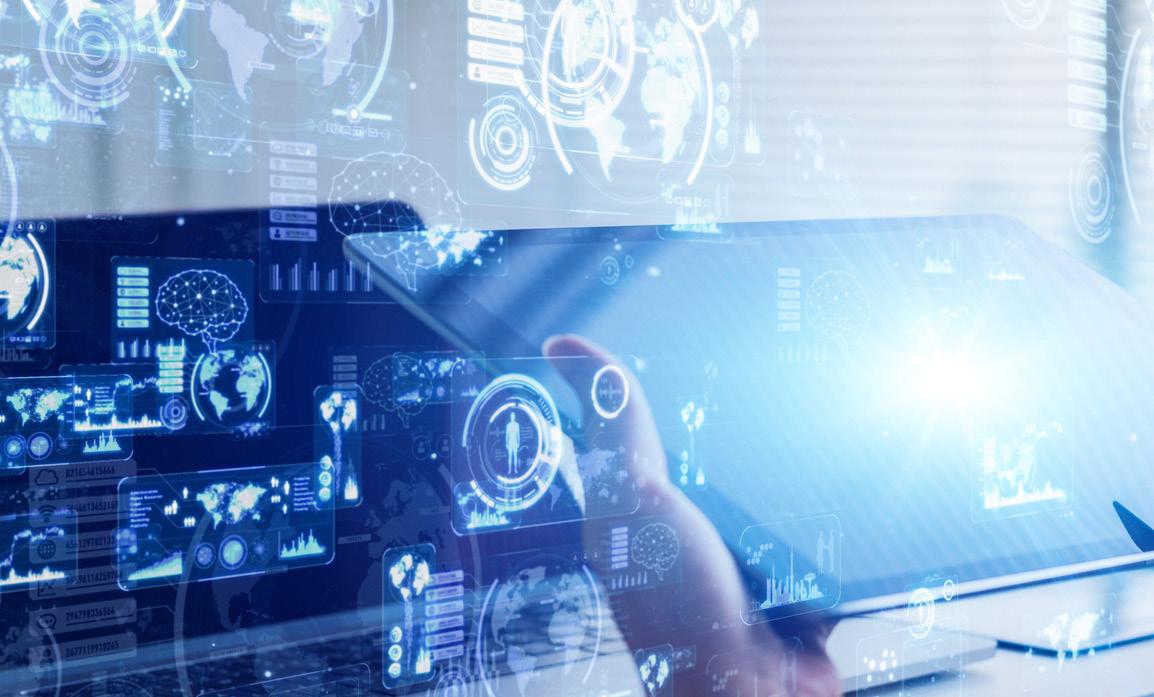
Innovation and Digital Education at Tecnológico de Monterrey. 2022 Report
Tecnológico de Monterrey offers a wide variety of complete graduate programs in digital modalities; in 2022, it went from 44 to 40 master’s programs, reducing the number of online master’s programs of the School of Humanities and Education, the School of Architecture, Art, and Design, and the School of Medicine and Health Sciences. The distribution per school is shown below.

Digital education in numbers
Distribution of graduate students enrolled in face-to-face and digital programs
4,575 (-3%)
2,773 (+4%)
Students enrolled
62 % Distance
38%
Face-to-face
Digital
Face-to-face
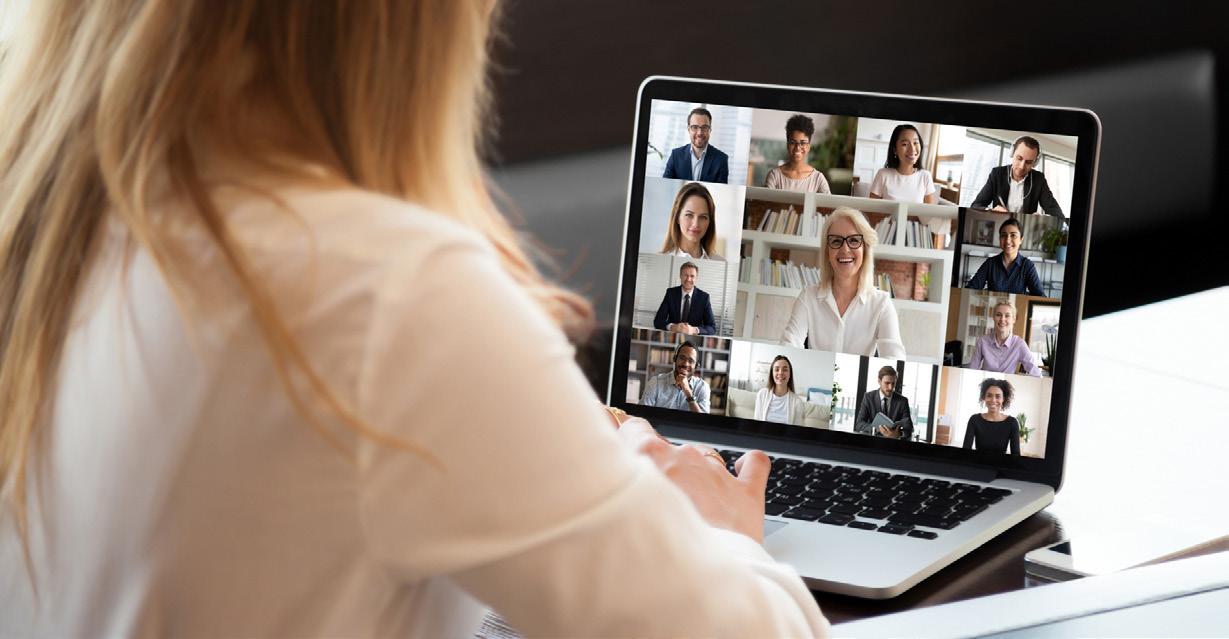
Students enrolled in graduate programs per school
In 2022, 812 digital program students graduated, adding up to 36,712 graduates.
In 2022 the LiFE program kept the digital modality in 10% of its groups to students to keep nurturing their well-being and complement their academic training through developing competencies in the seven dimensions of the Integral Wellness Model.
Using digital tools, students had access to varied offers that included artistic, sports, emotional, spiritual, and student wellbeing activities, as well as leadership and experiential, to attain their self-realization.
16,185 students-course (13% of the offer)
923 groups (10% of the groups)
35 subjects
25 teachers

Lifelong education fosters permanent learning at any time and in every possible way, including structured courses or self-directed education. This constant training of people is instrumental for comprehensive development in every area of life and meeting the challenges of the everchanging job market.
Below are presented the various programs Tecnológico de Monterrey offers as part of Lifelong education.

In 2022, the offer of Digital Continuing Education increased with the launch of two full thematic areas (Leadership and Data Science) and the first trajectory of the thematic area of Marketing and Finance. In addition, The Learning Gate, an innovative, high-impact learning ecosystem with a flexible, on-demand model, was launched as a minimum viable product (MVP). For more information about these new programs, refer to the section on the institute’s innovative and digital learning experiences, under Continuing education. Below are presented the most relevant data for 2022.
100% of the catalog course was offered in a digital format* (221)
30% of students enrolled in catalog courses are EXATEC
85% of the business courses offered were in a digital format (767)
83% of the students enrolled in business courses take them in a digital format (69,050)
1,241 teachers
*A catalog course is a course open to the public
**Net Promoter Score features a scale of -100 to +100.
Source: Directorate of Planning and Effectiveness of the Vice-rectory of Continuing Education. Data up to September 2022.
80,181 digital certificates granted
86 Net Promoter Score**
MOOCs (Massive Online Open Courses) are important at Tecnológico de Monterrey due to their significant impact on universal distance education, as a tool to attract students, and as an alternative continuing education offer, having 160,185 students enrolled to date. Among the distinctive characteristics of MOOCs are the asynchronous format and the ability for the participant to receive a verified digital certificate. Presented below are the most representative data in 2022 of Coursera, edX, and of the general public and Tec community bootcamps, which include students and collaborators of the institution.
135,267 students enrolled
82 active courses of which 19 are new
20 specialized programs of which 6 are new
94 teachers
8.7% students completing courses
4.8 satisfaction index*
24,747 students enrolled
77 offer options
61 courses
4 micro-masters
12 professional certifications
49 teachers
171 students enrolled 2 bootcamps
*The satisfaction index is measured on a scale of 0 to 5, where 5 is the highest score.
**In 2022, the edX Essentials platform was available in January, February, and March.
Source: Department of Alternative Credentials. Data up to September 2022. Bootcamps
Social programs are intended to promote social inclusion and equality through social impact and transformation, improve the quality of life, sustainable development of communities, and reduce the educational gap in Mexico and Latin America. For this, the following distance social programs are offered at Tecnológico de Monterrey: Prepanet and Virtual Learning Center.
Prepanet is a program that offers high-quality online high school education directed at people in situations of social inequality. Presented below are some of the most representative results of the work carried out at Prepanet during 2022:
Source: Prepanet National Directorate. Data up to 2022.
2,921 students, of which 1,329 are newly enrolled
19,650 students-course
31 subjects
523 groups
5,322 graduates since 2019, of which 460 graduated in 2022
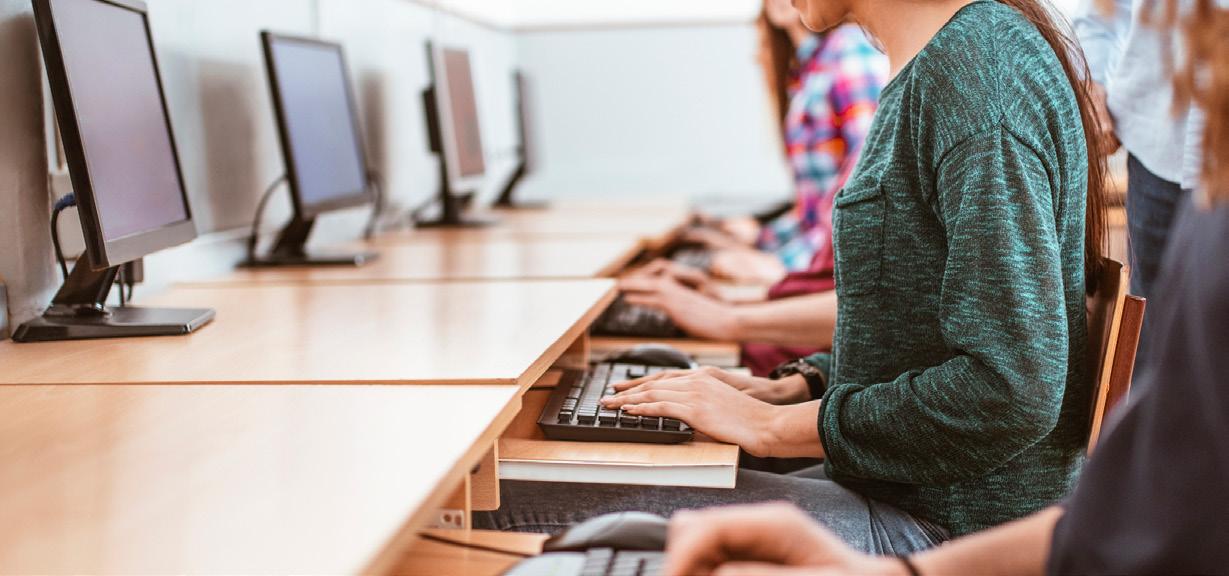
2,159 undergraduate students participating as tutors as part of their community service
The Virtual Learning Center is a social program that promotes access to quality education through a virtual learning community; it provides training using free courses and educational resources, as well as through the Learning Community Centers Network (Red de Centros Comunitarios de Aprendizaje, CCA). CCAs are physical spaces where children, youths, and the general community, particularly those from areas that are remote, in development, of limited resources, and lacking in educational resources, go to develop skills and capabilities to continue their academic studies, start a business or join the workforce.
Its web portal (Virtual Learning Center) logged 244,447 visits in 2022, adding up to
a total of 14,539,199 from 2020 to date. The Center offers two types of courses: selflearning and with academic follow-up. In the latter, the student receives guidance and follow-up from a tutor-teacher during their learning process. In 2022, 17 teachers and 117 students of undergraduate programs from Tec de Monterrey, as part of their community service, participated, for an added total of 269 teachers and 5,155 students to date.
The Virtual Learning Center scored 93.76 (good and excellent) in the “Global Satisfaction Index” survey and 97.15 (good and excellent) in 2021. Below are shown the most representative results of the work carried out at this center during 2022:
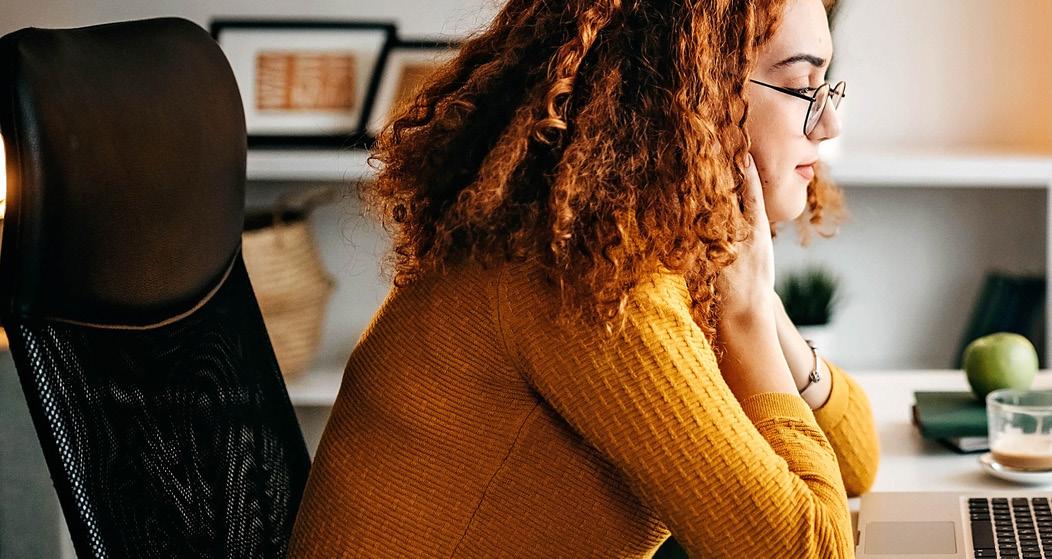
3,197 students
Total students from 2020 to 2022: 469,719
119 courses
78 students graduated
Total graduates from 2020 to 2022: 2,481
110 students
Total students from 2020 to 2022: 258,672
10 courses
51 students graduated
Total graduates from 2020 to 2022: 77,523
Source: Directorate of Education for the Development of the School of Humanities and Education of Tecnológico de Monterrey. Data up to October 2022.

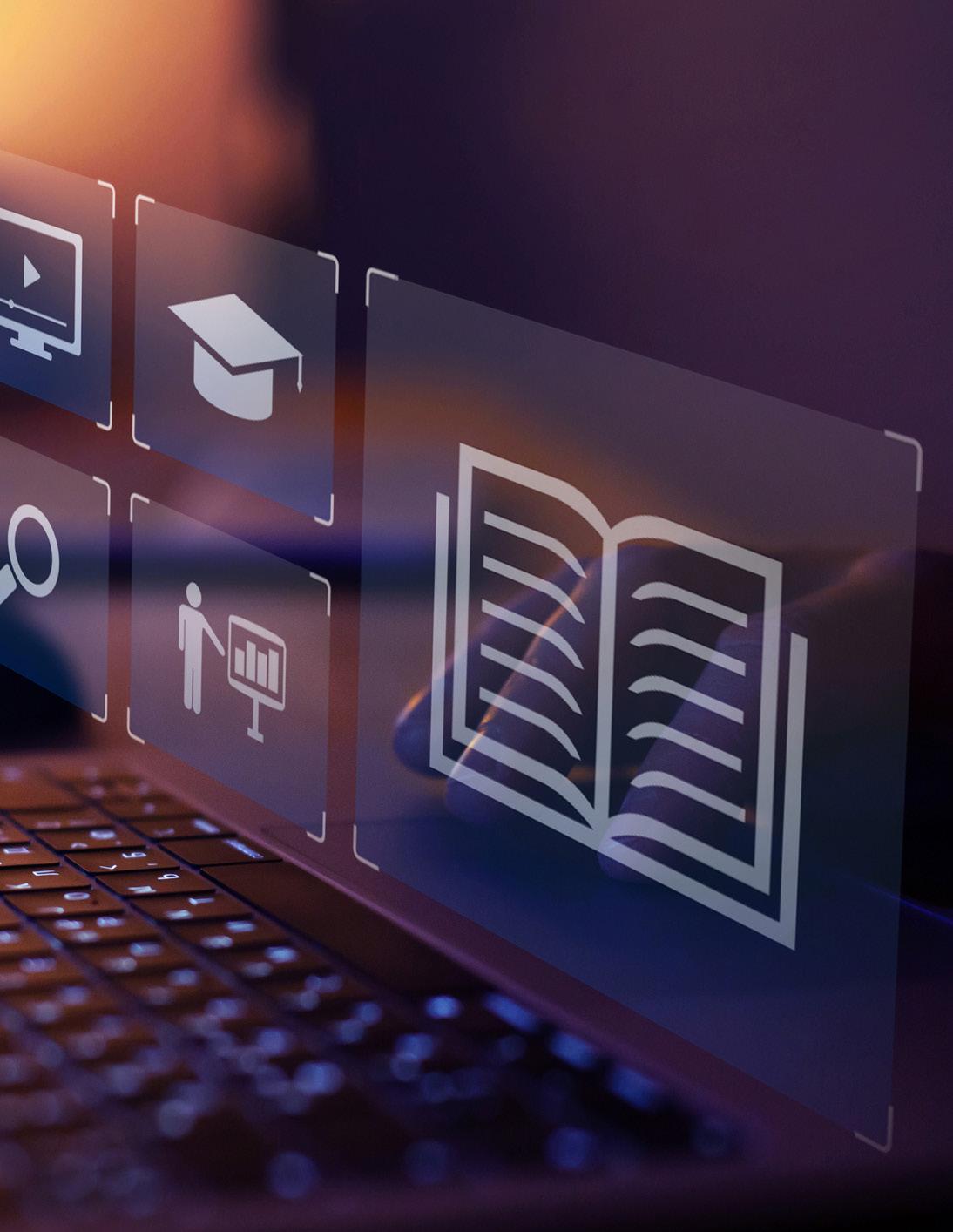

Innovation, like any proposal of improvement and change, requires not only ideas but also their execution through the effort of all the collaborators of this creative process. Sometimes through trial and error, sometimes with unexpected results, we share here the most remarkable educational experiences of 2022 due to their impact on each of the National Schools of the institution, as well as those of High School, Continuing Education, and the LiFE program: from projects related to virtuality, sustainability, and social inclusion, to digital learning initiatives such as the Tec Virtual Campus metaverse and The Learning Gate.

Educational innovation and digital education in the School of Architecture, Art, and Design in 2022.
26 educational projects
19 training units
39 teachers
4,000 students-course
Based on the projects that have developed naturally at the School of Architecture, Art, and Design, we can’t discuss digital education and educational innovation as separate entities. While they have no causality, a close relationship exists between the developed projects.
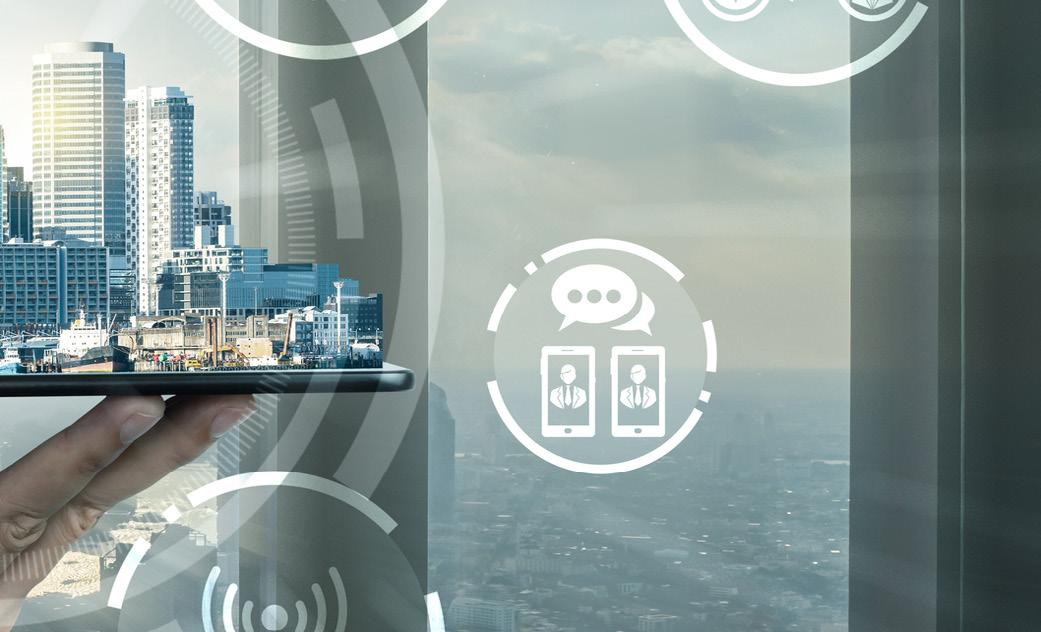
Technology is not only used to solve challenges but also to strengthen social and student interaction. Likewise, our School’s projects have shown an evident concern for social inclusion and our environment. The projects and experiences developed in 2022 by our teachers can be grouped into the following three categories.
1. Virtuality to connect
We learned several lessons from the pandemic, including the ease of distance education and the importance of social interaction in educational experiences. This is why we see a great opportunity in virtual reality and the metaverses that consider those two aspects: fusing physical reality with digital virtuality.
2. Generation of proposals for sustainability
Educational innovation projects show new ways to design products and systems that conserve the environment and consider people’s practices.
3. Development of inclusive initiatives
Design and research must consider people’s various realities, not only those of the majority. That is why, as part of our practices and challenges, we developed proposals and initiatives focused on including children and people with visual diversity.
1. Virtuality and educational experiences
The use of virtual reality technology has been an essential factor in this category of projects and experiences that seek to improve learning and facilitate the integration of students. Some of the most representative projects and experiences were:
Active Learning Experiences in the Metaverse of Tec’s Virtual Campus
The teaching of Installations and alternative systems course in a virtual environment.
Architectonic design with virtual reality
Creation of a virtual reality laboratory where students can better perceive, understand, analyze, and solve their projects during the design phase.
Galería Tec
Collaborative space to showcase works and presentations for other schoolmates after analyzing and curating a work of art, resulting in a new proposal in relation to its context and to famous painters.
Creation of ICRI Method (Ideation, Categorization, and Regrouping of Ideas)
Implementation of a method to generate and integrate ideas in work teams online. This method helped to reduce communication barriers, interpersonal conflicts, monopolization from a single team member, and moving away from the main topic.
Participating teachers
Active Learning Experiences in the Metaverse of Tec’s Virtual Campus
Antonio Luis Juárez Negrete
Architectonic design with virtual reality
Alfredo Mauricio Flores Herrera
Emanuele Giorgi 0
Pablo Alberto Rentería Rodríguez
Pablo Hernández Quiñones
Galería Tec
Antonio Luis Juárez Negrete
Creation of ICRI Method
Juan Carlos Márquez Cañizares
Juan Carlos Rojas López
Project impact
The projects were implemented in the Querétaro, Chihuahua, and Monterrey campuses during the winter and February-June 2022 periods.
9 teachers
Another important category was made up of the projects and experiences looking to generate sustainable solutions for the environment. Some of the more representative projects and experiences were:
Ethnographic research for the design of sustainable products for water care
Model generation (of products, systems, or services) to prevent discarding fats and oils in Nuevo León’s pipelines, considering people’s and the environment’s needs.
Novus | App to promote reflection and sustainable development learning
Development of an app mockup to encourage reflection and learning about sustainable development. Its antecedent was the Sostek platform.
Immersions in a circular design
A proposal to develop circular economy attitudes and skills in children and teens from Zapopan (Jalisco) using circular design immersions.
Alternatives to reduce the use of disposable materials in-campus
Creation of alternatives and systems that could eliminate or reduce the use of disposable materials in Campus
Querétaro, focusing on the interest and commitment of people to change their consumption habits.
Ethnographic research for the design of sustainable products for water care
Griselda Esthela Oyervides Ramírez
Elizabeth Martínez Gaspar
Mayra Marcela Rendón Olvera
Novus | App to promote reflection and sustainable development learning
Martha Elena Núñez López
Daniel Savedra Olivo
Aura Elena Moreno Guzmán
Ricardo Aguayo González
José Eduardo Ferrer Cruz
Mayra Marcela Rendón Olvera
Griselda Esthela Oyervides Ramírez
Immersions in a circular design
Christiam Ivan Mendoza García
David Sánchez Ruano
Alternatives to reduce the use of disposable materials in-campus
Rebeca Elizabeth Torres Castanedo
Rodrigo Vilanova de Allende
The projects were implemented in the Monterrey, Mexico City, Guadalajara, and Querétaro campuses during the FebruaryJune and summer 2022 periods.
12 teachers
School of Architecture, Art, and Design
3.Social inclusion projects
Among the projects developed by EAAD, some considered vulnerable populations, such as children and people with visual diversity. We highlight the following projects:
Systematic mapping for social innovation
Research activity that took on the use of public spaces focused on children and inclusion to address the physical and emotional consequences caused by the lockdown during the Covid-19 pandemic.
Design for visual diversity
Creating proposals for products, systems, and experiences considering populations with visual diversity.
Design for visual diversity
Mariana Maya López
Alberto De Icaza Murua
Systematic mapping for social innovation
Edgar Paul Martínez Ludert Muñoz de Cote
Baltazar Ernesto Alvarado Zamora
impact
The projects were implemented in the Sonora Norte and Querétaro campuses during the February-June 2022 period.
4 teachers
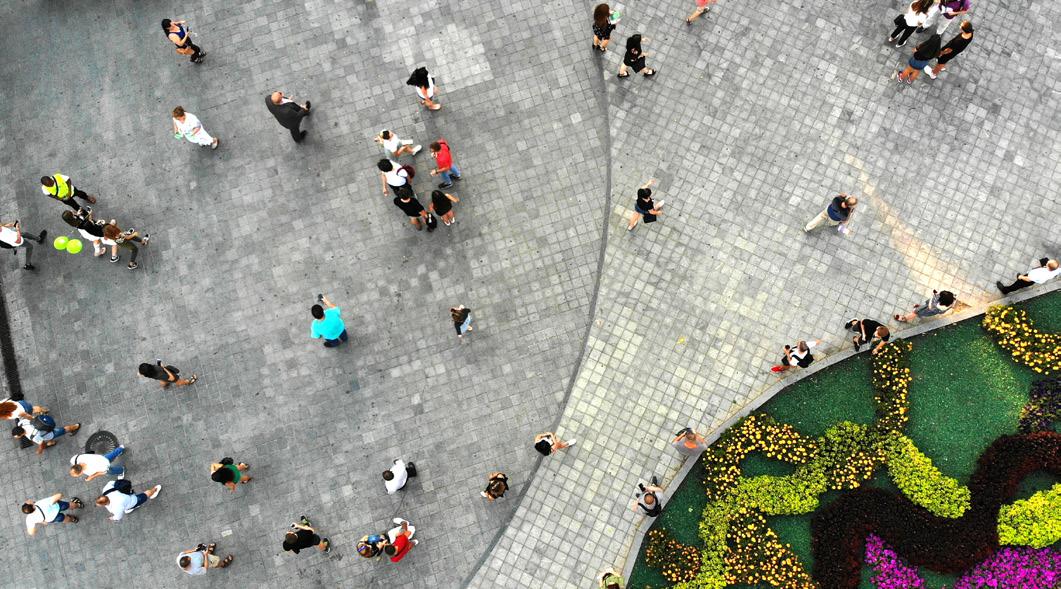
In September 2022, the first intercontinental class with hologram effect was held between Tec de Monterrey and Delft University of Technology from the Netherlands. The class was conducted in real-time with students and teachers of Campus Querétaro from the School of Architecture, Art, and Design, as well as students and a guest teacher from TU Delft.
From Tec de Monterrey, the teachers Paola Bárcena and Ernesto Philibert participated; and from the Department of Urbanism of TU Delft, teacher Chris Zevenbergen participated.
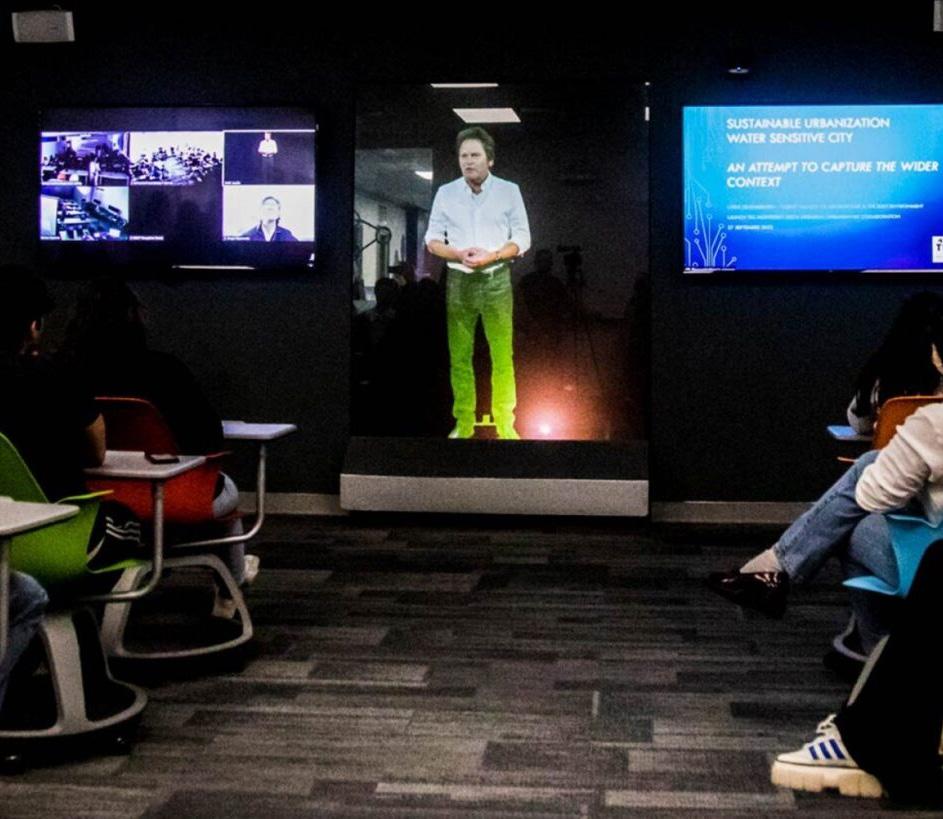
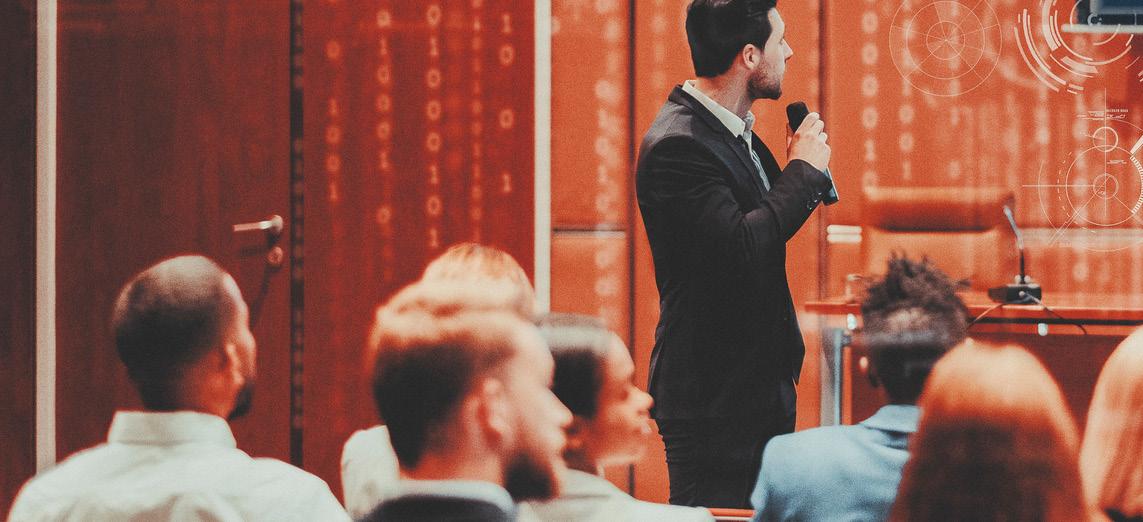
Educational innovation and digital education in the School of Social Sciences and Government in 2022.
39 educational projects
15 training units
49 teachers
3,900 students-course
To meet the needs of a society transforming at an accelerated rate, in 2022, the School of Social Sciences and Government offered its students various innovative and digital experiences led by a faculty of excellence. It focused on putting analytic and technological tools at the service of students, the world citizens who will build the solutions to the great political, economic, and social challenges of the future.

Global Week. Tec Week ELITE - Diversity in a Globalized World
Imagine a course in which our undergraduate students, as part of their curriculum, and having a shared experience with students from all campuses, also have an international experience through the collaboration and participation of teachers and students from various international universities without leaving their own campus. Sessions with guest experts in a synchronous digital format, using technological tools, immersive resources to carry out their activities, work teams, and final presentations, impacting over 100 students per group. All of this revolves around global topics and problems and is aligned with our institutional objectives, such as consolidating the Tec21 Model and improving our students’ academic experience. This innovative course is called “Tec Week ELITE – Diversity in a Globalized World.”
This complete immersion has kept growing, and its impact was evident from the first year of operation. In 2022, Tec Week Elite, with only 8 groups, had an impact on 833 students: 534 from 20 different Tec campuses and 299 from 4 foreign universities (University of Notre Dame, Universidad San Francisco de Quito, Pontificia Universidad Católica del Perú and BINUS University of Indonesia). The course was offered in Spanish and English, and 9 renowned experts in their field participated, as well as 6 guests of various nationalities that shared their worldview: quite a feat. All those involved in its development and execution feel proud of this achievement.
Thus, Tec Week ELITE, Diversity in a Globalized World, has made our students aware of one of the most important problems we currently face: recognizing ourselves as a single humanity, members of a single planet, where despite our different beliefs, preferences, or economic position, we proclaim the equality of understanding, dignity, and human rights.
Other topics covered were gender inequality, migration, discrimination, and the lack of access to opportunities for a significant segment of the global population. Classes are enriched by the participation of various experts such as internationalists, historians, lawyers, economists, and public administrators from Tec de Monterrey and prestigious national and international universities, including some of our most renowned EXATEC.
How did the initial idea of developing a Tec Week ELITE start and what triggered it? It was born to solve the high demand for specialists to teach the Tec Week of Global Vision. It evolved into a high-impact project of inclusion and an immersive international experience.
Tec Week ELITE, designed, developed, and implemented by the teacher Susana Peña Parás, is an example of how our institution identifies problems and generates innovative solutions, always based on improving students’ experience and academic quality. It is also an
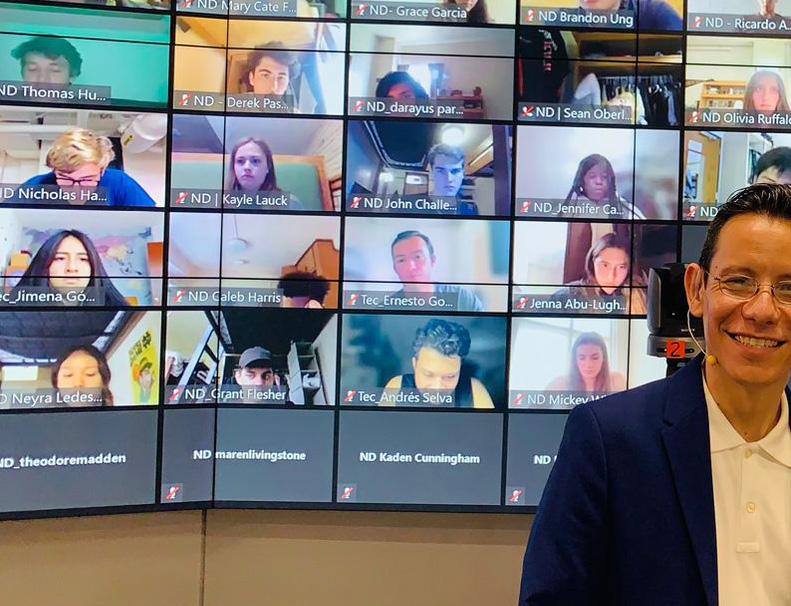
example that highlights creative possibilities by converging ideas, commitment, and teamwork.
Tec Week of Global Vision is the result of the added talents and efforts of the teams of Digital Education, Educational Innovation and Digital Learning, the Vice-rectory of Internationalization, and the School of Social Sciences and Government, in addition to the technological tools the Tecnológico de Monterrey makes available to its academic community.
In the Hall Immersive Room (HIR), it is impressive to witness the sessions with hundreds of students connected worldwide, listening to master lectures, and developing immersion activities that allow them to make the acquired learnings their own. Testimonials from students, such as “[...] I feel like I’m on a class from the future [...],” fill us with energy to meet the challenge of the next edition, renewing our desire to keep innovating on the courses and academic experiences of our students.
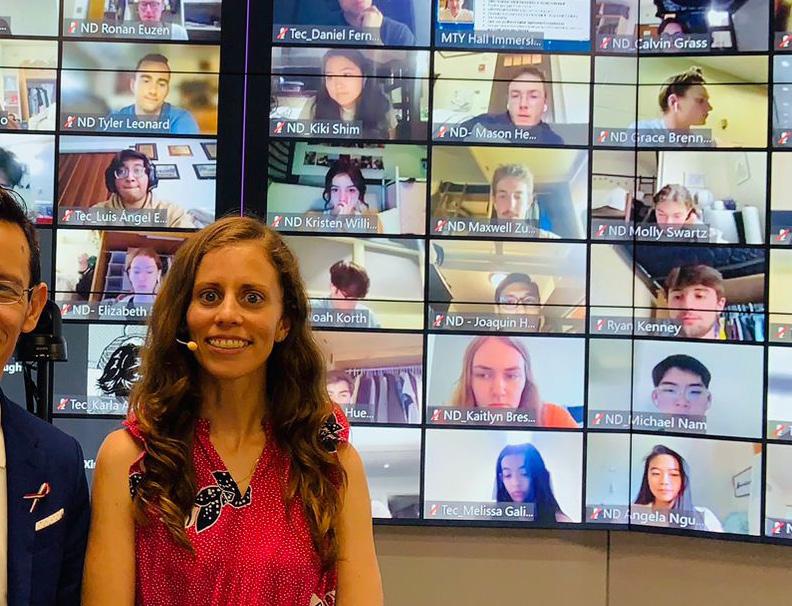
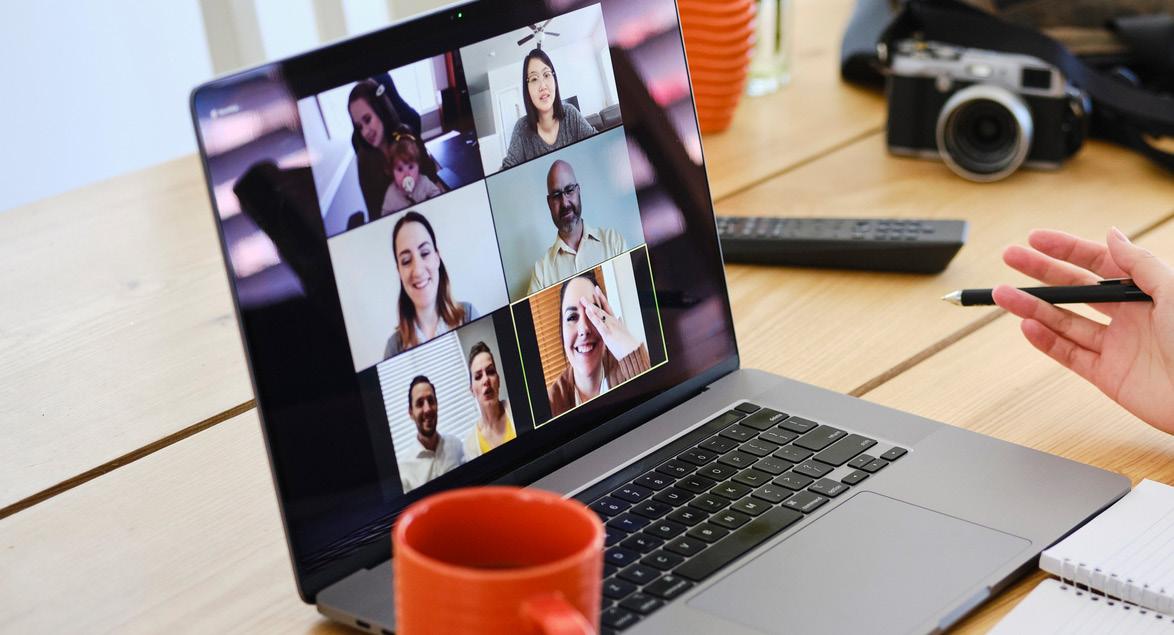
Educational innovation and digital education in the School of Humanities and Education in 2022.
55 educational projects
31 training units
91 teachers
7,600 students-course
At the School of Humanities and Education, in 2022, we continue working on the consolidation of the implementation of the Tec21 Model and of the innovation within it in the following areas:
Promoting the professionalization of the creative and cultural industries through a comprehensive offer of concentrations, professional and research internships, as well as the design of new topics for Tec Semesters.
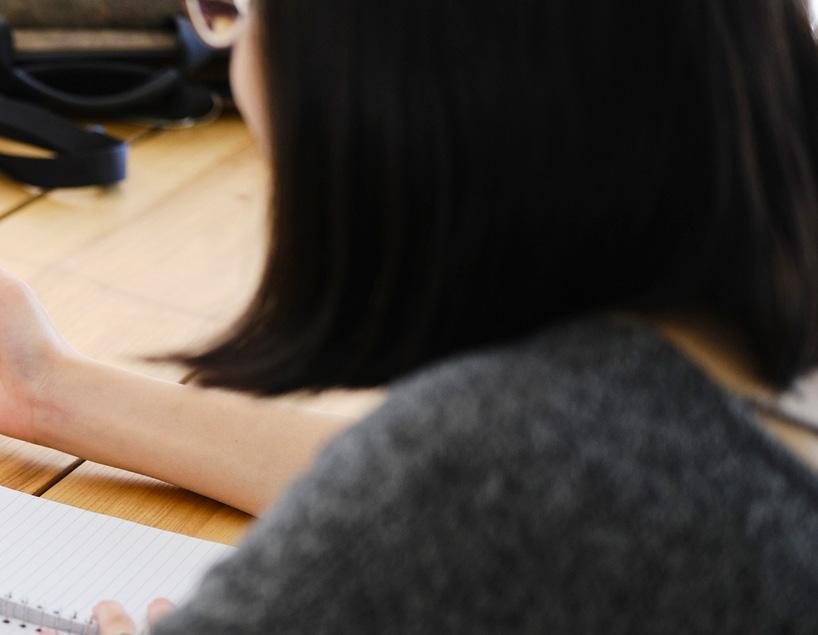
Impact on the humanistic education of students at Tecnológico de Monterrey to support the development of critical thinking skills, language and code management, ethical and civic commitment, and social intelligence by expanding general education subjects.
Development of citizen laboratories to promote sustainable development education and to carry out social innovation projects of ethical and civic commitment from our students.
Some of the most successful innovation activities were the organization of Tec de Monterrey’s first national short film festival, in which over 300 students and 50 teachers from the 18 Creative Studies entrances participated; the extended design of 20 concentrations: 11 disciplinary and 9 transversal, as well as the design of the general education subjects: Cinematographic Analysis, from Lumière to Netflix; Ecofeminism and environmental
humanities; Inclusive leadership and diversity; and World Travelers: narratives, maps, and frontiers, all of which incorporate to the total subjects offer in 2023; three during the FJ23 period and three during the AD23 period.
Another significant challenge was the rethinking and integration of pedagogical approaches and of the use of multiple technological tools into digital educational activities, not only as part of solutions to the impossibility of face-to-face meetings but to ensure a flexible and differentiated education where we can include digital and remote tools and methodologies to our everyday learning processes, formal or informal.
In 2022, the School of Humanities and Education offered 44 groups in the Digital Education, Online education, and FIT areas. These groups included courses for Tec21 plans (38 groups) and courses for previous plans (6 groups), in which 6,946 students participated.
Likewise, 2022 was a year of technological preparation to return to classrooms and laboratories, where practices and potency have increased due to the possibilities afforded by the remote and on-site uses of software and the face-to-face advantages of teams and material resources. Starting next year, the search of the School of Humanities and Education for the integration of the best practices, tools, and methodologies of digital education will continue, not as a potential complement to the training of our students but as an essential part of learning for life required by a more demanding reality. This way, we will increase the number of courses and groups offered in a digital format to reach more students.
Short film festival
Tec de Monterrey’s short film festival aims to generate a space of exhibition and recognition for the best audiovisual narrative projects made by students from several courses of their academic programs, as well as to reward student projects from our high schools, special projects of other initiatives of the school such as gender equality in this first edition, as well as to honor a national film personality, as was the case of the documentary filmmaker Juan Carlos Rulfo.
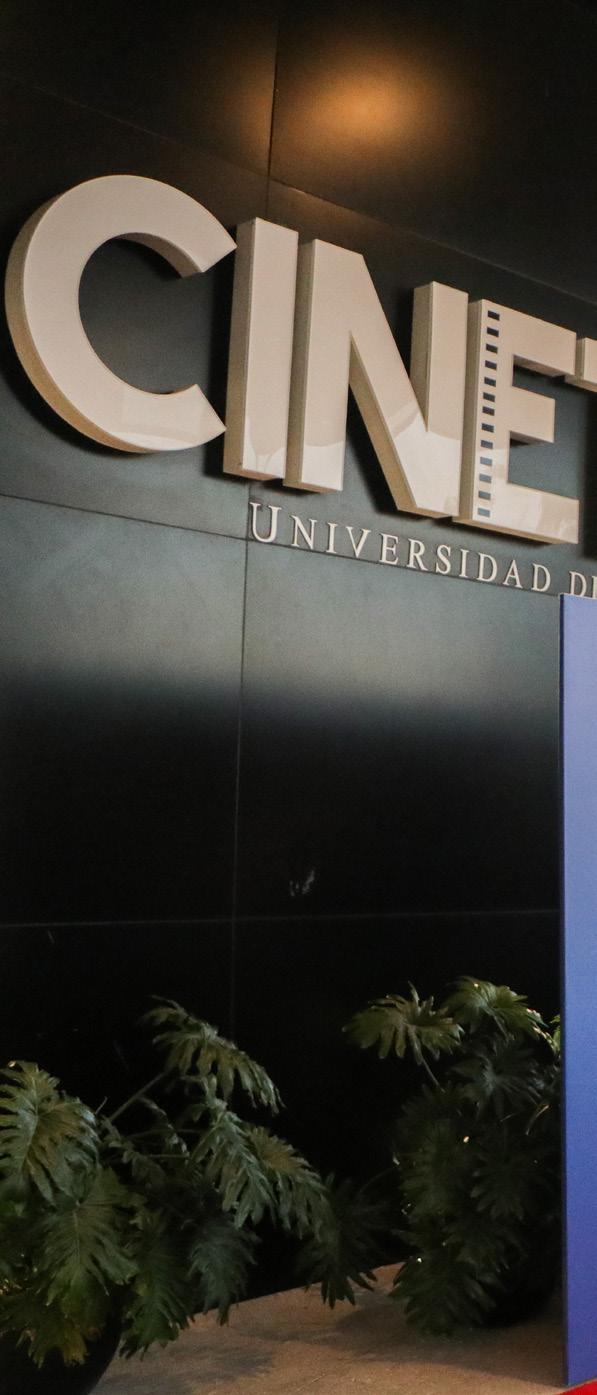
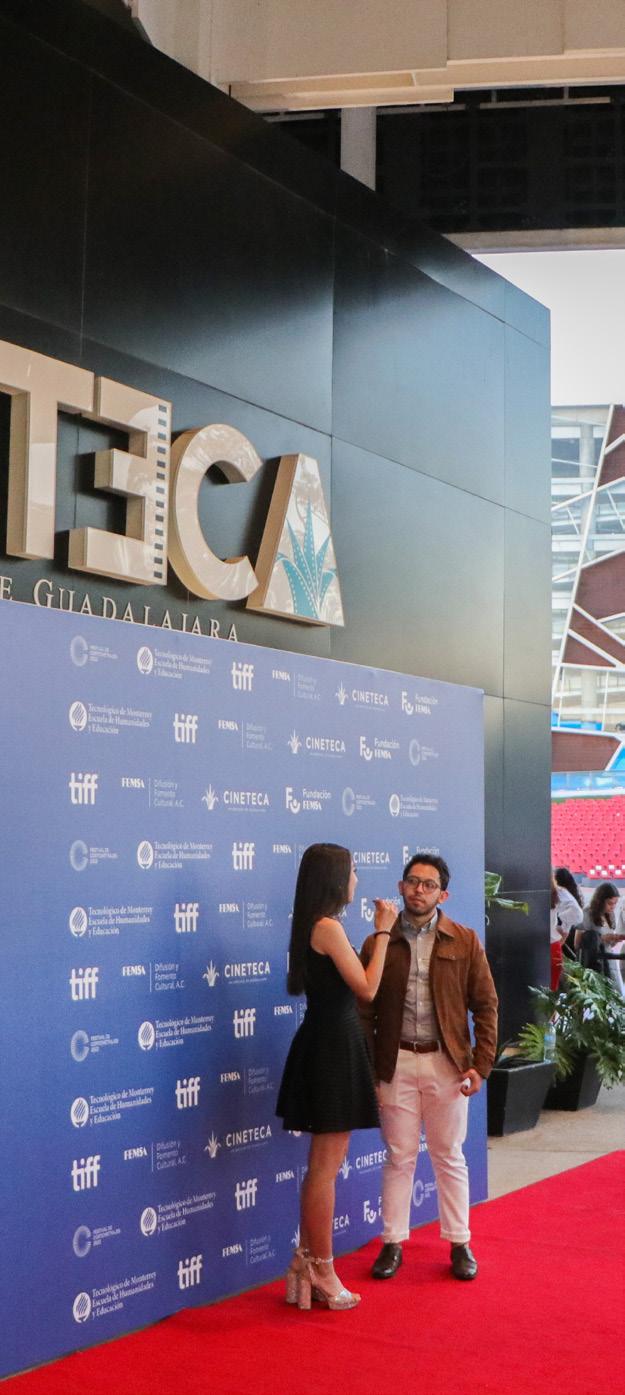
Juan Carlos Olmedo, Regional Director of the Department of Media and Culture in Mexico City Project impact
The project was implemented in the 18 campuses with the Creative Studies entrance during the February-June 2022 period.
50 teachers
Over 300 students
43 short films nominated at a national level from the five regions
Over 150 short films in the local and regional phases
7 award categories:High School; Entry, Focus, Fiction, Nonfiction, Concentrations, and Gender equality.
A jury made up of 24 personalities representing the film industry, international film festivals, and the world of literature and culture, among others.
3 strategic allies of the festival: Toronto International Film Festival® (TIFF), Fundación FEMSA and Cineteca de Guadalajara.
Juan Carlos Rulfo was recognized with an award for his trajectory.
Keynote lectures and TIFF’s Filmmakers Lab sessions.
Editathon: women from my region
The project focused on providing visibility to outstanding women from various disciplines through composing or editing Wikipedia profiles with a gender perspective. Men usually perform the editing process on this platform, so we sought to increase the participation of women editors.
Lilia Ortega
Liliana Tello
Vanesa Serrano
Fernando Mora
Gabriela Silva
The project was implemented in the Chihuahua, Aguascalientes, Guadalajara, Sinaloa and Sonora Norte campuses during the February-June 2022 period.
108 students
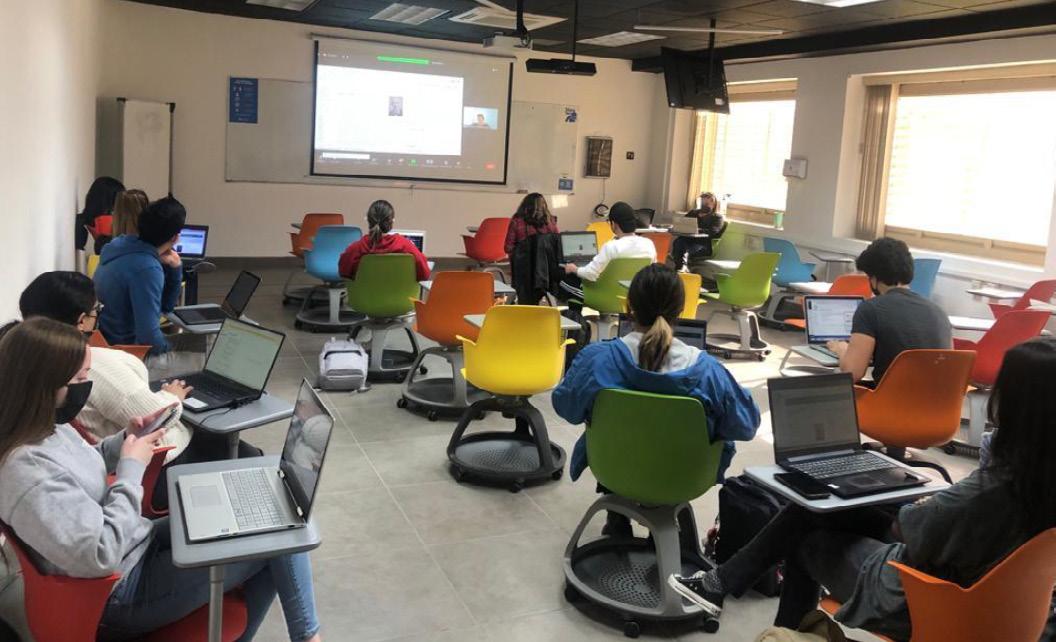
Video poetry and video essay contest on the play “The lost children” by Valeria Luiselli
Interpretation of the play “The lost children” by Valeria Luiselli in video poetry format. The three best videos were awarded prizes at the Cineteca Sonora. They were also presented during the Binational Concert at the Border Wall of Naco, Arizona, and Naco, Sonora.
Fernando Adrián Mora Dávila
Ana Lourdes Álvarez Romero
Project impact
The project was implemented in Campus Sonora Norte, during the August-December 2022 period.
60 students
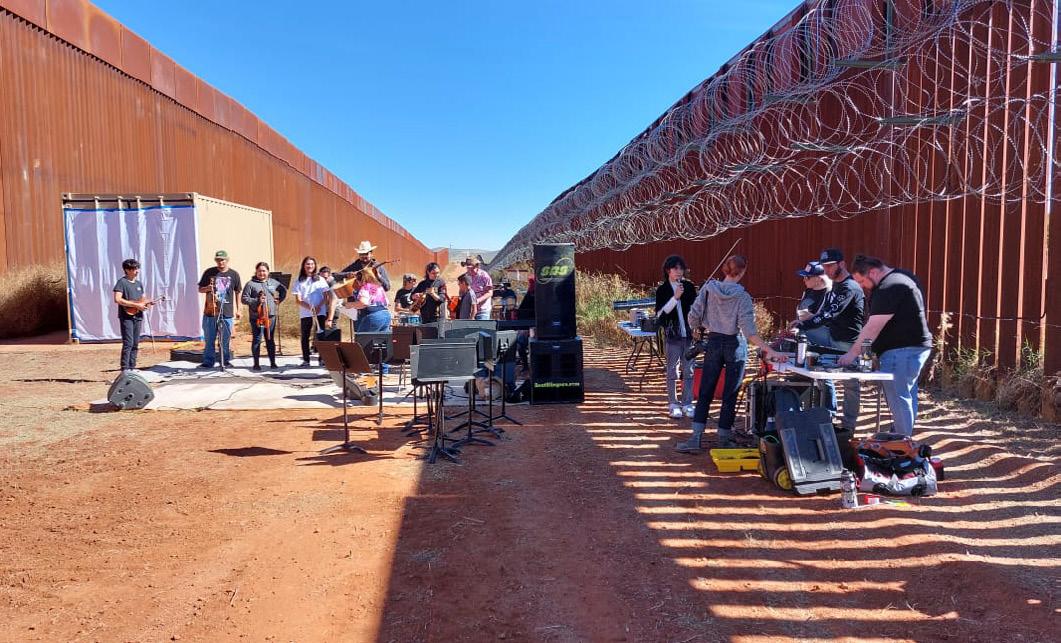
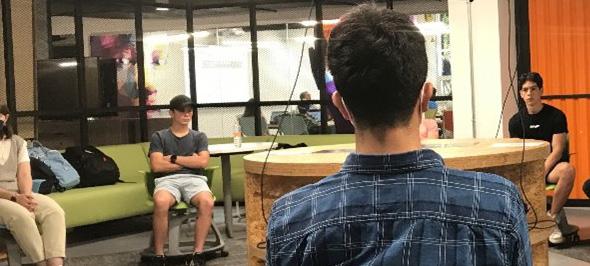
Educational innovation and digital education in the School of Engineering and Sciences in 2022.
79 educational projects
48 training units
142 teachers
8,600 students-course
Educational innovation is already part of the School of Engineering and Sciences DNA. This year, among the multiple innovations generated, we would like to highlight those related to artificial intelligence, drones, and technological platforms that help students generate competencies and teachers in their invaluable work.
Thanks to the use of artificial intelligence and the help of technological platforms, the School of Engineering and Sciences focuses much of its innovation on adaptive learning, allowing students to progress at their own pace.
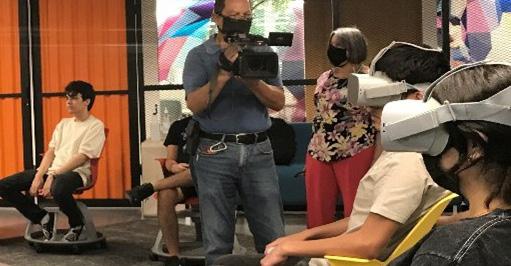
Likewise, professional and research internships have been increasingly promoted so that students can participate in this educational innovation experience.
As part of the digital learning strategy, in 2022, Elite classes continued to be promoted, allowing the School’s students to be in contact with specialists from different locations.
This immersive resource is used as part of the adaptation process of the first-year students at the School of Engineering and Sciences, and it offers them a journey in time through the history of the Tecnológico de Monterrey, its current educational program and its vision for the future, according to the Institutional Strategic Plan for 2030. The journey presents a fictional story and narrative, using storytelling and gamification to increase attention, motivation, and a favorable attitude toward learning. It is guided by an iconic world of science and engineering character who presents the students with their missions and consequences.
José Obedt Figueroa Cavazos
Olga Laura Cantú de la Garza
José Rogelio Rivas Pimentel
Mauricio Mojica Irigoyen
The project was implemented in Campus Monterrey during the February-June and August-December 2022 periods.
688 students on-site in Monterrey and +3,500 at a national level
+50 teachers
It was implemented in the Training Unit F1001B
Evaluating an argumentative text requires interpreting the ideas, basis, and solution processes expected from students. With this goal in mind, the tool of latent semantics analysis LSA, an AI technique to interpret argumentative tests, was applied to the work of 250 students. This tool can evaluate 250 argumentative texts in 5 minutes, which improves the actual review time by approximately 10 and 15 minutes per student. It also identifies each student’s terms and
the approximate percentage of closeness to the expert’s answer used as the basis for the student’s evaluation.
For this, a protocol of implementation was established for the review process of the elements that students must use in a written argument, as well as recommendations for teachers to use the tool and develop the feedback and evaluation processes more efficiently.
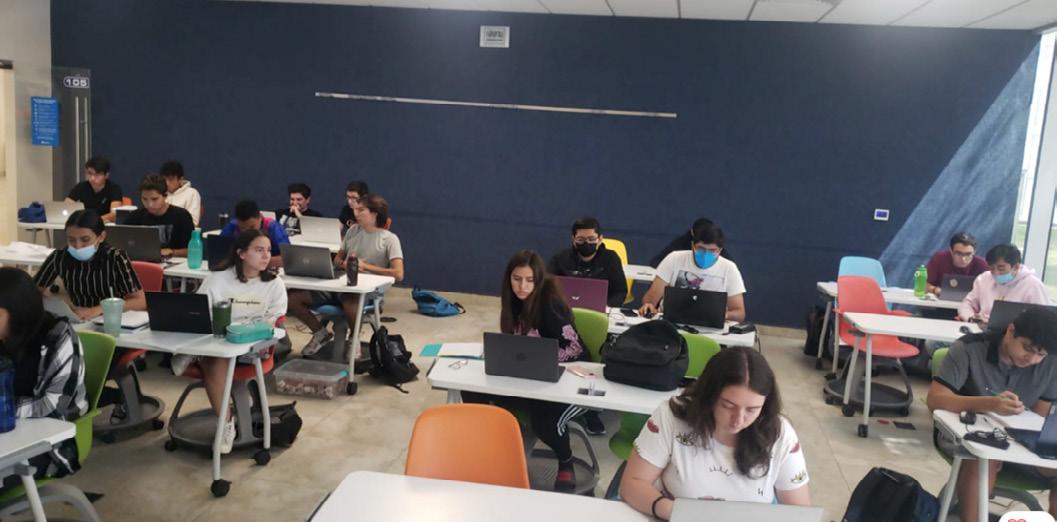
Argumentative text evaluated with AI tool “smart evaluation of argumentative tests”.
Omar Olmos López
Santa Esmeralda Tejeda Torres
Lilian Aurora Ochoa Ontiveros
Ana María Mutio Rico
Eréndira Gabriela Avilez Rabanales
César Eduardo García Ortiz
José Manuel Pardo Regueiro
The project was implemented in the Laguna, Monterrey, Saltillo, and Toluca campuses during the August-December 2022 period.
250 students in 6 courses of the School’s 4 paths
7 teachers
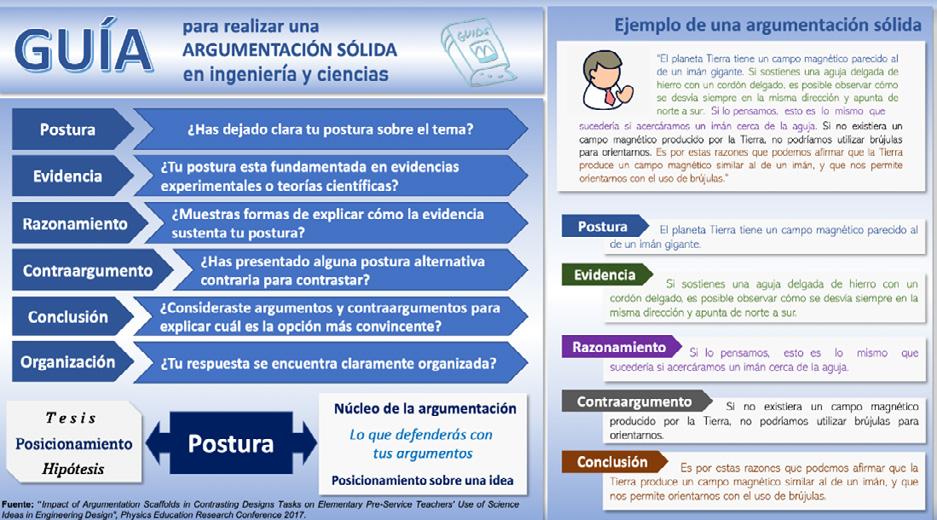
Practice infographic developed for students evaluating argumentative texts.
Biomolecules rally: 3D printing and gamification as a strategy for Biochemistry learning
Gamification-style activity in which, through 3D printed structures, the students were asked to identify biomolecules previously seen during the theoretical portion of the class (including videos and models). Students were able to have a “tangible” understanding of theoretical concepts, appreciating the “real” look of these molecules and achieving a greater understanding of the relationship between their physical structure and their
function within the cells. This pilot test was made up of two groups of 25 students each, and the level of experience and learning was compared to that of two control groups. The impact was highly favorable for the students that participated in the rally, as they not only had a better understanding of concepts that are commonly too abstract and complex to understand, but they also enjoyed it more and showed more enthusiasm and satisfaction at the end of the course. The students also rated the experience as very pleasant, entertaining, and highly educational.
Participating teachers
Luis Eduardo García Amézquita
Angélica Lizeth Sánchez López
Francisco Javier Montes Montejo
The project was implemented in Campus Guadalajara during the August-December 2022 period.
50 students
7 teachers
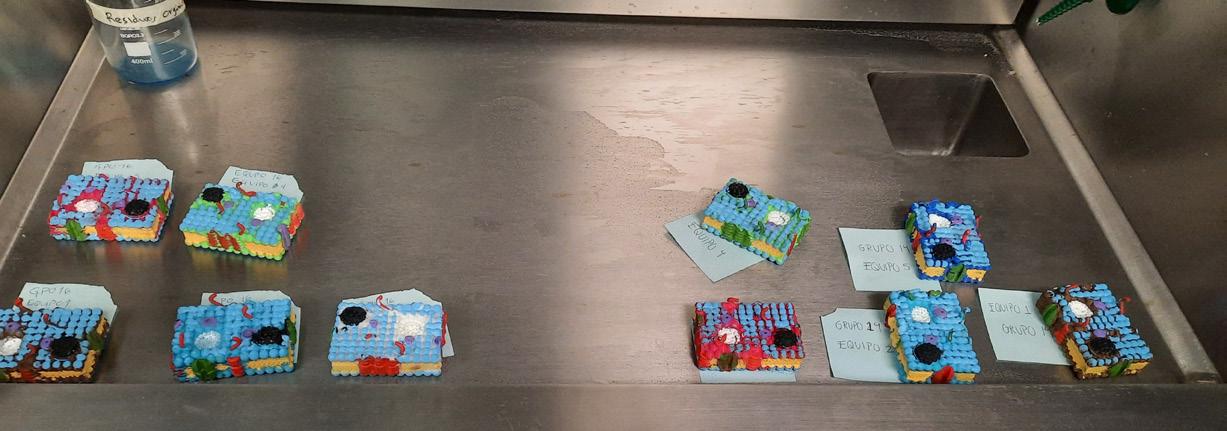
Technological tool for using pedagogical guides to stimulate learning motivation with affective elements. Through artificial intelligence, emotions involved in the feedback are identified to trigger attitudes to motivate learning in students.
The tool helps identify the teachers’ emotions in their written feedback to recalibrate it so they can express the feelings they are trying to convey. Thus, the importance of training teachers capable of using their feedback to stimulate a mind that is socially connected and emotionally secure conducive to significant learning.
Lilia Carolina Rodríguez Galván
Patricia Esther Alonso Galicia
Eduardo Daniel Juárez Pineda
José Manuel Velázquez Hurtado
Mariana Maya López
Ivo Neftalí Ayala García
Kenneth William Bauer
Eduardo Erik Larsen Garza
The project was implemented in the Querétaro, Puebla, and Guadalajara campuses during the August-December 2022 period.
445 students in 19 groups
8 teachers
3 international publications


Educational innovation and digital education in the School of Medicine and Health Sciences in 2022.
30 education projects
20 training units
114 teachers
9,100 students-course
At the School of Medicine and Health Sciences (EMCS), the use of technology in the teachinglearning process is constantly being updated. Prominent authors have highlighted the advantages of employing technology for content delivery for adopting knowledge, in evaluation processes, or in specialized simulation techniques that enhance the educational experience.

Every innovation starts with the teacher’s dream of improving their students’ learning. With the institution’s support in the design and implementation of the experience, the teachers organize, in a structured manner, the implementation and transference of the technological resources employed.
The use of technologies indicates a process of reflection to establish the appropriate type of specialized resource to facilitate the acquisition or evaluation of the students’ knowledge. That is why we extend our gratitude to the teachers who have participated in the innovation processes for the benefit of the students’ learning, the use of technologies that benefit the main actors of the teaching-learning process, and the students who benefit from the access to
resources designed with well-crafted learning objectives.
At the School of Medicine and Health Sciences, we work to incorporate immersive elements that provide our students with better content for their educational offers.
In 2022, the educational innovation projects by the EMCS focused on better use and development of spaces in the institution’s metaverse, as well as the use of mixed reality to practice specific processes; lastly, an initiative of adaptive learning was introduced to offer students a variety of contents that facilitates the learning of their training units.
As part of the initiative of immersive learning with technology, a Health Sciences metaverse was created, where students applied and developed knowledge and competencies in real and virtual environments in an experiential, active, and flexible manner, according to their professional and personal needs. The first programs in this initiative were Medical Surgeon (implemented) and Dentist Surgeon (in development).
Participating teachers
Rosa del Carmen López Sánchez
Lizette Susana Hernández Cárdenas
José Carlos Presa Ramírez
Ernesto Ramos González
Karen Lucía Reyes González
The Medical Surgeon project was implemented in Campus Monterrey.
350 students
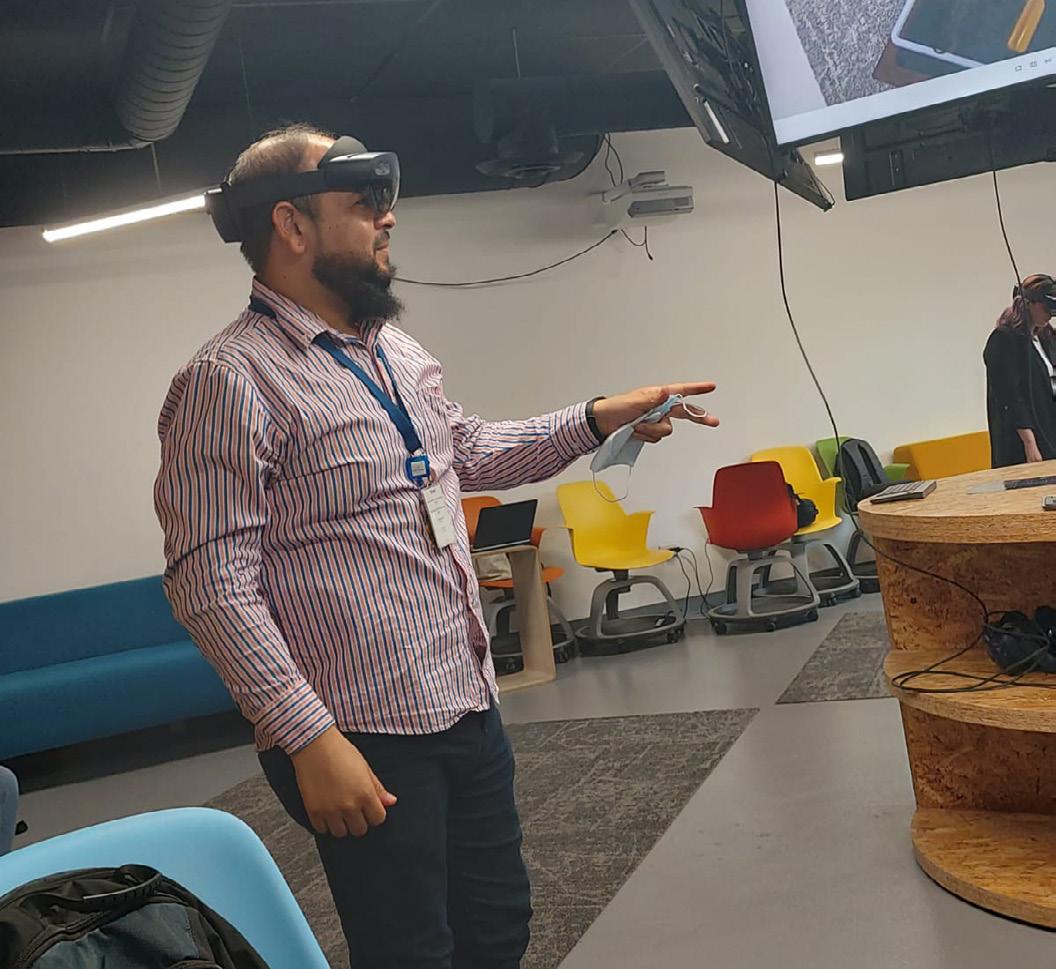
9 teachers
When the implementation of the Tec21 Model started, 2 courses were developed using the adaptive learning strategy: “The biology of the human cell” and “Biostructures: the origin of life.” Taking advantage of the benefits of this strategy in hybrid and online environments, the courses offered students resources in various formats and with learning routes that guided their learning, creating a more individual experience according to their needs and preferences.
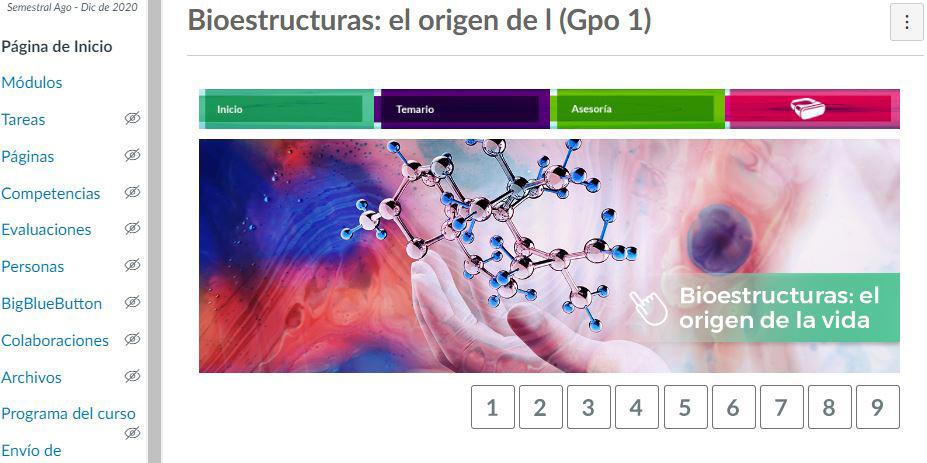
Participating teachers
Lizette Susana Hernández Cárdenas
José Ascención Hernández Hernández
Roxana Alicia Rivera Prieto
Blanca Margarita Bazán Perkins
Anahí González Mercado
These courses were offered in 2022 as part of the leveling process in both courses.
6 teachers
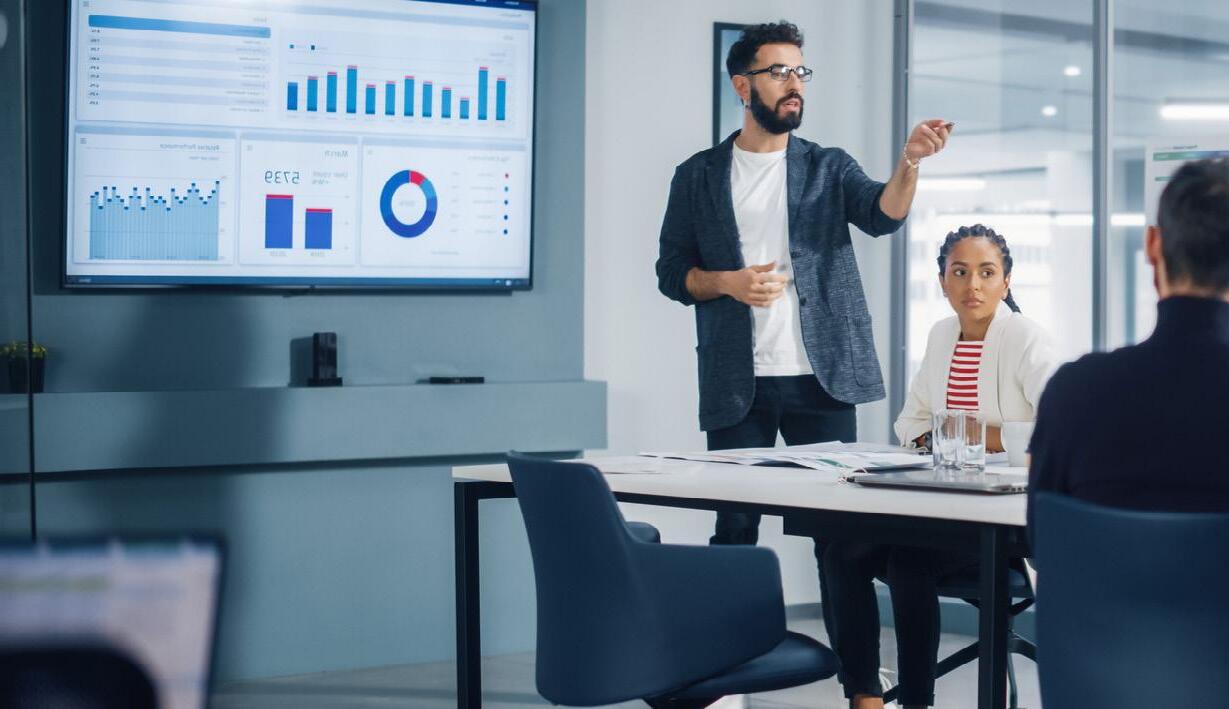
EGADE Business School and Tecnológico de Monterrey have always been renowned for exploring new and better ways of carrying out the teaching-learning process, with the intent that our teachers integrate various pedagogical techniques into their courses so they can transform their classes into memorable and significant learning experiences, for students to develop their skills and generate real value for the organizations they work for and for society at large.
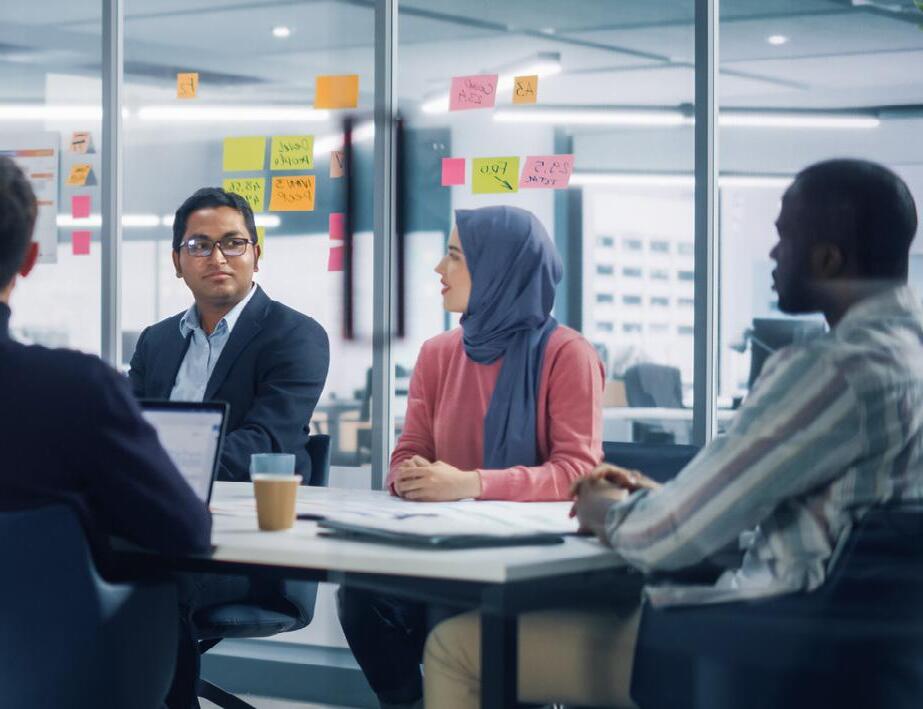
In 2022, we devoted our efforts to exploring and accompanying our students in the realization of a disruptive process:
Methodologies of active learning, such as the case method and the collaboration strategy based on the COIL methodology to promote internationalization.
Class dynamics that integrate engagement techniques such as storytelling and gamification.
We also sought to promote using the Hall Immersive Rooms to improve the teaching experience of some of our online courses.
One of our strategic objectives focused on generating transformative, international
learning experiences of excellence. With this challenge in mind, we are designing our educational innovation portfolio with design and support tools so that teachers can create learning experiences conducive to critical thinking and life, immersive and experiential learning.
We have new challenges in 2023, and we will focus on the redesign of our programs based on EGADE’s new strategy, and also on reaching new markets, improving our learning experiences with a combination of formats and methodologies to create contents that are more flexible and applied to adapt new proposals to different value segments. To achieve all this, we will take advantage of what digital education brings to the table.
A gamification strategy was used to incentivize the participation of students to increase their motivation through game mechanics in the design of academic content and activities, as well as to create innovative and transformative experiences that would enhance and improve the effectiveness of the teaching-learning process in graduate students.
5 activities with EGADE teachers were considered, including solutions proposals for a Harvard case and a custom case, as well as play activities to solve problem situations posed by the participating teachers.
Federico Trigos Salazar
Rolando Fuentes Bracamontes
Claudia Ramos Garza
Claudia María Quintanilla Domínguez
Ricardo Ernesto Buitrago Rubiano
Project impact
The project was implemented in the San Pedro, Guadalajara, and Santa Fe campuses during the AugustDecember 2022 period.
141 students
5 teachers
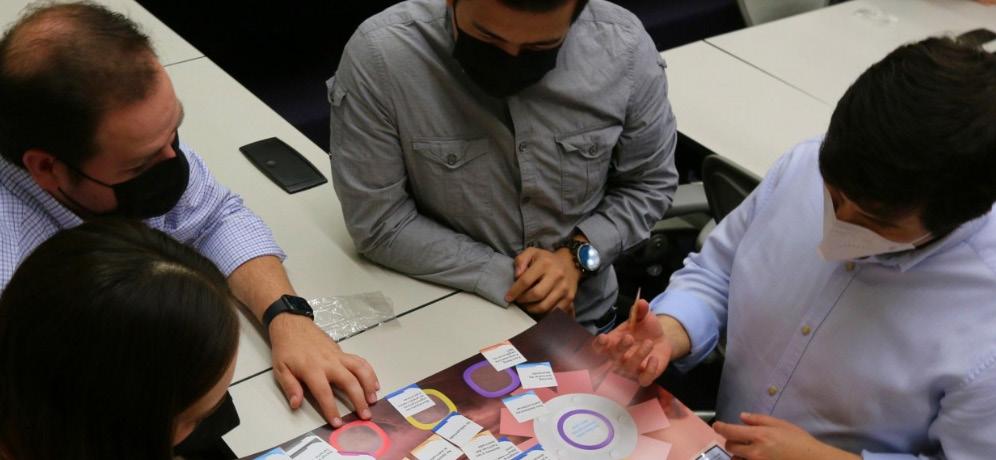
The national MBA meeting was held in Campus San Pedro, Monterrey, on Softskills, with an attendance of 80 students from the San Pedro, Santa Fe, and Guadalajara campuses. The goal of holding the event with gamification was to generate a feeling of belonging and to connect with the values and services of EGADE, in addition to fostering networking and the participation of students through a different and memorable experience. Students had to complete 5 gamified challenges during the event, for which they were provided with a passport with the instructions and a space to place the badges awarded upon completion of each challenge, as well as a ticket to participate in a raffle at the end.
The project was developed in the San Pedro, Guadalajara, and Santa Fe campuses during the AugustDecember 2022 period.
80 students
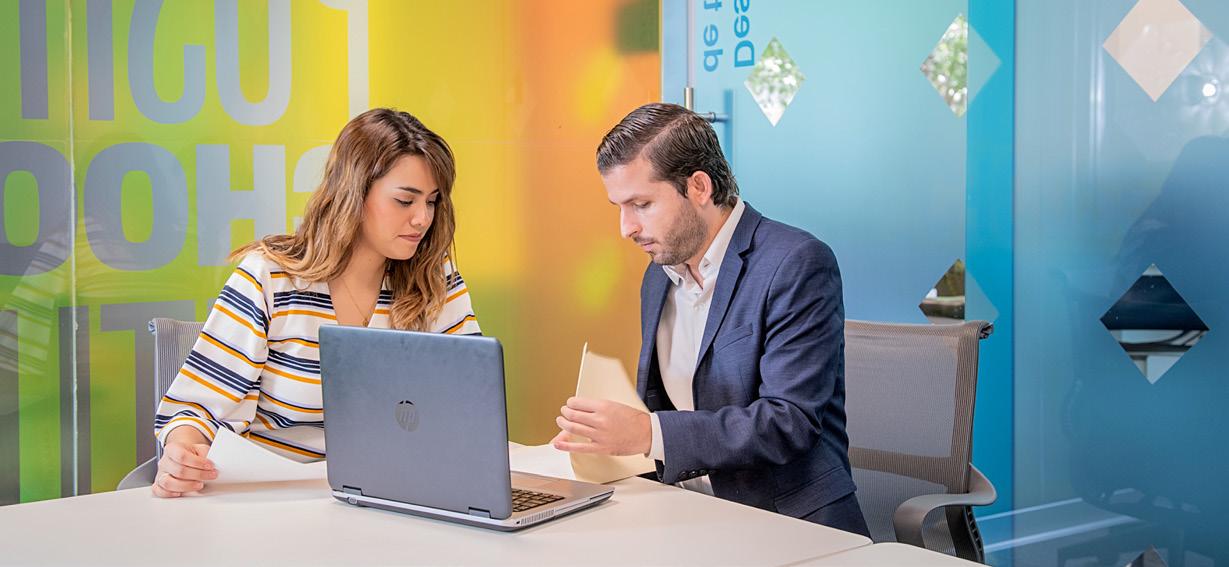
An EGADE Business School initiative where, through a high-impact virtual practice complementary to regular classes, teachers with similar courses from different business schools can coordinate so their students can collaborate on a specific project, whether a case or a business plan, or a pitch. Its
objective is to promote internationalization at home through collaborative activities that motivate the development of intercultural competencies, stimulating the learning process in a virtual environment, and connecting EGADE students with students from international business schools.
The project was implemented in the San Pedro and Santa Fe campuses during the August-December 2022 period.

EGADE teachers conducted their online classes using the Hall Immersive Room, an immersive classroom designed for teaching and broadcasting distance courses that, with the integration of video, communication, and interaction technology, is conducive to engagement, thus providing a better experience to students.
The project was developed in Campus Monterrey during the August-December 2022 period.
40 students
2 teachers
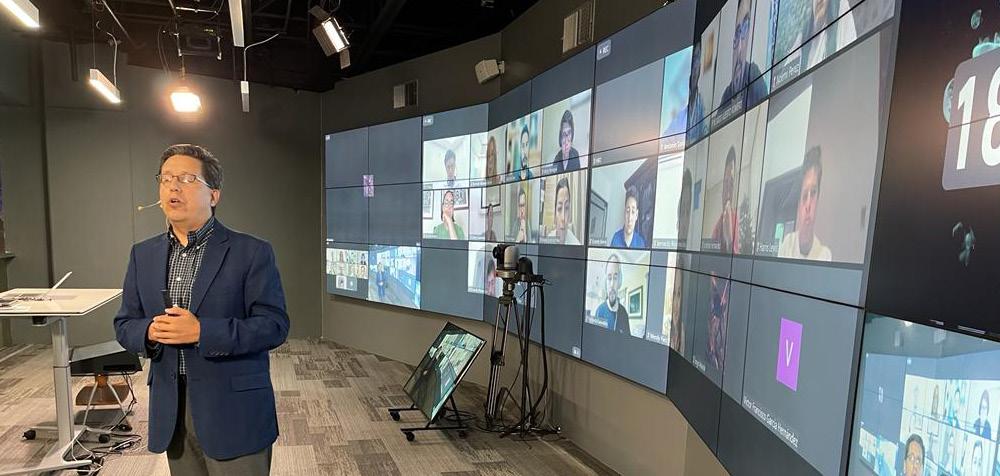
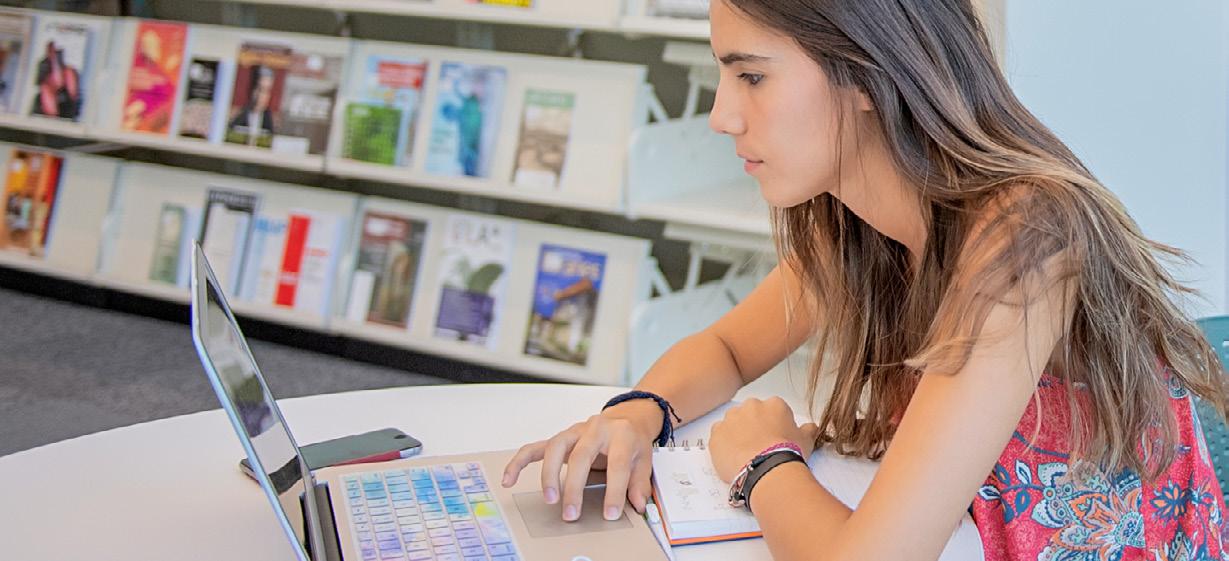
Educational innovation and digital education in PrepaTec in 2022.
8 education projects
3 training units
76 teachers
4,764 students-course
As part of the innovative and digital strategies developed by PrepaTec in 2022, from June to November, a student-centered learning experience called Transdisciplinary Project Based Learning was designed and implemented, which integrated the approaches of Natural Sciences, Mathematics, Computing, Communication, and Social Science, aligned to the objectives of
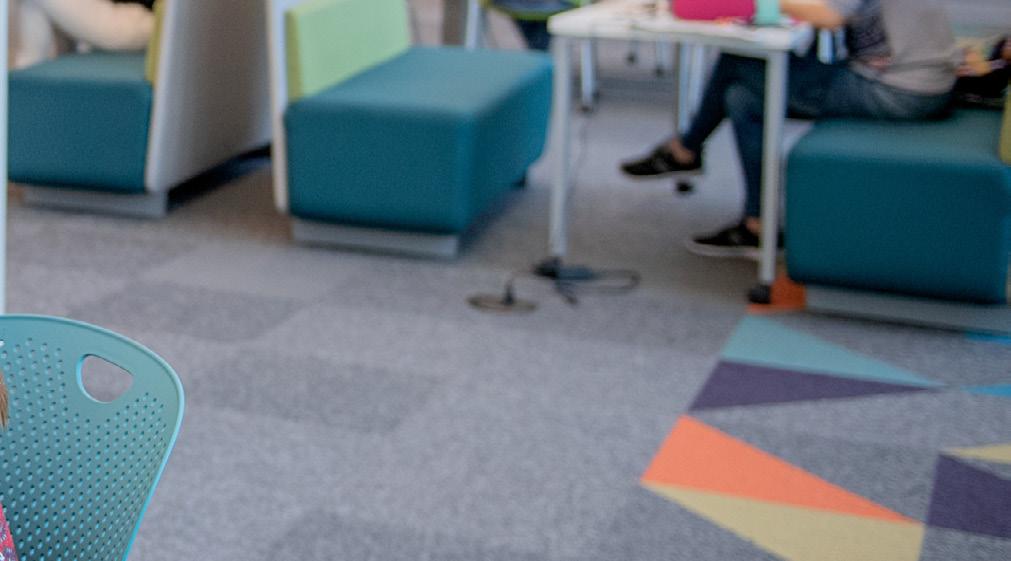
Sustainable Development. The design was developed in June 2022 with the support of Principled Learning Strategies and 3D Education and with the participation of teacher teams of all the disciplines of the Estado de México, Cuernavaca, and Monterrey campuses. The pilot was launched in the August-December period, with a national implementation coming in 2023.
The objectives of this experience are:
Developing an interdisciplinary project for all the subjects in which students develop and show their competencies.
Promoting student-centered learning with a practical project in which they can tackle a global challenge from a local perspective, using their voice and choice.
The design of the experience includes a holistic approach and a trigger question, a field visit, and a milestones calendar. It incorporates a third-semester project with a climate crisis interdisciplinary topic and another for the second semester about peace and wellness, integrating the development and evaluation of competencies from all disciplines.
The project methodology begins with a trigger question, an authentic face-to-face experience conducive to generating questions, and, in turn, the inquiry process. Afterward, a series of milestones must be reached: a written article of scientific dissemination that includes the social component of the climate crisis, a persuasive speech to be spoken before a real audience, a public exhibition where they show their solutions designed for the community and a final reflection that sums up all the students’ work and learning.
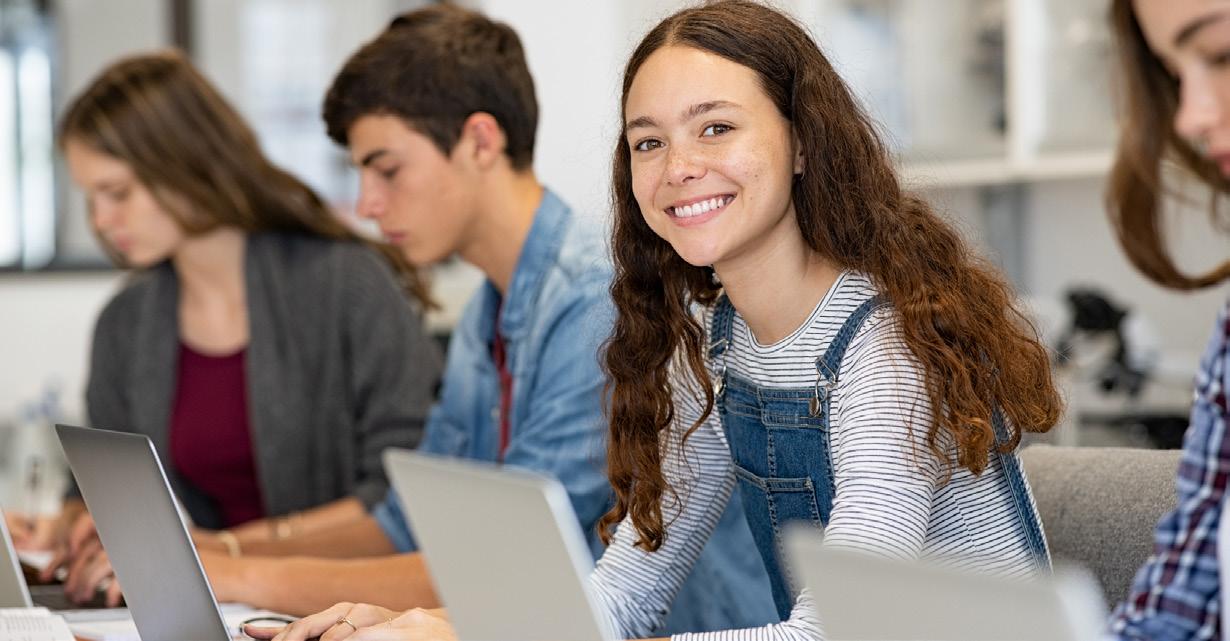
Below are presented some of the pilot projects developed as part of this learning experience:
Starina Sanctuary: Autonomous greenhouse located in nursing homes and schools in Monterrey. The project proposes using sensors to control humidity, temperature, and pH conditions.
Design prototype of a robotic mill that separates solid waste in bodies of water, based mainly on the selection of waste through sensors that detect the physical properties of waste and signs of life, distinguishing between fauna and waste.
Alternative life: Intending to reduce the consumption of water used in meat
production, this project seeks to create a line of vegan food that is freezable, convenient, and economical, based on vegetable ingredients, such as peas, chickpeas, rice, and beets.
It should be noted that this type of transdisciplinary project generates high-value challenges not only for our students, who see connections between their courses and are empowered as agents of change in their community but also for the teachers, who feel energized when leaving their own classroom and discipline to seek holistic, experiential and applied learning in the context of each community.
Cultural Heritage Museum of Mexico in Multicultural agents and perspectives in its digital education version
To understand and study the characteristics of Mexican culture, students visit the Cultural Heritage Museum of Mexico through an immersive resource. They later visit the page www.cram.com and, as a team, prepare interactive digital cards with the stills of the mural that most attracted their attention from the museum and describe the image according to what was studied in the unit. Once the activity is done, it is shared with their classmates.
Project impact
161 students
5 teachers
Immersion activities in virtual environments
Poster exhibition in Multicultural agents and perspectives where expressions of urban art, signs, and symbols and their meaning for social change are identified.
Philosophical Thought Rally with themes according to the philosophical branches.
Development of models in the field of digital business with innovative products by work teams.
Project impact
951 students
26 teachers
To have greater participation in the virtual sessions scheduled during the semester in the online Digital Business course, students participate in the Pinekel challenge, where they can earn mini-rewards through the app. The top 5 places at the end of the semester are granted a final reward.
Project impact
659 students
19 teachers

Honest poster virtual gallery in the elective course The world through film
Virtual gallery with the Mozilla Hubs tool where students redesign a movie poster and analyze what would happen if movies were honest about their storylines. The virtual gallery is shared at the end of the activity, and students visit the space to interact with them.
Project impact
483 students
8 teachers
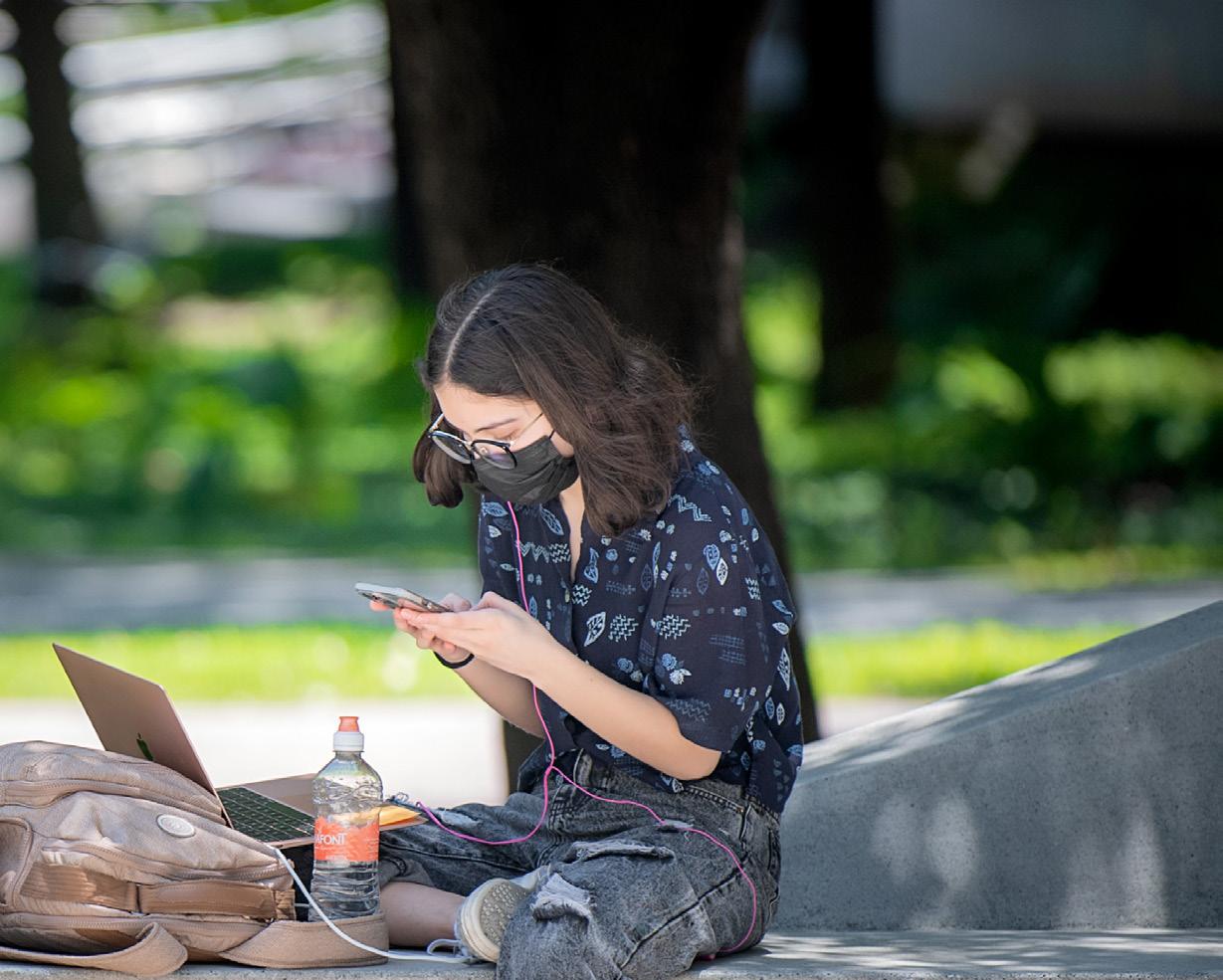
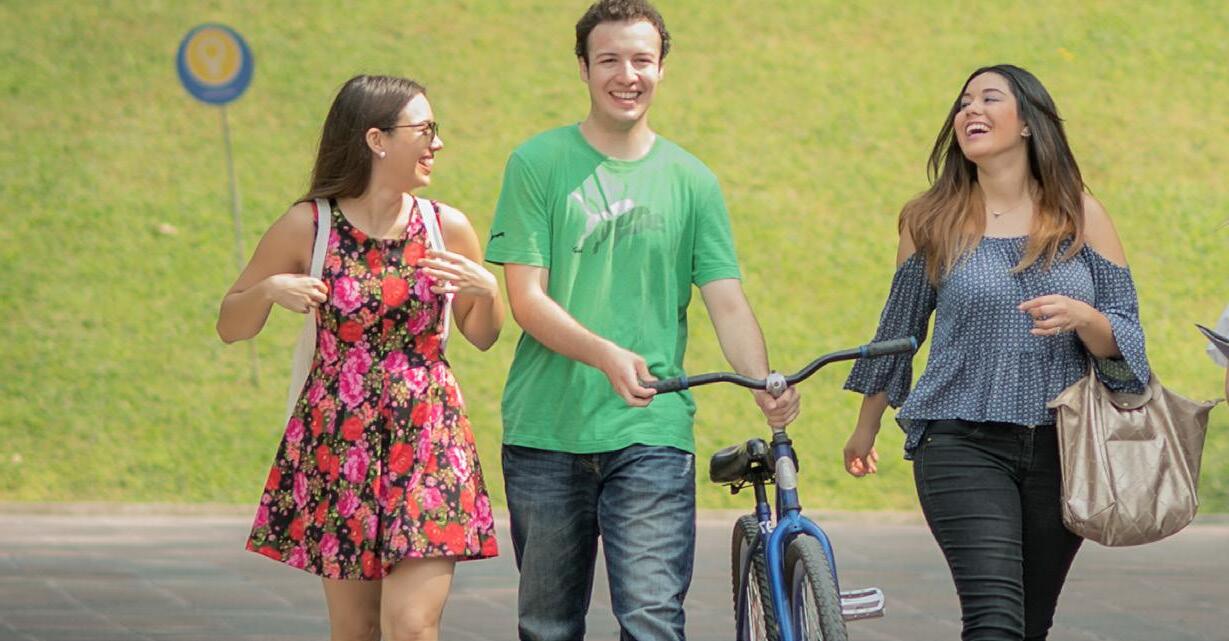
Educational innovation and digital education in Leadership and Student Training (LiFE) in 2022.
3 education projects
2 training units
8 teachers
249 students-course
As part of their strategy of educational innovation and digital education, the Leadership and Student Training (LiFE) programs designed various courses in 2022 for the self-knowledge process of our students to influence their human flourishing. In coordination with the Department of Educational Innovation, the classes “Internal knowledge and compassion” and “My life plan at Tec” were offered.
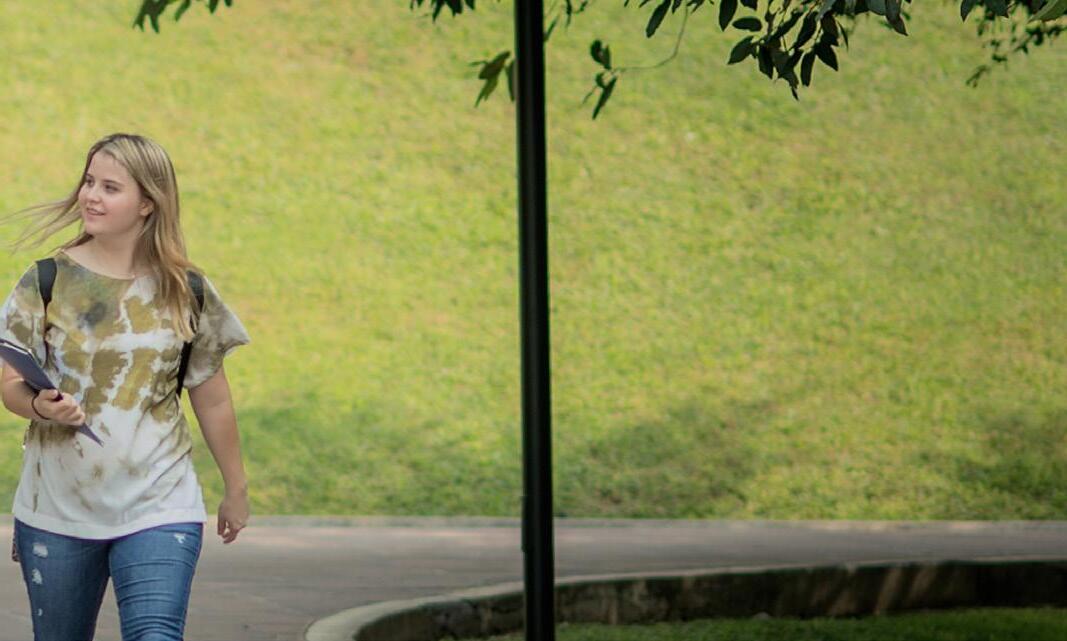
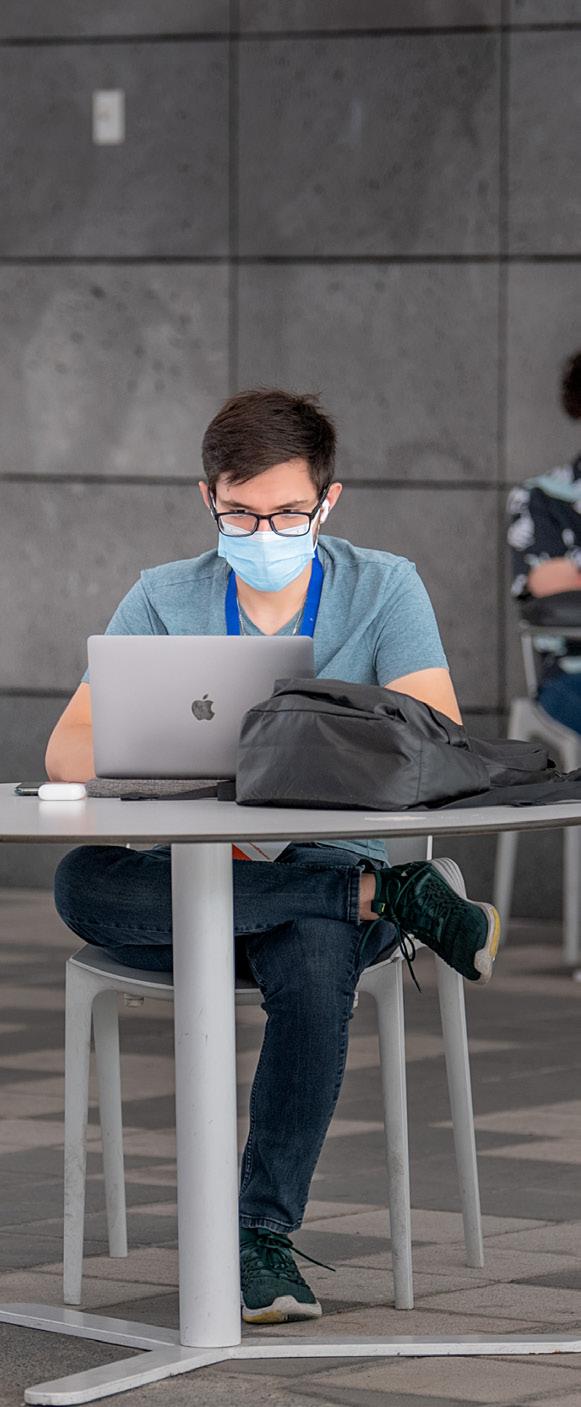
Through the “Internal knowledge and compassion” course, the student realizes the relationship between their reality and how it relates to their internal experience and the resulting behaviors from such interaction; it also implements compassionate communication strategies that help them cultivate positive resonance in interpersonal relationships.
Likewise, techniques like breathing, meditation, and reflective writing are employed to help students to clarify their ideas and focus their attention on the here and now.
The course “My life plan at Tec” incorporated contents with adaptive learning so students can define their life purpose, identify their appropriate learning styles and study techniques and implement strategies for their integral wellness.

Within the Vice-rectory of Continuing Education, there is constant innovation to continue impacting its public, offering products of the highest academic quality and a memorable experience for all students.
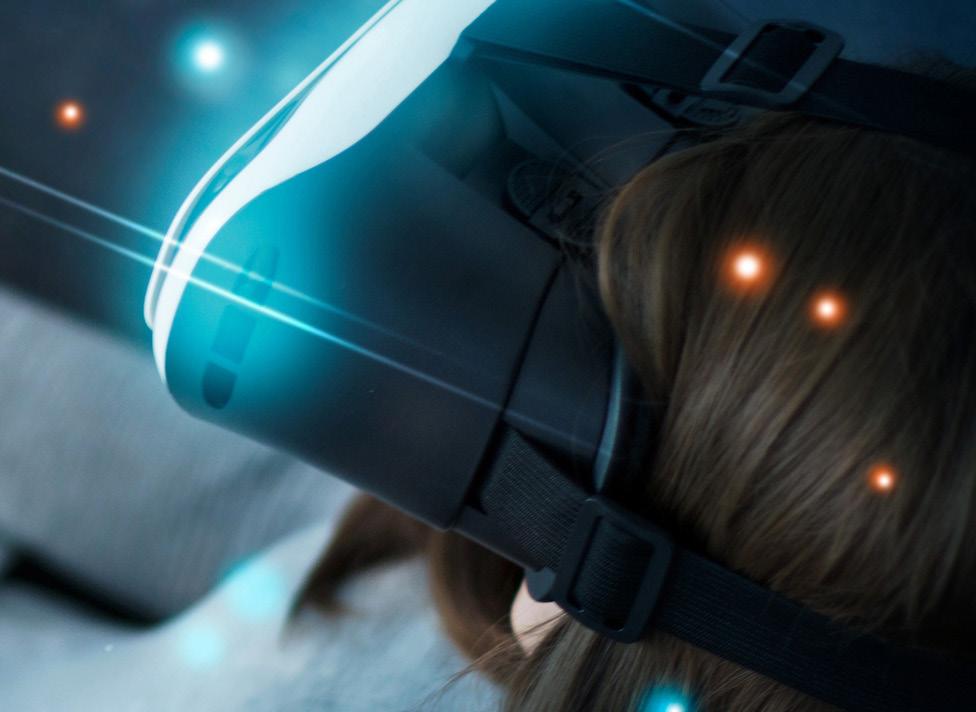
Use of the metaverse in Lifelong
To include innovative teaching strategies based on cutting-edge technology that favors social interaction, eliminate the time and space barriers, and create memorable experiences through virtual worlds, this year, the Vicerectory of Continuing Education integrated the use of the Tecnológico de Monterrey’s metaverse, Tec Virtual Campus, in their digital programs.
Tec Virtual Campus is a virtual environment in 3D that allows the expert and the participant to interact, generate content, be part of activities, and create memorable experiences in a free and autonomous manner, both collaboratively and individually, using a custom avatar (previously started in the virtual world); this avatar allows for a sense of community, even when teachers and students are not in the same physical space, which would be difficult to achieve using other tools or platforms.
The Big Data as a Business Strategy certification included the Elevator Pitch methodology as part of their teaching-learning strategy, in which participants presented their final projects and received immediate feedback from both experts and their peers within the Tec Virtual Campus.
The activity gathered the participants of the certification in a single virtual space, regardless of their physical location (Mexico, Ecuador, Colombia, Peru, Chile, United States, and Italy, among other countries) who, after presenting the projects, had moments of interaction, reflection, and networking in discussion groups previously set up for this purpose.
In addition to the fact that the metaverse activity was rated as excellent by more than 90% of the participants, significant benefits were observed, among which are: the closeness achieved between peers and experts, the interaction in an environment of trust, the elimination of time and space constraints, and the positive outcome on the digital program indicators, such as an increase
on the Net Promoter Score (NPS) and the terminal efficiency of 6 and 4 percentage points, respectively, compared with sessions that didn’t include the Tec Virtual Campus activity.
Lastly, knowing the benefits and how the feeling of belonging of the participant is enhanced with the use of the Metaverse, there is a plan underway to implement it in various programs from different modalities (virtual, digital, or live) to continue being the best option for the participants who entrust their training and updating of professional competencies and skills to the Tecnológico de Monterrey.
As part of the evolution toward Tecnológico de Monterrey’s 2025 plan, The Learning Gate (TLG) was created, an innovative and high-impact learning ecosystem of life-long accompaniment for leaders with immense potential, capable of transforming the organizations in which they participate, their environment and the communities in which they live.
This flexible on-demand model is Tecnológico de Monterrey’s differentiated delivery of continuing education that seeks to incentivize the acceleration of digital education. The characteristics of this educational model are:
Generation of key competencies for professional success
Challenges applied to the work reality of the entrepreneur
Multimedia resources within an agile and intuitive platform
100% online, flexible, custom-made programs
Constant feedback from experts
Cutting-edge insights
Digital badges with blockchain security and certificates endorsed by Tecnológico de Monterrey
Networking
Conferences with industry leaders
The Learning Gate began commercial operations in January 2022. Currently, two full thematic areas have been released
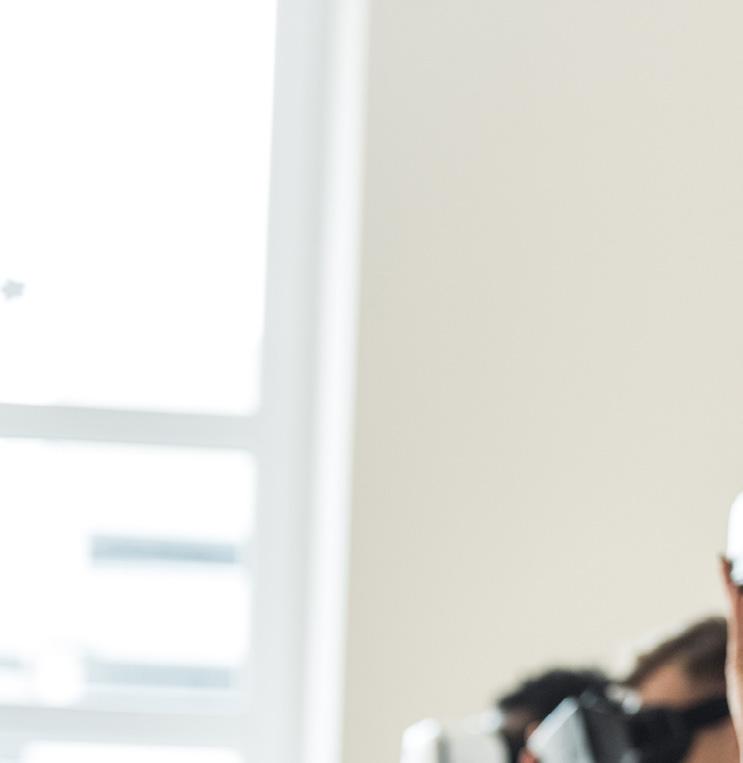
Some of the indicators of note to date are:
623 learners enrolled
7,542 modules bought
Final average score of our learners per subcompetency: 90
Average test score (40% of the total score of the sub-competency): 91
Average score of the applied challenge (60% of the total score of the subcompetency): 94
100% of our learners complete the applied challenge on their first try.
Another important aspect of The Learning
leaders and interact in a digital learning space. Currently, there are virtual communities in the Leadership and Data science thematic areas. There are also monthly online talks and workshops, where trends in each active thematic area are discussed and how they can be applied to today’s work environment.
Also, industry leaders participate in face-toface networking events, where they share with learners the direct applications of the topics they study.
Networking events occur quarterly and have been held in Monterrey and Mexico City. In 2022, 4 face-to-face events were held, and in December, the first networking event inside Tecnológico de Monterrey’s Tec Virtual Campus metaverse took place.



Adaptive learning is an education strategy that uses technology based on data analytics to adapt education and create a personalized learning route, of which the teacher had previously designed its contents, for it to be effective and efficient for each student. The teachers can then identify gaps in the group’s comprehension to establish improvement actions and adjust their teaching practice, thus optimizing the students’ performance.
An appropriate application of this strategy contributes to achieving academic success in key training units for students starting their journey in the Tec21 Model.
Some distinct elements of the adaptive learning strategy implemented in the institution are:
Support strategies that promote active learning and the study of short-duration learning resources.
Interaction through a platform focused on adaptive learning.
Access to a wide variety of digital resources, such as videos, charts, articles, exercises, websites, etc.
Analytics reports to show progress and facilitate the decision-making of students and teachers.
The Office of the Vice-Rector for Academic Affairs and Innovational Education designed a pilot program for 4 training units of the School of Engineering and Sciences in the areas of Mathematics, Physics, and Computer Science during the August-December 2022 period: Computational Thinking for Engineering, Fundamental Mathematical modeling, Movement in engineering modeling, and Application of conservation laws in engineering
The educational technology used to apply Adaptive learning was selected from over 20 existing educational technologies in the market; it was chosen using a rubric that considered the needs of the institution’s educational model and the education technologies ecosystem. Based on this, the technology best aligned with the strategy was selected.
24 groups from the Mexico City, Estado de México, Toluca, Guadalajara, and Monterrey campuses participated in this pilot program, with a total of 693 students; 12 expert teachers from each training unit designed the adaptive courses and they were taught by 32 teachers from the campuses mentioned above. The pilot program also had the support of the Institute for the Future of Education to conduct research that could measure the level of improvement of the student’s learning using this educational strategy.
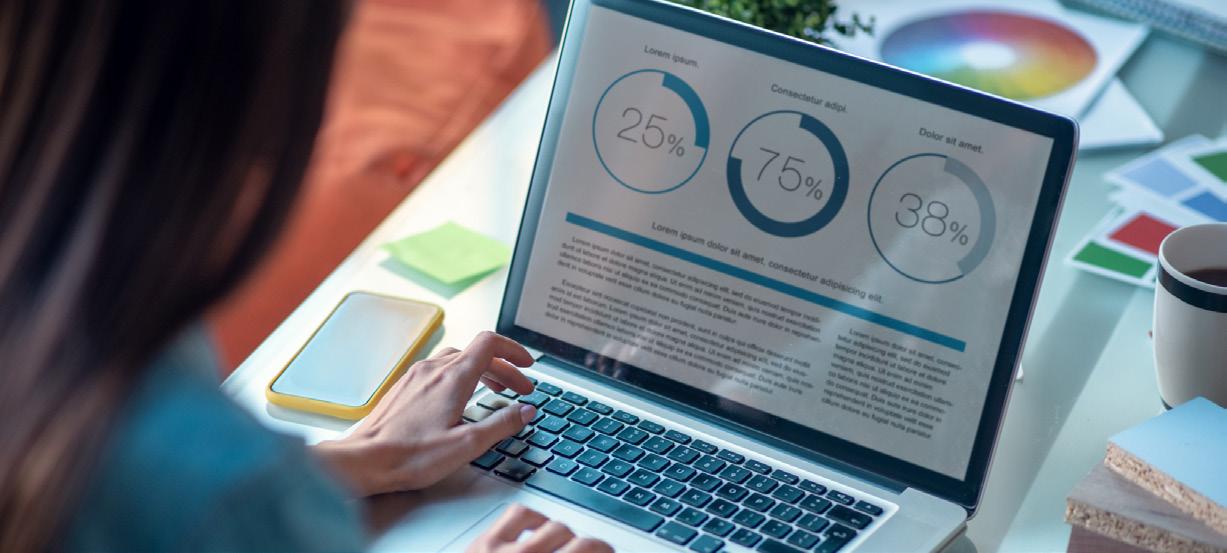
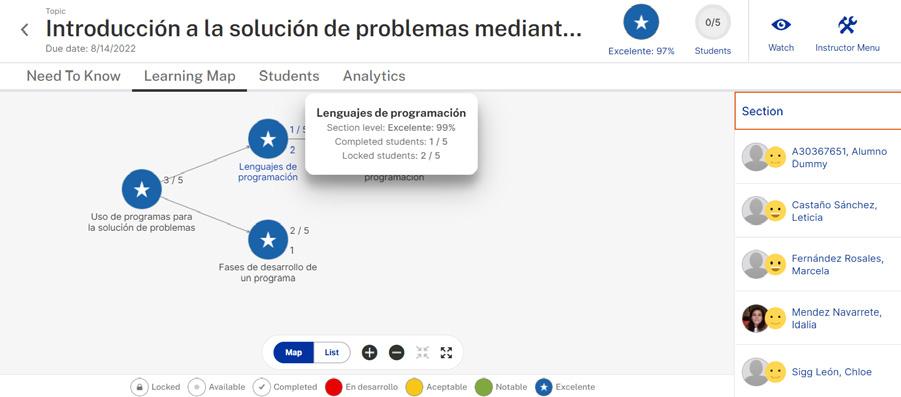
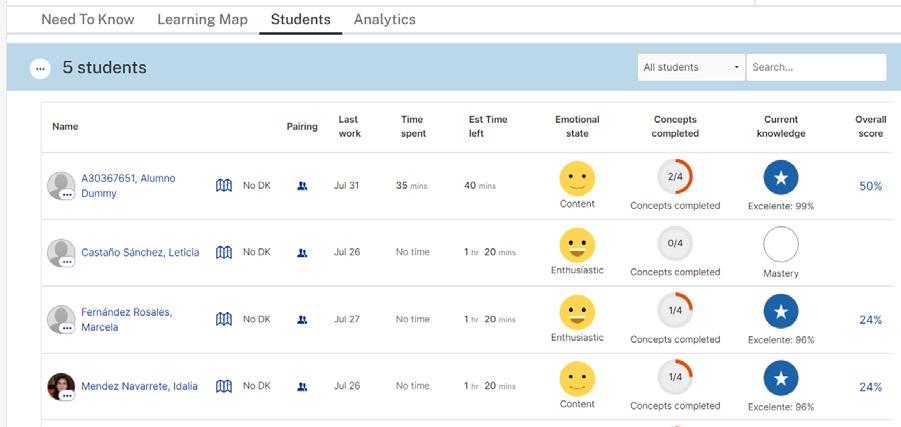
In 2022, there were also other courses using Personalized learning with adaptive bases, using CANVAS as a technological platform. Learning routes were designed, emulating an adaptive platform. 11 teachers participated, impacting 417 students on 24 campuses.
Adaptive learning in 2022 in numbers
1,110 students from 24 campuses
55 teachers
6 training units
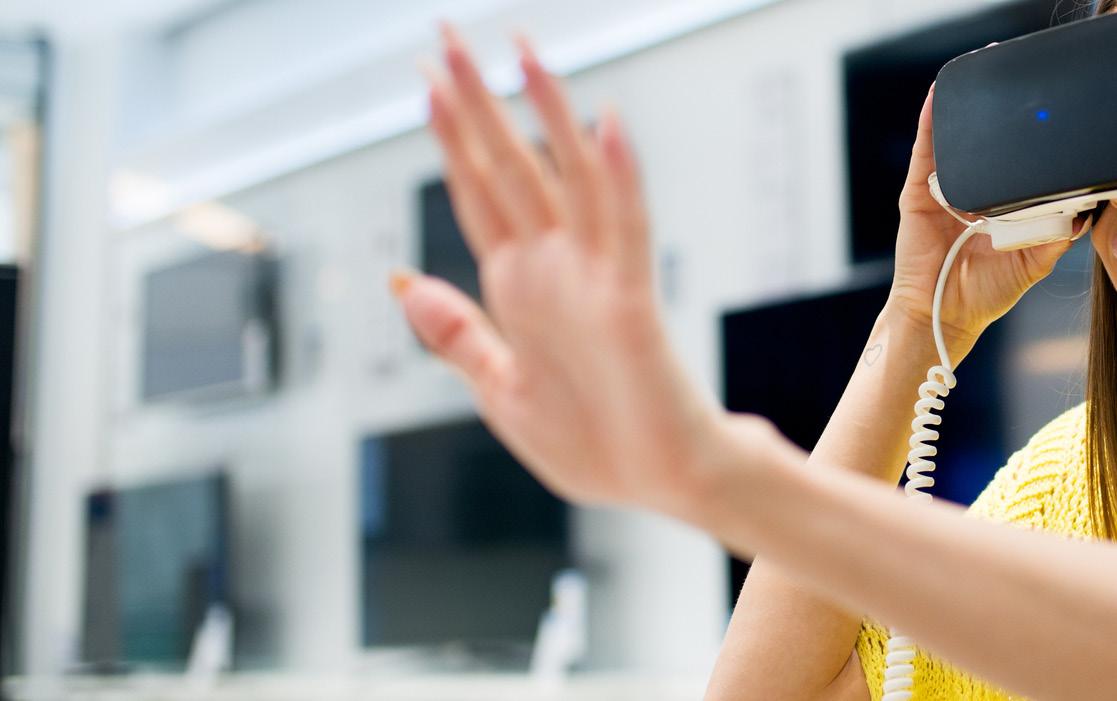
The Immersive learning with extended reality strategy in 2022 focused mainly on 3 key objectives:
To further develop and advance transversal projects and add to the differentiated
offer of digital education. The project’s transversality lies in focusing AIRX by design in Training units that all the students from a school intentionally take to add to their learning experience and differentiate the training units of the digital education offer.

To further improve the definitions of the AIRX strategy; for example, define the teacher empowering process to use various resources in their classes with a single institutional catalog and adapt resources to add to the VR Zone experiences.
To create pilot programs with different technologies from those previously used to explore their use and document the benefits and processes for their implementation, if applicable.
Among this year’s strategic processes, we can highlight the following:
SimulCoffe-Pro (Continuous improvement)
Evaluation experience at the exploration stage for all students from the Business School. It is a business simulator that puts the student in the role of a coffee shop owner, and the experience sees them on a journey to grow their business. The improvements that benefited this experience were the creation of a teacher’s manual, a student’s manual to access the
simulator, and the design of appropriate activities and rubrics to evaluate the student’s performance accurately. 6 designer teachers participated, and it has impacted 7,719 students to date.
Virtual Reality space, Teaching-Learning Space: “Future Exploration” Escape Room
This Escape Room seeks to become a new way of teaching-learning the concepts, principles, trends, methodologies, and tools of Strategic Foresight through the design of a virtual space of collaborative learning based on solving conceptual challenges, where the students reinforce content through active learning. The integral experience is conceptualized as a space trip comprising three moments: launch, space station, and landing. The space station is made up of four thematic rooms, each of them an escape room with its specific challenges. Two designer teachers participated.


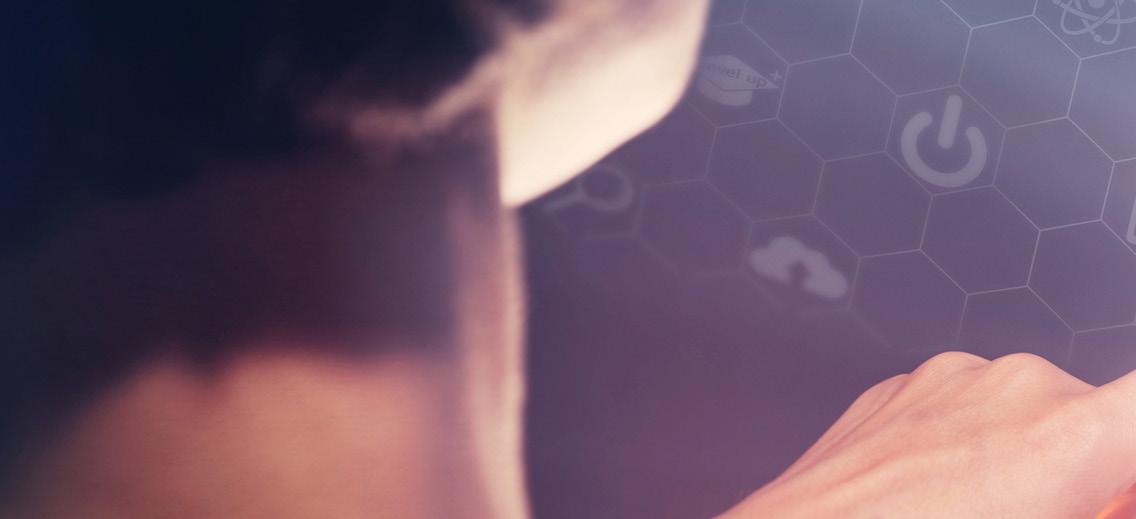
A credential recognizes the learning achievements, skills, and competencies obtained through training experiences corresponding to a study plan or personal interests for professional development and human flourishing. At Tecnológico de
Monterrey, in addition to undergraduate degrees, certifications, and diplomas, two types of credentials have been introduced: Curricular credentials and Alternative credentials.

Curricular credentials
They recognize the learning achievements, skills, and competencies obtained through training experiences corresponding to the curriculum of Tecnológico de Monterrey’s formal professional degrees and academic degrees.
Alternative credentials
They recognize the learning achievements, skills, and competencies obtained through training experiences complementary to or independent from Tecnológico de Monterrey’s formal professional degrees and academic degrees. These credentials explicitly define the expected learning results, the associated workload, and the evaluation processes that guarantee their academic quality for Undergraduate, Graduate, and Continuing Education programs.
In our Tec21 educational model for undergraduate programs, which allows the development of solid and comprehensive competencies that help students solve current and future challenges creatively and strategically, one of the commitments
is to make visible the demonstration of the developed competencies; to achieve this, an institutional framework to grant curricular and alternative credentials in the institution has been implemented.
The first generation of graduates of the 2019 study plan received, upon completion of their professional studies and, in addition to their professional diplomas, an acknowledgment of the disciplinary competencies demonstrated throughout their academic stay through digital badges they can share with their employers according to their interests.
In September of 2022, the Center of Evaluation and Alternative Credentials was created, a service area that operates as an on-demand systematic process in a digital environment for evaluating and recognizing competencies and managing alternative credentials for undergraduate programs. It operates nationally, working jointly with the deanship of the Schools and Leadership and Student Training to define which and how competencies and alternative credentials are certified, recognizing the innate differences in the disciplines.
Creation of the institutional framework of credentials at Tecnológico de Monterrey for Undergraduate, Graduate and Continuing Education programs
This framework defines Curricular credentials for Undergraduate and Graduate programs and Alternative credentials for Undergraduate, Graduate, and Continuing Education programs.
Process to accredit curricular disciplinary competencies
Definition of the guidelines to grant the disciplinary competencies credentials to undergraduate students of the 2019 plan, which states how the Curricular credential badges will be awarded.
Construction of a facilitator for the management of the student’s achievements.
Regularization and flexibility process for participation in Tec Weeks
Definition of regularization mechanisms
1. Through the evaluation of the regularization.
2. Accreditation for comparable training experiences.
3. Accreditation of equivalence through alternative credentials in Digital Continuing Education programs.
Offer of alternative credentials of Digital Continuing Education
Seminar on Positive psychology and life purpose
Seminar on Collaboration and effective negotiation
Seminar on Introduction to the digital era and big data


Incorporation of alternative credentials in the new Graduate model
At Tecnológico de Monterrey, Graduate programs recognize that students possess knowledge, skills, and experiences that are part of the trajectory before joining the institution. This is why multiple alternative credentials acquired at renowned institutions with academic rigor and enough quality to be turned into academic graduate credits for the enrolled students are validated.
To enrich the student’s learning experiences, Tecnológico de Monterrey offers programs such as Certifications and Flexpaths; they are
part of a catalog of alternative credentials in which the participant can obtain cumulative credits that can be accredited to Graduate courses. This option opens opportunities to students wanting an introduction to frontier topics with some of the current courses or Graduate-equivalent courses.
The new Graduate models consider alternative credentials as part of their design to be at the forefront of the higher education trends, that is, to open the possibilities to contents that can expand or enhance the graduate profile with institutions with agreements with the Tecnológico de Monterrey.
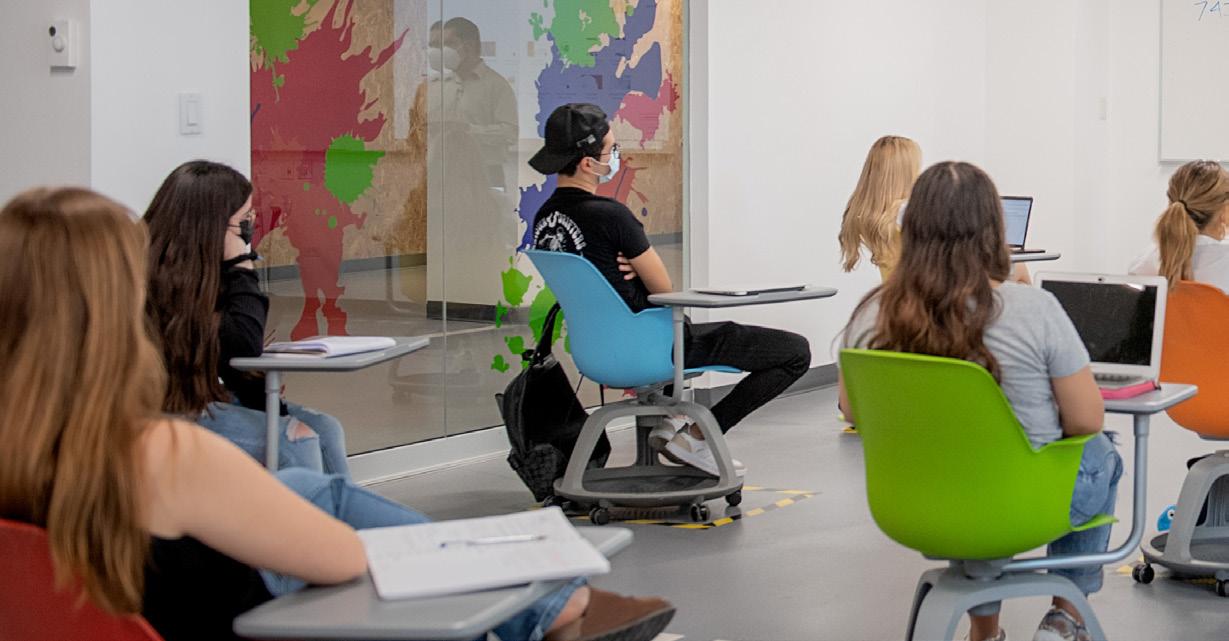
Tecnológico de Monterrey offers an ecosystem that promotes and facilitates the educational innovation of teachers in faceto-face or digital modalities. Below we share the most notable initiatives for the promotion of faculty training and educational innovation in 2022:
Tec Virtual Campus was promoted as an educational space for innovative activities in a virtual reality environment. The activities were carried out by teachers and experts in various topics; 156 activities were carried out throughout the year, impacting 1,856 teachers.
156 talks and workshops took place, impacting 2,856 teachers; the main topics were:

a. Use of technology, teaching strategies, emerging technology, and more.
b. Design of activities with VR technology.
c. Use of apps in the Flexible Digital Model.
d. Documentation of innovation generated in the Digital Model.
e. App marathon.
f. Design Thinking.
g. Communication without talking.
h. Lego workshop.
International talks were also held to exchange experiences on topics that make value generation possible and a global vision in the education process. This year, 3 international experts participated.
At the National Teacher Meeting, a space was opened to share, celebrate, and recognize the experiences and educational innovation projects to transform our teachers’ teachinglearning process. The virtual exposition included 80 projects a group of experts selected as innovative practices. They were presented in 3 different spaces: Virtual Campus during the event, a permanent exhibition on the CEDDIE national website, and the National Teacher Meeting website. The initiatives were categorized under the following thematic areas:
Pedagogical transformation: the application of new methodologies conducive to a change in the teaching-learning process, such as the launch of new didactic practices, learning strategies, and means of delivery.
Education technologies: the incorporation or implementation of technologies applied
Student experience management: implementing processes for the student experience, proposing efficiencies in the design, operation, or management of educational experiences, such as relationships with training partners.
A certification in Innovation and Educational Entrepreneurship was offered for the first time, so teachers could successfully implement their own innovation and educational entrepreneurship project at the functional prototype level during an academic semester through personalized training and accompaniment on Design Thinking. A team of experts in entrepreneurship and innovation, jointly coordinated by the InnovactionGym team and CEDDIE Center-South Region, provided personalized accompaniment to the 25 teachers that participated. 15 of them complete the certification.
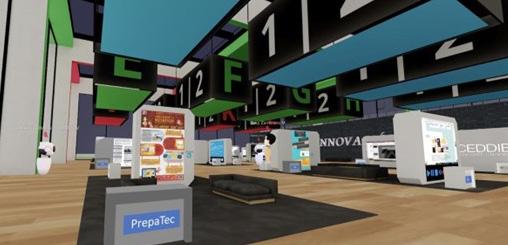
The Innovation Bootcamp was held in the summer; its methodology combined agile principles and ideation techniques for designing prototypes of educational innovation. The objective of the bootcamp’s practical activity was to get to know the current educational landscape and then create student-centered solutions to be activated during the following semester. Throughout a week, 23 teachers worked in 6 teams that presented and documented their educational innovation proposals in an elevator pitch format to a qualified jury that offered suggestions for improving and implementing their projects. Leaders in innovation from Y&E and Walmart México and Central America guided the experience.
i Register is a platform to document educational innovation experiences. A new version was launched in 2022, including functional improvements to facilitate documentation. During the Learning from our educational innovation experiences Festival, 129 teacher proposals were selected and registered. Currently, i Register is used to offer advice and generate documentation of educational innovation evidence to participate in the classification process of new experiences.
7. Promotion of teacher participation in institutional initiatives
As it does every year, CEDDIE carried out dissemination activities and supported teachers to participate in open calls of educational innovation, such as NOVUS and CIIE. To promote teacher participation in the CIIE conference, CEDDIE designed and imparted 12 workshops, with an attendance of


During the 2022-2023 period, CEDDIE’s national website had an important role in the accompaniment of the faculty concerning their teaching practice and educational innovation processes in several moments:
Promotion of innovation tools, conferences, and methodologies via the News section.
Dissemination of the “Learning from our educational innovation experiences festival” during the National Teacher Meeting.
Dissemination of the podcast “Sintonía CEDDIE,” which provides an in-depth exploration of the critical topics of academic management and innovation.
Dissemination of the program “Bienestar docente CEDDIE” as a support to the national well-being program through 4 focus areas that directly impact the teachers’ experience: (A) Emotional balance in the classroom, (B) Stress management, (C)
Optimal time management, and (D) Financial foresight.
This has resulted in a 300% growth compared with the previous cycle (9,300 users), reaching 28,000 users and 51,000 sessions during the January-November 2022 period*. *Data up to November 14, 2022.
Teaching Hub is an educational website that integrates various digital education resources and successful practices for course design and to improve students’ learning experiences. These resources guide the teacher through the steps to create their courses, from doing didactic planning and designing educational content to configuring Canvas and carrying out the course’s final review. It also integrates various collections of didactic resources, which provide a wide variety of ideas, examples, and recommendations, with search filters that help to quickly find what the teacher needs to design and teach memorable

learning experiences. The collections’ didactic resources were developed or curated by pedagogical specialists with the support of teaching colleagues.
The collections available in this space are:
Evaluation and feedback strategies
Didactic strategies
Experiencias en Tec Virtual Campus
Tec Virtual Campus experiences
Evaluation instruments
This space has received over 1,000 visits during the August-December 2022 period. If you are a Tecnológico de Monterrey teacher, you can access this hub through this link: tecmx.sharepoint.com/sites/teachinghub
10. Support plan for the design of digital courses
Given the need for teachers to continue preparing their digital courses as best as
possible, especially in Campus Monterrey, the campus’ faculty was offered in August 2022 a support plan to enrich their digital classes, which consisted of:
Three workshops for learning in a digital context about:
What a teacher must know to apply collaborative learning
Socio-emotional tips for connecting with students
Fun learning! Design of escape rooms for the educational context
Advice on instructional design to teachers of digital courses.
Strategy and resource guides for the design of digital courses (Teaching Hub, phase 1).
Educational spaces such as the Hall Immersive Room and Professor with hologram effect, among others.
This support plan was offered to Campus Monterrey’s teachers of over 300 courses.
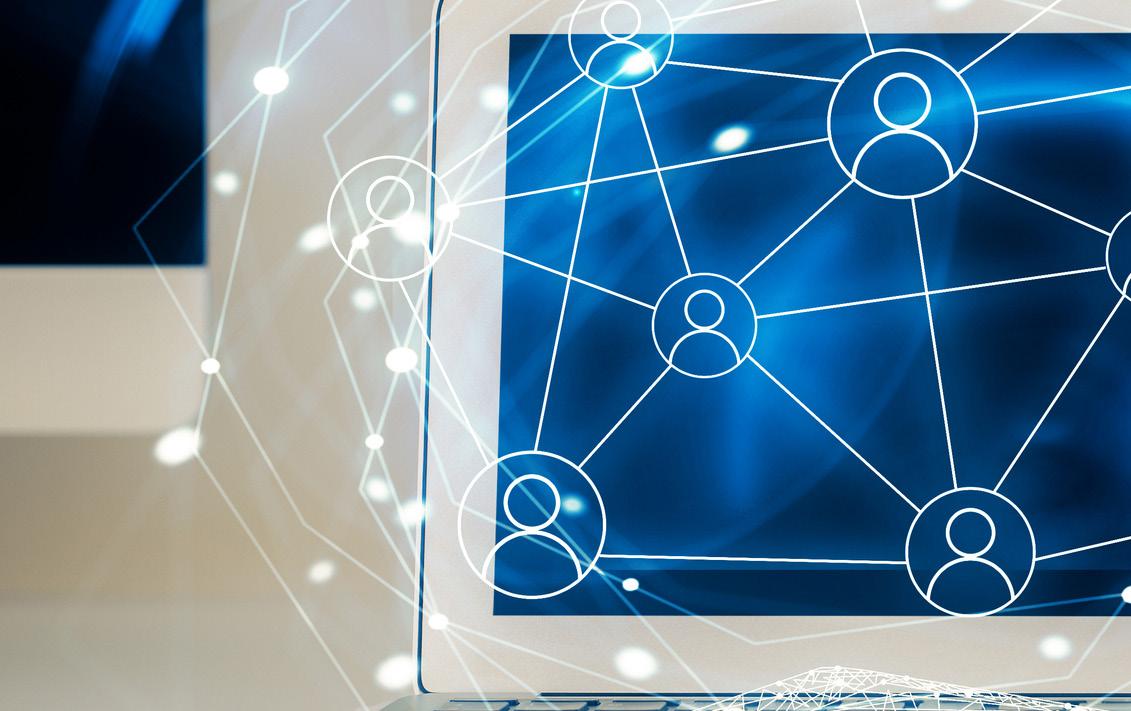
To carry out the teaching-learning process of the Tec21 educational model, starting in 2019, an ecosystem of educational technologies was enabled, with the primary objective of offering students an ecosystem of flexible and personalized learning experiences, as well as offering teachers an integrated space in which to design their teaching experiences,
provide feedback and evaluate evidence that could determine the level of competency achieved. In 2022, 2 strategic initiatives aimed at moving toward the personalization of the teaching-learning process of this ecosystem were implemented, benefiting over 55,000 students and 7,000 teachers.
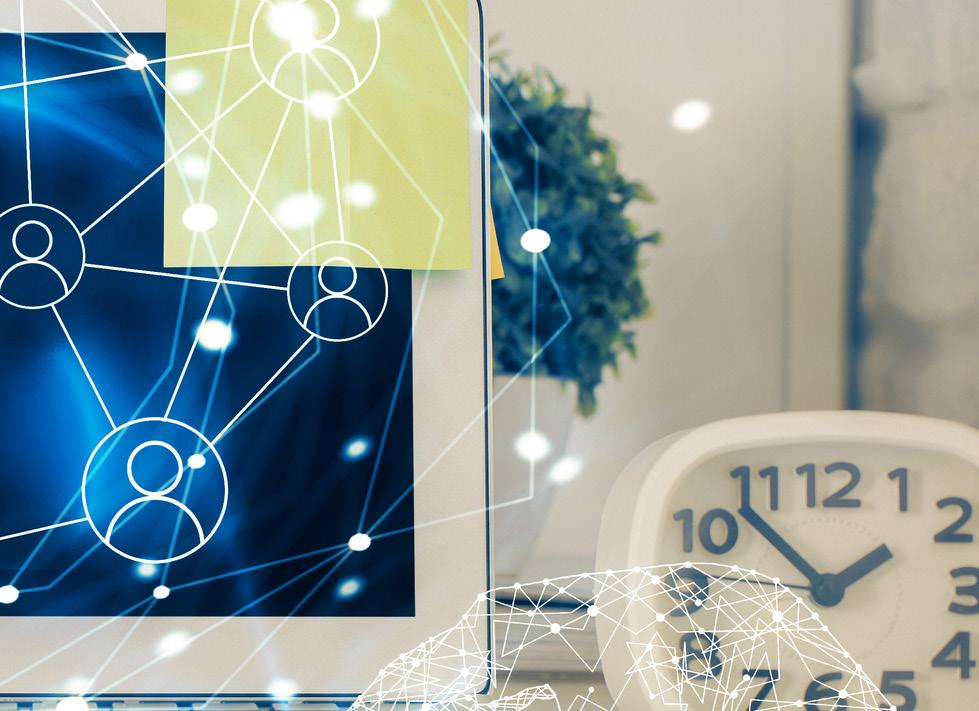
In the summer of 2022, the evolution of the sub-competency assessment model was implemented, ensuring that 100% of the training units could apply the new evaluation scheme; the sub-competency analytics for both teachers and students were also redesigned, and access to the information
The main objectives of this initiative were to enable a lean and agile process to improve the integral experience of sub-competency assessment in the training units and to bring clarity to the student evaluation and feedback by replacing the dichotomous scale with a scale of four degrees of achievement.
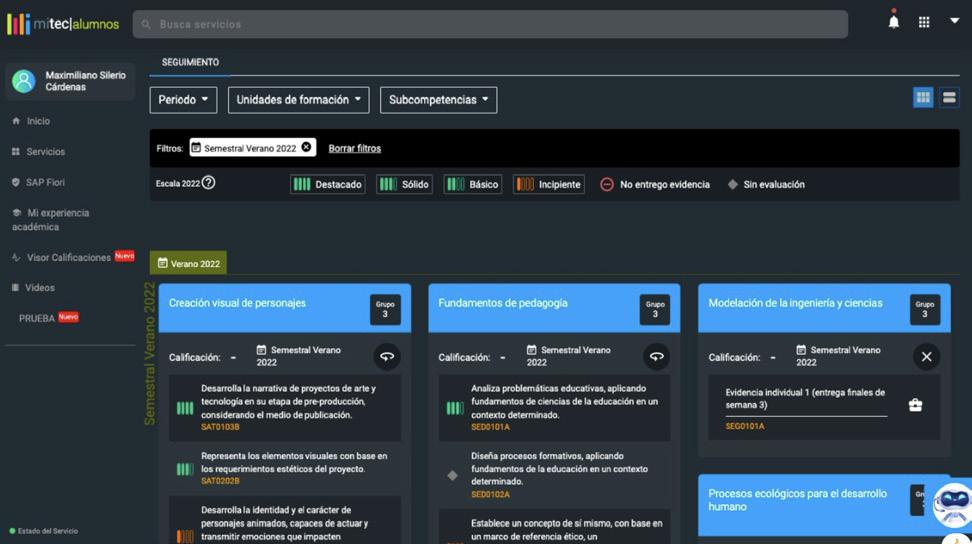
The project Analytics for personalization of learning was launched, which seeks to provide valuable information, establish behavior patterns and generate personalized recommendations for students by leveraging the data generated during the teachinglearning process and using Artificial Intelligence to improve their academic success.
In its first phase, descriptive analytics have been used to identify the progress of the Tec21 competencies in students and academic leaders to provide follow-up to their educational programs. With these analytics, actions were taken to support the development of competencies of 55,000 students of the Tec21 Model.
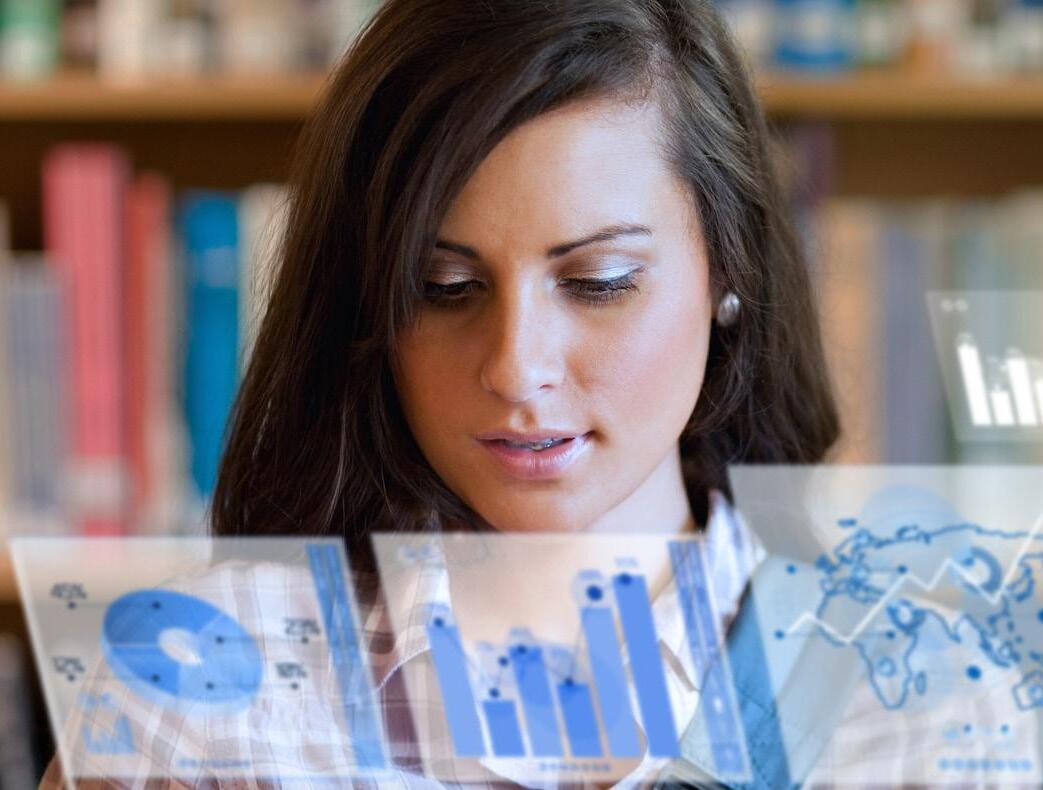
Seguimiento de subcompetencias
Escuela: Inicio
Alumnos Atendidos

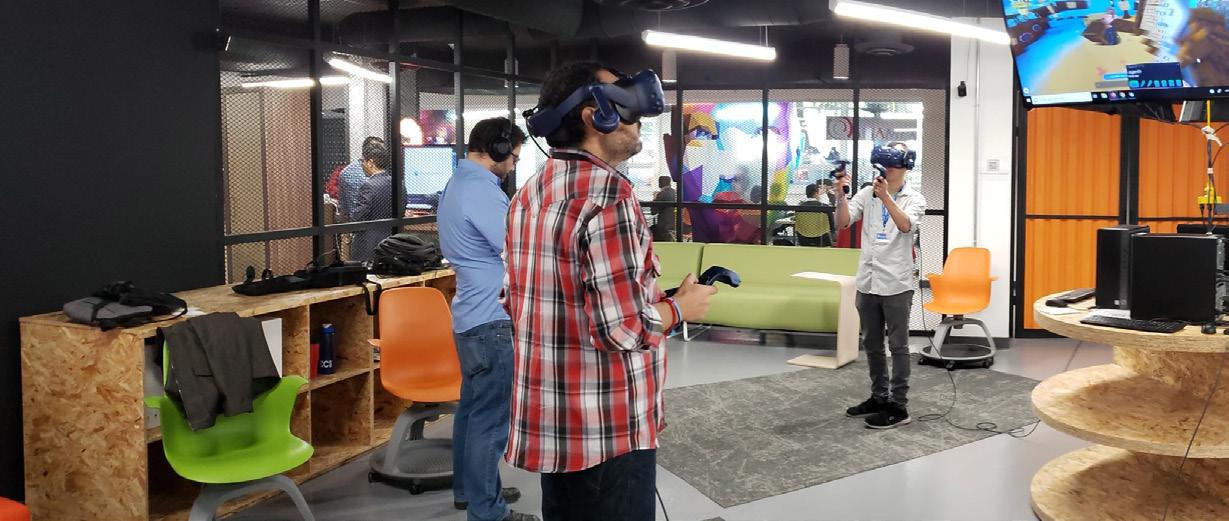
The AIRX classroom aims for students to learn through innovative educational experiences that help ensure, create, and promote academic quality. This space was designed to favor the interaction between teachers and students during immersive classes with simultaneous dynamics. The virtual reality resource is integrated into a reviewable activity, making the student participate in their learning process and impacting the change of the current teaching model.
AIRX classroom in numbers during 2022
2,250 students
24 teachers
21 subjects
16 immersive resources

In 2022, the Hall Immersive Room continued favoring the teacher’s proximity with their students in distance courses, impacting 66 teachers and 5,135 students of undergraduate, graduate, and continuing education levels, as well as over 500 international students from Tecnológico de Monterrey’s partner universities.
As an additional impact, and according to the focus on globalization of the pedagogical model of this learning space, this year, “Diversity in a globalized world” Tec Week was held under an Elite modality, with an internationalization component. Over 500 students from 19 Tecnológico de Monterrey’s
campuses participated, as well as students from the University of Notre Dame, Binus University of Indonesia, Universidad de San Francisco in Quito, Ecuador, and the Pontificia Universidad Católica de Perú, who interacted with national and international experts in the areas of human rights and health economics.
The intensive course held during weeks 6 and 12 of the February-June and AugustDecember 2022 periods integrated multicultural collaboration spaces in which teachers, students, and experts of the various participating universities developed effective communication. By designing digital activities and resources, they motivated students to participate in their learning experience actively.
As an evolution of the Hall Immersive Room, this year version 2.0 was designed in Campus Guadalajara, consisting of a hybrid room for the Business School’s Habitat Project.
Number of training units
Number of scheduled sessions
Number of part icipating teachers
Number of impacted students
Starting in September 2022, the Professor with Hologram Effect classes resumed in 5 campuses (Monterrey, Querétaro, Saltillo, Laguna, and Estado de México), impacting 329 students, 13 teachers, and 7 training units of the undergraduate level.
Also, in June 2022, Tecnológico de Monterrey and Delft University of Technology in the Netherlands signed a collaboration agreement to exchange classes with experts, research, and conferences between both universities by implementing the Professor with Hologram Effect initiative.
The first intercontinental class with hologram effect between the two universities was held
on September 27, with the participation of 2 teachers from the School of Architecture, Art, and Design from Tecnológico de Monterrey’s Querétaro Campus and 1 teacher from the TU Delft’s Department of Urbanism.
The following events with global impact carried out with Professor with Hologram Effect technology stand out:
Keynote lecture with Isabel Allende at Monterrey International Book Fair on October 10, 2022.
Agreement signing. Participation from Juan Pablo Murra, Rector of Undergraduate and Graduate programs, in signing an agreement of research and innovation on cyber-physical learning with Singapore University of
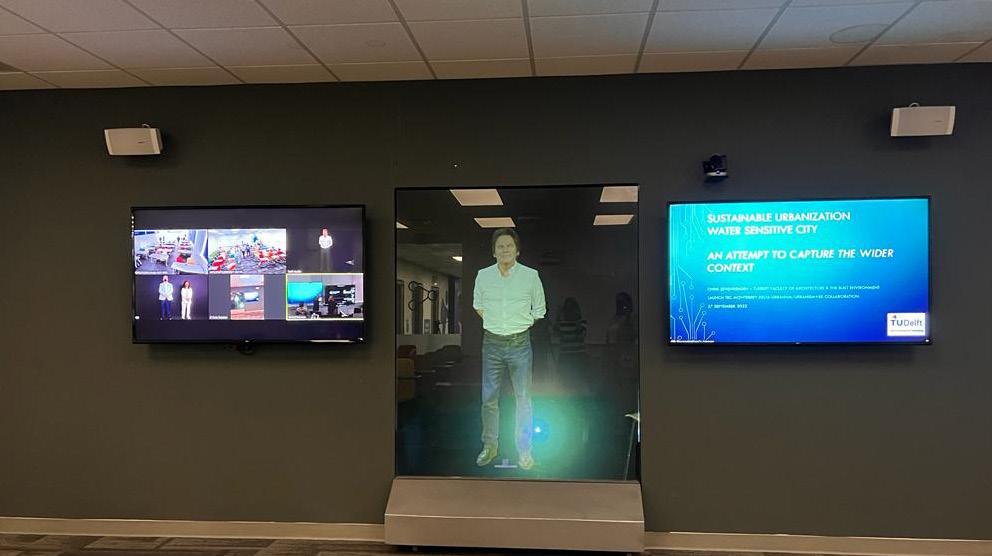
Technology and Design during the National Technology Enhanced Learning event.
Dr. Sergio Fajardo gave the conference “Leadership to change the world” for the Monterrey, Estado de México, Laguna, Saltillo, and Querétaro campuses on November 9, 2022.
International conferences by Tecnológico de Monterrey experts through Professor with Hologram Effect technology.
“Statistics applications: Three research projects,” given by Dr. Elvira Rincón at the Universidad Técnica Particular de Loja, Ecuador, on July 21.
“Educational innovation at Tecnológico de Monterrey,” given by Dr. Joaquín Guerra at PUC Campinas, Brazil, on October 25th.
Professor with Hologram Effect in numbers in 2022
329 students
13 teachers
7 training units
5 campuses
1 foreign university: TU Delft (Netherlands)
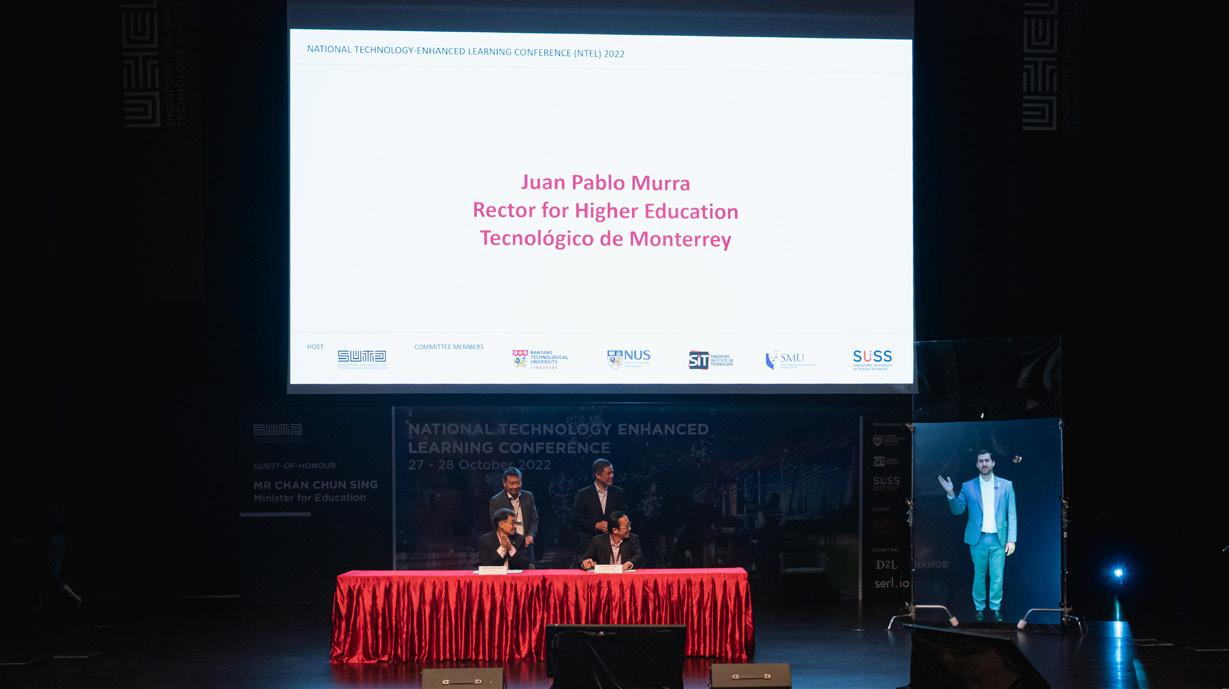
The student’s experience evolves toward development and coexisting alternatives beyond the physical campus. With that in mind, it is necessary to create virtual or hybrid experiences as a new normal, in this way personalizing university life. Tec Virtual Campus, an academic metaverse of Tecnológico de Monterrey, in 2022, has allowed 12,047 students to participate in 148 academic activities, inspiring 258 teachers to train in activity design. These experiences are added to the previous ones in 2021, for 25,758 student attendants to 381 activities to date.
Tec Virtual Campus is a philosophy and not a platform. The lessons learned, the experiences designed, the interactions generated, and the openness of the Tec community to use the metaverse are what is truly valuable. That is preserved and transferred to the appropriate educational technology.
The learning benefits of the use of Tec Virtual Campus are:
Active learning: the students become participant agents of the learning process.
Social presence: allows the creation of spontaneous groups of people with common interests.
Evaluates the experience
Implements the activity

the activity
Gets training with CEDDIE support
Designs activity with a learning objective and a competency to develop
Autonomy: grants the students a sense of independence and decision in their activities.
In January, the first class fully set in the metaverse was taught to students of the Civil Engineering and Architecture programs. The students worked in various spaces according to the pedagogical moments designed by the teacher. Classes were also taught jointly with Latin American institutions such as Universidad Católica de Colombia, Universidad de San Sebastián in Chile, and Universidad Norbert Wiener in Perú.
The academic experience has been joined by the offer of student services such as Tec Services, Tec Media, and Biblioteca Cervantina, which provide attention on a
Tec Virtual Campus in numbers in 2022
12,047 students
148 academic activities
258 teachers
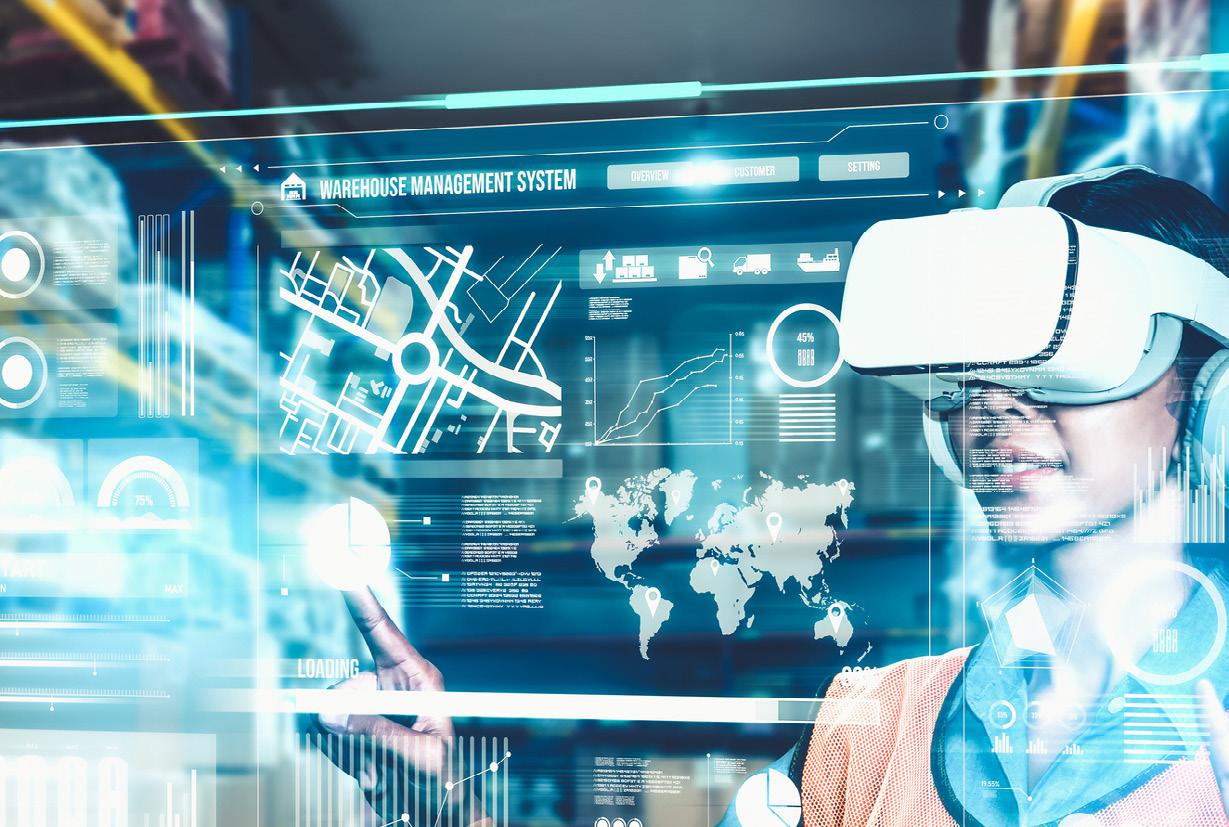
Virtual Reality (VR) Zones are educational spaces with virtual reality technology for immersive learning in campus libraries. In 2022, 4 new VR zones were inaugurated in the Chihuahua, Saltillo, San Luis Potosí, and Toluca campuses, for 11 VR zones (Mexico City, Estado de México, Guadalajara, Monterrey, Puebla, Querétaro, and Santa Fe campuses).
VR Zones in numbers since 2019
+600 academic activities
+43,000 student attendance
+450 teachers implementing activities
11 campuses with VR Zones serving 80% of the students at a national level

Students explore to learn about the technology and contents.
Students study a topic or seek information as part of the research
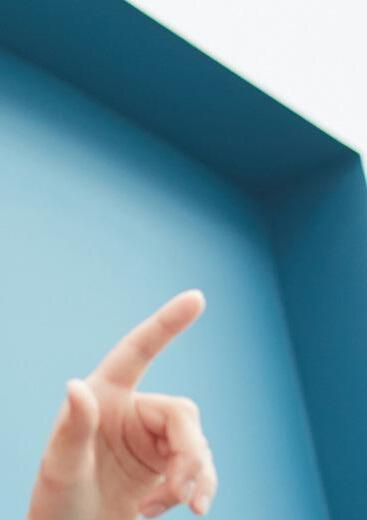
Students carry out an activity or homework designed by their teacher.
The teacher assists during the class with the group to work in teams or explain a topic.








Thanks to the Global Shared Learning (GSL) model, student internationalization allowed educational continuity with international relationships for students and teachers from Tec de Monterrey and its international partner universities. Although there were numerous opportunities for face-to-face internationalization, online internationalization was the most requested variant.
Tecnológico de Monterrey’s leadership and innovation made possible evolving and enriching this model to transform it into the Global Shared Learning initiative, with the GSL Classroom and GSL Week models being a standout. The impact of both GSL models made the institution the recipient of an award from Consortium U21 and was mentioned as a success case in a UNESCO report.
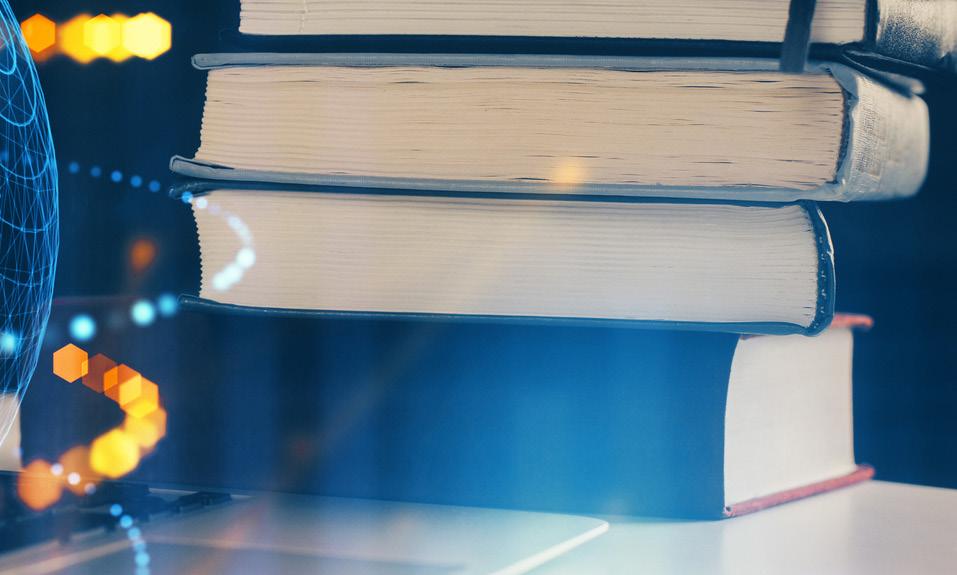
The GSL initiative also offers micro-credentials, this year focusing on Sustainable MicroInternships and Global Citizens, as well as the offer of courses through Virtual Exchange Programs (VEP).
In addition to these opportunities, the doors were also opened to undergraduate and graduate students to participate in virtual international contests.
GSL Classroom
It aims to connect a Tecnológico de Monterrey course with one or more courses from an international partner university in a digital environment. It uses technological tools to connect students in collaborative activities that promote learning in multicultural environments.
151 GSL collaborations Undergraduate courses classroom
It is part of the Tec Week offer for students in the Tec21 educational model in two moments of the academic semester: week 6 and week 12. Tec Week seeks to strengthen the value of a “global vision” while creating an internationalization experience “at home” with significant learning. Two experiences are offered: “Diversity in a globalized world” and “Gender, sexuality, and violence” with international universities through a digital environment.
This year’s highlight was the use of Hall Immersive Room technology for national Tec Week groups, multi-university collaborations, and sustained dialogue tables.
12 GSL Week collaborations
12 international partner universities, from 9 different countries
2,164 students:
1,118 from Tecnológico de Monterrey
1,046 from partner universities
40 teachers:
18 from Tecnológico de Monterrey
22 from partner universities
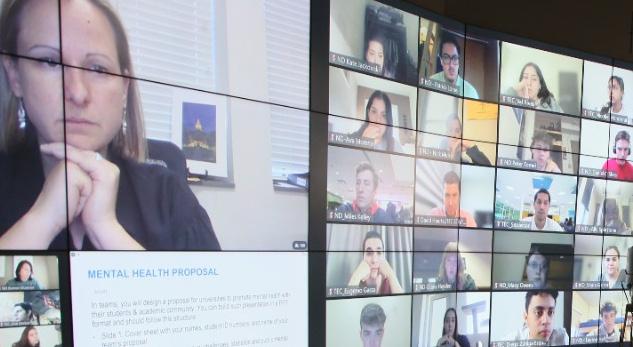
Global Shared Learning Week saw two students from undergraduate programs and a collaborator participating in the Go Global Sustainable Development Goals event held by York University.
During the U21 Educational Innovation Symposium, The Global Shared Learning Classroom model received the U21 Innovation Award.
GSL Classroom and GSL Week were included as virtual mobility success cases in the Virtual Student Mobility UNESCO report
It is a program of virtual professional practices focused on sustainable topics and the design
54 undergraduate Tecnológico de Monterrey students successfully completed the program, obtaining their microcredential from U21 and three points for the International Diploma from Tecnológico de Monterrey.
29 students during the first edition (January 2022)
25 students during the second edition (March-April 2022)
18 countries from partner universities

It is a virtual program focused on promoting student leadership. This program is organized jointly by Universitas21 and the Common Purpose global organization. Students learn to develop ideas, skills, and proposals aligned with sustainable development objectives.
62 undergraduate students from Tecnológico de Monterrey successfully completed the program, obtaining their microcredentials from U21 and three points for the International Diploma from Tecnológico de Monterrey.
20 countries from partner universities

This option offers traditional international experiences in virtual formats in English, such as academic exchanges, study abroad programs, professional internships, research internships, and excellence programs.
For the second consecutive year, a group of undergraduate students was awarded Initiative with the greatest impact in the U21 RISE contest (Real Impact on Society and Environment) (see Conecta article). Graduate students participated in U21 3-Minute Thesis (see pitch in U21) and U21/PwC Innovation Challenge.
Additionally, Chain-ge, the team of Tecnológico de Monterrey, Campus Chiapas students, was one of the six finalists of the Social Ideas Challenge contest organized by eMerge Americas and the Hemispheric University Consortium (see video).


In 2022, the offer of laboratories, software, and digital resources was strengthened to provide students with a quality academic experience, conducive to active and flexible learning. Below are presented the most relevant strategic initiatives of the year.
With learning acquired during the pandemic and keeping in mind the future of the educational models of Tecnológico de Monterrey, where a diversity of teaching modalities is already a reality, a digital
transformation of the delivery experience of the academic software portfolio was designed. This new experience allows teachers and students to access the software anytime, anywhere, and from standard computer equipment; this is how TecDigital Labs was born. Some of the benefits and characteristics of the project are:
Accompaniment: the possibility of accompanying and offering advice to students in real-time.
Flexibility: access at any time and from any place.
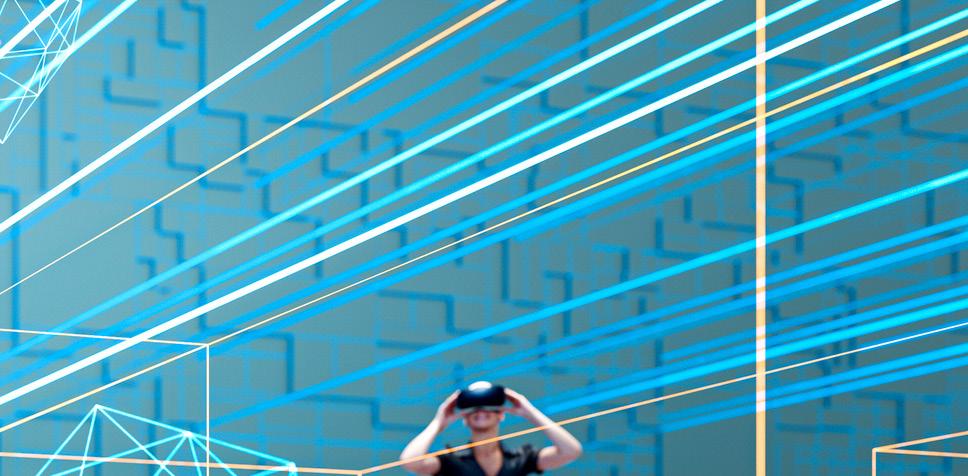
Versatility: support face-to-face, hybrid, and distance models simultaneously.
Analytics: measurement of the use of specialized cloud software for academic and strategic decision-making.
Scalability: the capacity to adapt to the demand of specialized software use according to the course schedule of the period.
Efficiency: savings in computer equipment renovation, adaptations of space, and licensing.
The teacher begins class (face-to-face, hybrid, or online), introduces the topic, and asks the students to access the cloud software.
2. Canvas
Access to the software is performed from the course on Canvas
3. The student opens the app in the cloud from their browser
In the teacher’s browser, in addition to opening the cloud software, a special console appears with the information and monitoring of the group
4. The teacher shares their screen of the cloud software to explain and answer general questions.
5. Students work with the cloud software while the teacher monitors each student’s progress from the console.
6. When a student has a question, the teacher answers it and takes control of the cloud software to help them.
Redistribution of the service
87% in the computer lab
13% in TecDigital Labs
70% in the computer lab
30% in TecDigital Labs
50% in the computer lab
50% in TecDigital Labs
29% in the computer lab
71% in TecDigital Labs 4-year migration plan
Groups with access to TecDigital Labs in the August-December 2022 period
*Data from TecDigital Labs in August-December 2022
Means of delivery of the software Use during class hours
Use outside-of-class hours
Without use metrics
No data available
7X
use of TecDigital Labs vs. Remote Laboratories
The portfolio of academic software in the schools has consolidated as the only catalog of disciplinary applications that support the development of students’ knowledge and competencies to facilitate the design of teachers’ training experiences.
Following an institutional process, the availability of the necessary software is ensured before each academic period, so students and teachers can have all the required resources to teach their training units.
Remote laboratories (VPN)
Cross-referenced with reservations
42 groups reserved (without usage time information available) 3,953 hours
TecDigital Labs
509 groups with 5,137 usage hours 29,652 hours
“Outside of class” is greater than “During class” Students value using the software on the cloud rather than visiting physical laboratories
*Data up to November 11, 2022
295 specialized software applications available
+94,000 students
+10,000 teachers
In 2022, the project “Multiformat Digital Library” was launched, which offers learning content beyond the textbooks that enrich the students’ experience and align with the digital education strategy and the consolidation of the Tec21 Model. Considering there are various learning styles and that there has been an evolution in how students learn and perceive the world around them, the Library seeks to meet those different needs or learning styles through multiformat resources, such as audio, video, immersive, and virtual reality resources, and images.
The Library offers access to 8.2 million volumes in its physical and digital collections, 2.1 million in physical and 6.1 in digital formats.
To support the Tec21 Model, a process was enabled for the academic community that favors the bibliography in a digital format; that is why more than 70% of the declared bibliography was acquired in an electronic format for the February-June and AugustDecember 2022 periods.
The use of the digital library in the last two periods (August-December 2021 and February- June 2022) significantly increased, strengthening the process of academic connection with the National Schools and ensuring the best experience for students and teachers to discover the information resources available to them.
In 2022, the Catalog of Didactic Resources and Strategies (aimed at teachers) and the Catalog of Immersive Resources and Experiences (aimed at students and teachers) were enabled within the library portal; the data is shown in the following tables.
The Catalog of Didactic Resources and Strategies integrates various didactic resources to guide the teacher when designing innovative experiences, whether to define an evaluation strategy, enrich synchronous sessions or redesign a course component. Also available are disciplinary resources such as charts, lectures, and videos, which can be incorporated into a training unit and thus enhance the students’ learning experience.
The Catalog of Immersive Resources and Experiences contains resources in which the learning experience allows students to apply and develop flexible knowledge and competencies in real or virtual environments in an experiential, active, and flexible manner, according to their professional and personal needs.
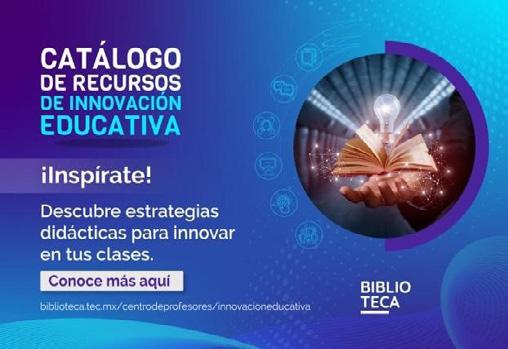
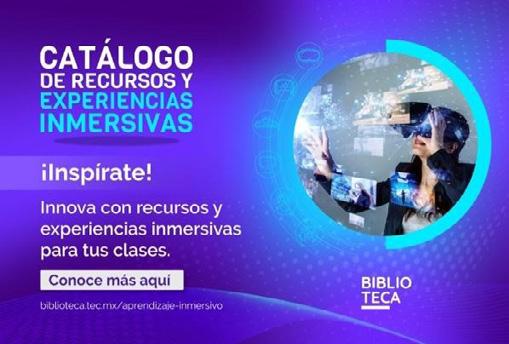

Shared below is the impact of the launch of the new catalogs, reaching more than 8,000 students and teachers.
Impact on a community of teachers and collaborators through the Mitec port al, emails, CEDDIE port als, and Library.
Session to induct and instruct in the use of the resource catalogs
2,092 new users
2,005 recurring users
4,120 sessions
1.78 pages per session
Among all the notable innovations from 2022, the activity “BeLIEvers: Is everything real?” is a standout, a playful and immersive digital learning experience that took place from October 31 to November 4 in an Escape Room format within Tec Virtual Campus as part of the User Instruction service, a student center that offers training courses and sessions, as well as learning resources for students of all academic levels. This year, the center served 14,769 students through 6,694 sessions with a satisfaction score of 90%*.
The objective of this activity was to facilitate the development of information management skills in a complex and
disruptive digital ecosystem and contribute to the strengthening of critical thinking and other transversal competencies such as collaboration and cybernetic culture. In one week, 15 dynamics were carried out in teams of 10 students each; each session lasted 50 minutes. For the activity, 150 students signed up, in addition to the Library team that participated in the design and as game masters, as well as the instructional design from IEAD that guided the activity’s design.
* A 5-level “smiley scale” measures satisfaction; only the two top levels are considered.
The vision of Tecnológico de Monterrey’s Editorial Digital is to be a benchmark of prestige that shares with the world the scientific and cultural knowledge created by Tecnológico de Monterrey’s teachers, students, alumni, and collaborators to face challenges and achieve human flourishing in the intellectual field. With this publishing house, the institution reaffirms its entrepreneurial vocation and commitment to using technology to benefit student learning.
Thanks to a redesign process, during 20212022, Editorial Digital launched four publishing mechanisms that allow co-edition with other commercial publishing houses, such as LID or Tirant Lo Blanch, and with university houses such as UNIANDES and Pontificia Universidad Católica de Chile, among others
In 2022 outstanding works were created, including:
“The corporate startup,” work with licensing rights from Amsterdam.
“Eugenio Garza Sada. Life and Legacy of a Mexican Businessman,” edited in collaboration with the Eugenio Garza Sada Center.
“Creative industries: innovation and entrepreneurship from Latin American women,” the first collaboration with Universidad de los Andes, Colombia.
24 new products published
digital or print
+18 thousand copies
distributed of the 12 1 titles in the catalog
around the world Reaching
+50 countries
+4 thousand users
looked up our publications from the Library catalog
“Son of war, man of peace. Bringing nations together in a divided world”, first Tríada coedition (with Universidad de los Andes and Pontificia Universidad Católica de Chile).
“Research in administrative sciences. Youth in research”, first co-edition with UNAM.
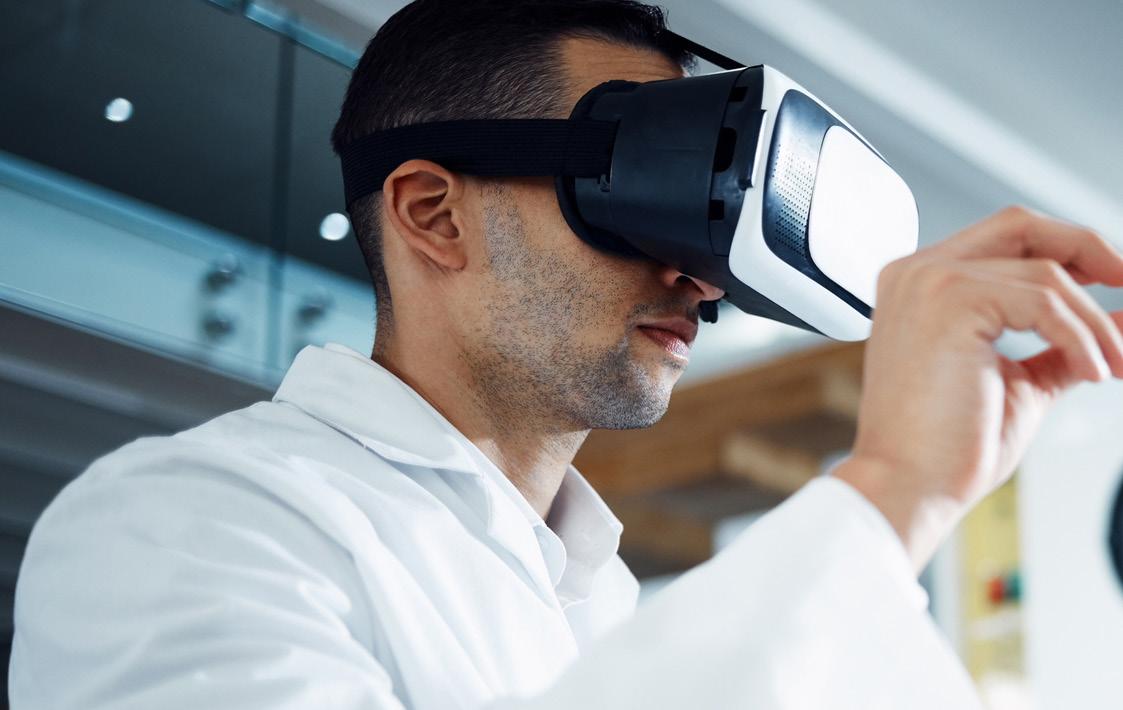





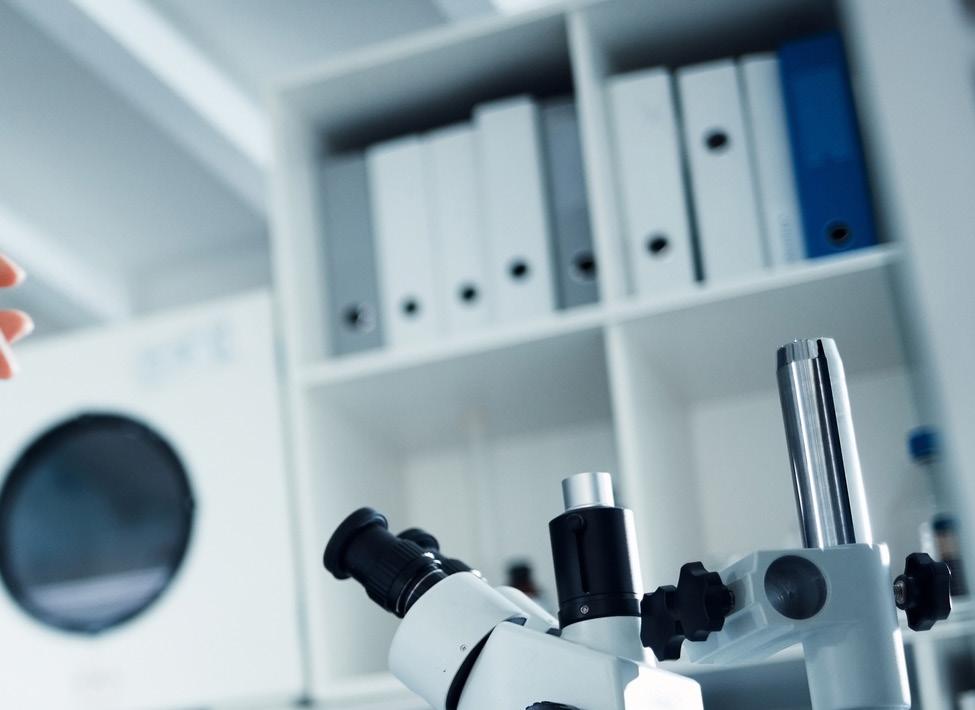
Novus is an initiative from Tecnológico de Monterrey that seeks to strengthen the culture of evidence-based educational innovation in the institution’s faculty. For this, the team is focused on three activities:
Provide funds and methodological support for implementing educational innovations and measuring their impact.
Promote the dissemination, transference, and scaling of Novus projects.
Internationalize educational innovation through indexed publications, conferences, and international contests.
In 2022, 768 teachers from the institution participated by submitting 198 educational innovation proposals. After an evaluation, selection, and review process, 65 projects were selected, which comprise the Novus 2022 generation (+5% vs. 2021), which started in January 2023. The 65 chosen projects * majorly belong to:
Region: 46% Center-South
School: 63% Engineering and Sciences
Educational level: 74% Undergraduate
*For more information about the indicators of the Novus 2022 call, please see Appendix 2
Another highlight of this year was the completion of 50 of the 70 projects of the Novus 2020 generation, surpassing those of the previous year by 15%. The total of scientific publications of these projects is 68, submitted to conferences and high-impact indexed journals, as well as 23 dissemination articles. The impact of these projects amounts to 277 courses and more than 6,000 students. Likewise, the teachers of the 62 projects of the 2021 generation were trained to measure the impact of the educational innovation projects.
Throughout the year, scientific publications were made on the management of Novus projects. The following stand out:
The paper “NOVUS projects: innovative ideas to build new opportunities upon technology-based avenues in Higher Education” by May Iliana Portuguez Castro, Rogelio Vicente Hernández Mendez, and Luis Omar Peña Ortega, published in the
May Iliana Portuguez Castro was presented at the Tenth International Conference on Technological Ecosystems for Enhancing Multiculturality (TEEM 2022) in Salamanca, Spain. It will be published as a book chapter by Springer Publishing.
A study on the “Innovative Teacher Profile,” with over 550 teachers participating in an initiative to identify the main characteristics of the participants in educational innovation processes, as well as the primary benefits to be obtained from such projects.
To learn more about the scientific publications on the management of Novus projects, see the section “Our educational innovation and digital education in the world.”
Additionally, a research project was carried out during the February-June semester in collaboration with students from the Engineering, Design, and Innovation program

The Novus Tríada call continued, a contest for the three universities that make up La Tríada: Pontificia Universidad Católica de Chile, Tecnológico de Monterrey, and Universidad de los Andes Colombia; its objective is to develop and foster the culture of educational innovation based on evidence in Latin America, as well as to strengthen the collaboration between the three institutions to solve common and relevant educational problems in the three universities. The selected projects in 2022 were:
Collaborative learning platform to promote and develop innovative pedagogical practices based on integrating socioscientific controversies with future scenarios.
Citizen laboratory for developing competencies in favor of world citizenship: a Latin American proposal for the return to face-to-face classes.
Open repository of cloud-based practical computer laboratories for STEM education.
For more information regarding the selected projects of the Novus Tríada call, see Appendix 2.
The mentorship process offered to teachers with a Novus project is a personalized accompaniment on experimentation, impact metrics, and implementation methodology. This process supports disseminating the projects results in non-scientific but informative spaces, such as the Observatory of the Institute for the Future of Education, the Novus seminars, and other means of dissemination. It enables a systemization of the processes and a record of progress in technical sheets that share information about them in a digital format.

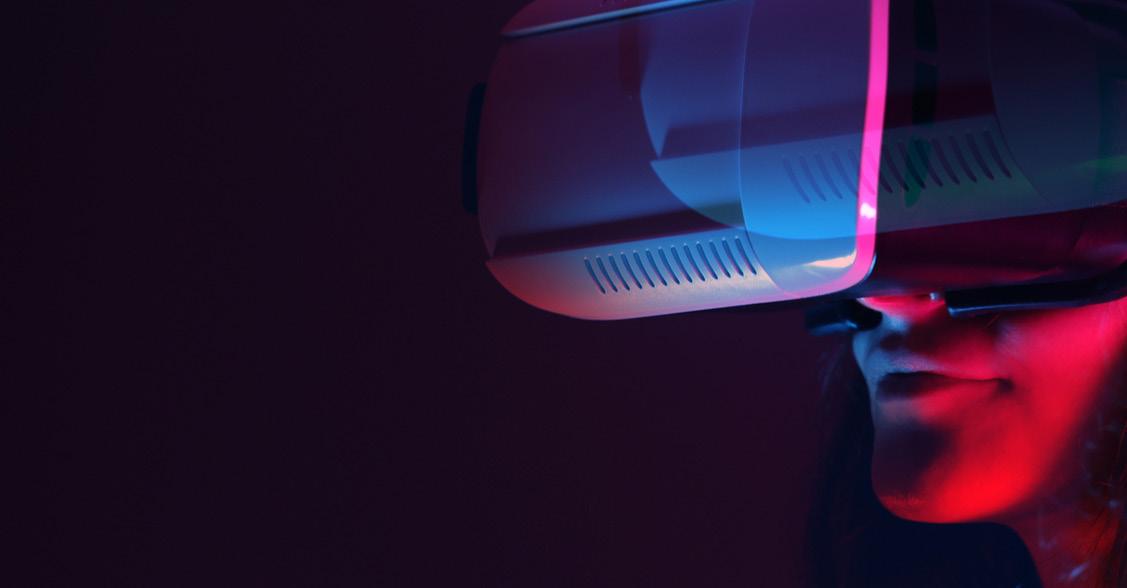
Since its foundation, Tecnológico de Monterrey has been an institution in constant evolution and adoption of educational innovations, pioneering and leading in the use of technology for education and learning experiences.
The design of innovative solutions with cutting-edge technology and digital experiences led to the creation of TecDigital,
whose objective is to integrate and position digital initiatives and projects focused on enriching learning experiences and student experience to increase their impact on Tecnológico de Monterrey.
The initiative integrates experiences in programs, platforms, and spaces, as described below.

Programs and courses with flexibility for students, such as FIT (Flexible, Interactive, and Technological) courses that allow students to take online classes in real-time from wherever they are, on defined days and times; Elite courses that include academic experts as teachers in their learning experience; hybrid courses that combine face-to-face sessions with real-time online sessions; online courses that provide a more autonomous alternative to take classes, with the contents and activities of the subject available digitally, following an established delivery schedule; and the selfdirected courses, focused on high-achieving students, which are distance courses with selfstudy, flexible and self-paced with the support of a teacher and a virtual assistant.
Resources, tools, and technologies that allow students to have an enriched learning toward the future, for example, Digital Library, with collections from publishers and bibliographic collections; VideoLab Tec, a digital space with video resources created by the institution’s experts; and Tec Digital Labs, a new way of experiencing remote laboratories at any time and from any location, an evolution of the experience that is currently lived in physical laboratories, moving the use of specialized software to the cloud.
Physical and digital spaces to develop the maximum potential of students and teachers, such as: VR Zones, physical areas within the libraries of each campus, where teachers and students access support resources for their learning through virtual reality; Mostla, a learning space where teachers and students can learn about emerging technologies and experiment with them to innovate in
their discipline; Hall Immersive Room (HIR), designed for the teaching and transmission of virtual courses, HIR integrates video technology, communication and artificial intelligence to break the barriers of distance and improve the relationship between students and teachers; Professor with Hologram Effect room, physical space for two-dimensional projection; EVA rooms, physical areas that provide a comfortable environment, isolated from noise to ensure greater concentration
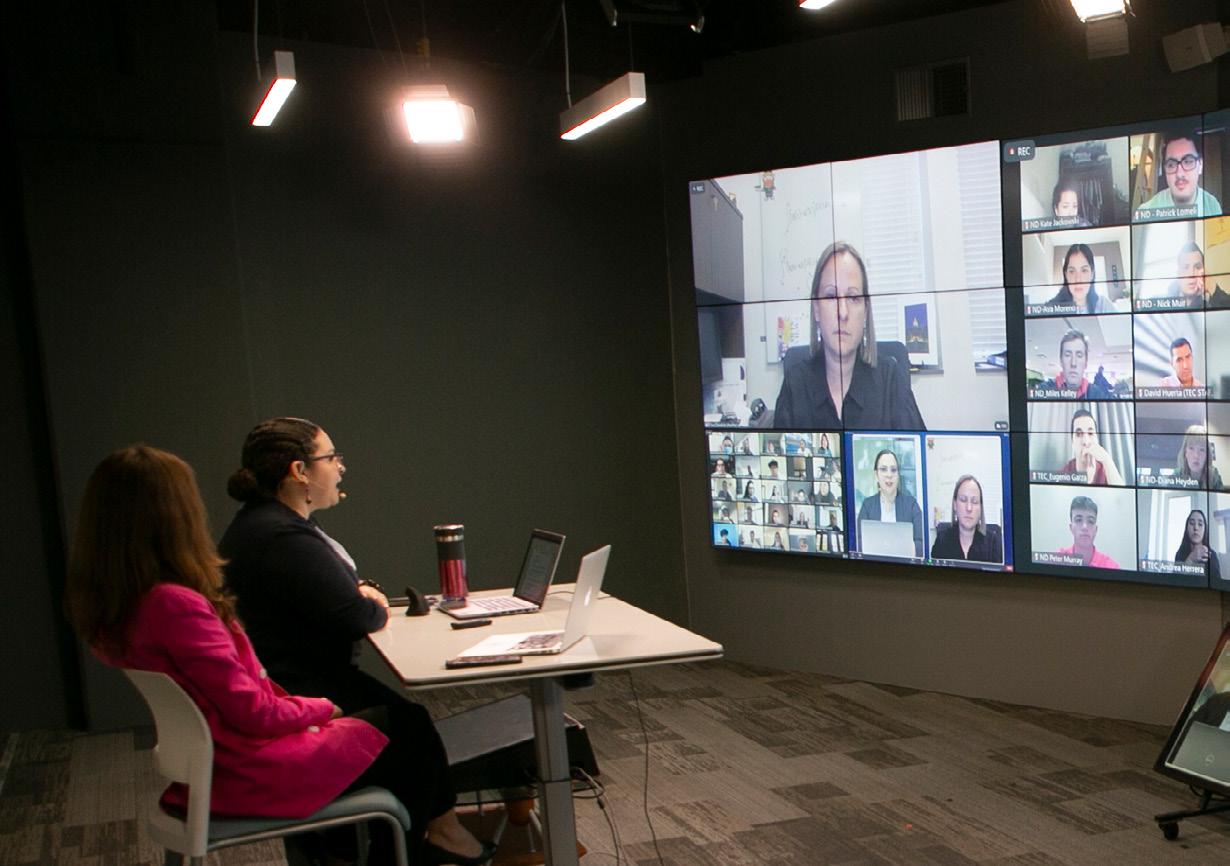
and better interaction with students; AIR Classroom (Remote Interaction Classroom); Hybrid Classroom, spaces equipped for hybrid attendance that enable simultaneous teaching experiences: half of the group are with the teacher in the room and the other half takes the class remotely, both audiences being able to interact with each other.
Regarding emerging spaces, TecDigital Spaces include XR-Room, an area where teachers and
students can interact through emerging virtual reality technologies to explore their application in the creation of innovative solutions for the development of their projects, as well as Tec Virtual Campus, a digital space that includes buildings such as the library, classrooms, auditorium, and outdoor areas where students can have learning experiences within the metaverse.
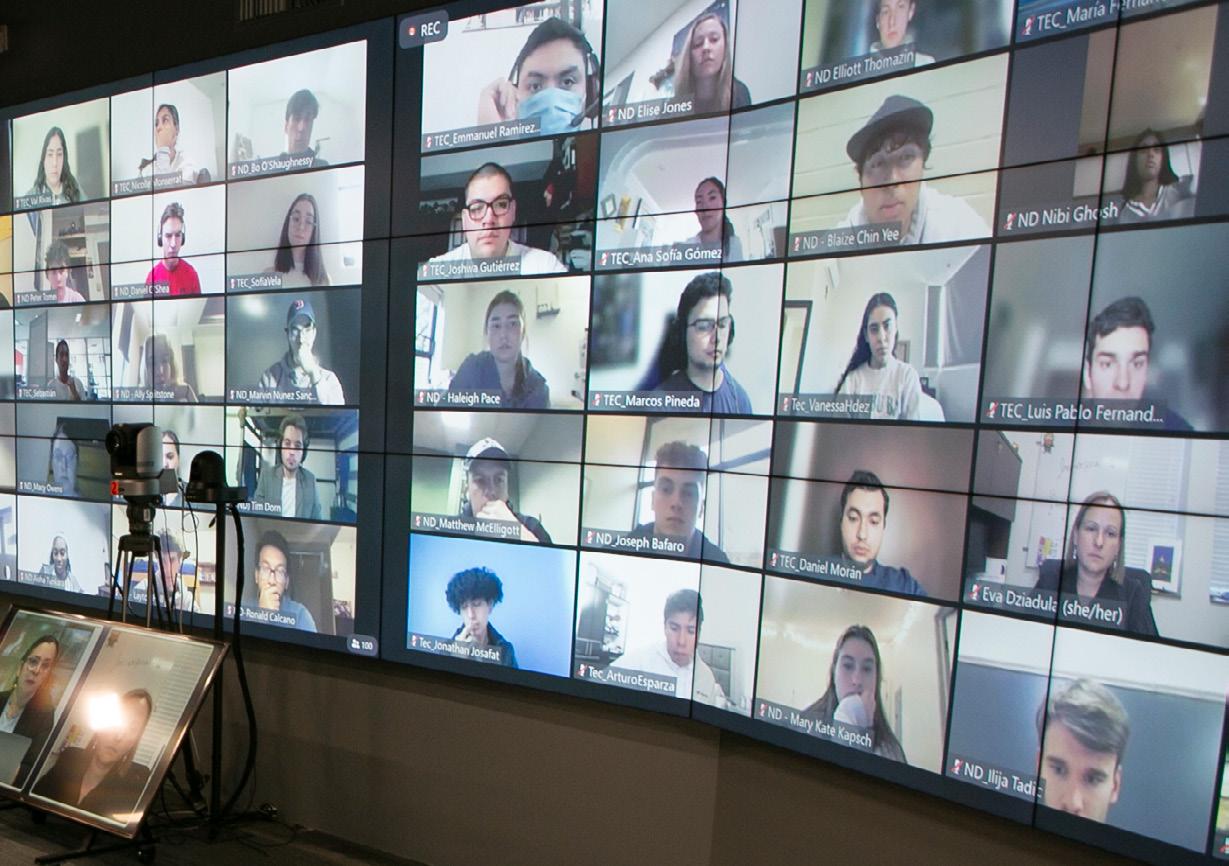
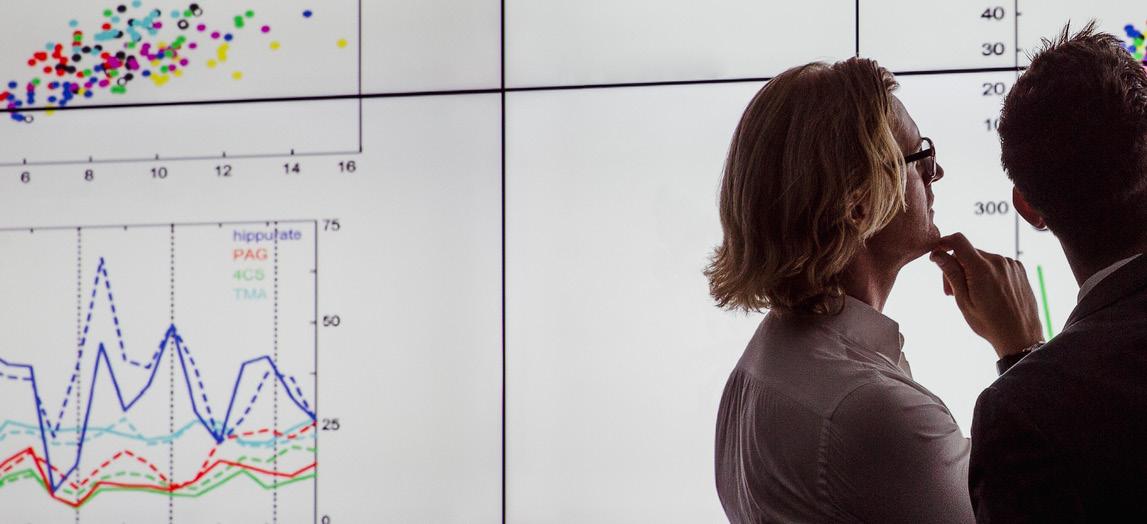
The Observatory of the Institute for the Future of Education is a unit of the Institute for the Future of Education of Tecnológico de Monterrey that promotes the analysis and dissemination of the educational trends and innovative pedagogical experiences that are shaping the teaching of the future for higher education and lifelong learning. Its website (observatorio.tec.mx) offers worldclass teachers and professionals several
open educational resources to promote the availability of didactic literature free of charge, such as articles, weekly newsletter, interviews, webinars, talk sessions, podcasts, and detailed reports.
In 2022, the IFE English and Spanish websites underwent a complete redesign to improve the browsing experience and content search and to make it more user-friendly.

Observatory IFE website in numbers from 2014 to 2022:
Pageviews: 20.3M (+4.0M vs. 2021)
Users: 11.3M (+2.5M vs. 2021)
Subscribers: 225,000
Social networks followers: 500,000
Average reading time: 5:00 minutes in Spanish and 4:38 minutes in English
Among the notable achievements in 2022, we can highlight the production of 7 educational innovation podcasts with outstanding women in the global educational field on topics of educational innovation, education access, the state of education post-pandemic in Latin America and the world, and equality in the workplace; the broadcast of 8 webinars and panels in collaboration with Universidad
Oberta de Catalunya and Pontificia Universidad Católica del Perú; and partnership also continued with national universities (UNAM, IBERO, UdeG, U Anáhuac, BUAP, UANL, IPN, and UAM) as part of the Educational Innovation 360 Network.
Our educational innovation and digital education in the world


In 2022, Tecnológico de Monterrey consolidated its strategy for creating new knowledge through research, educational certification, and participation in international contests with several projects made by teachers and multidisciplinary teams.
Below are shown the results obtained:
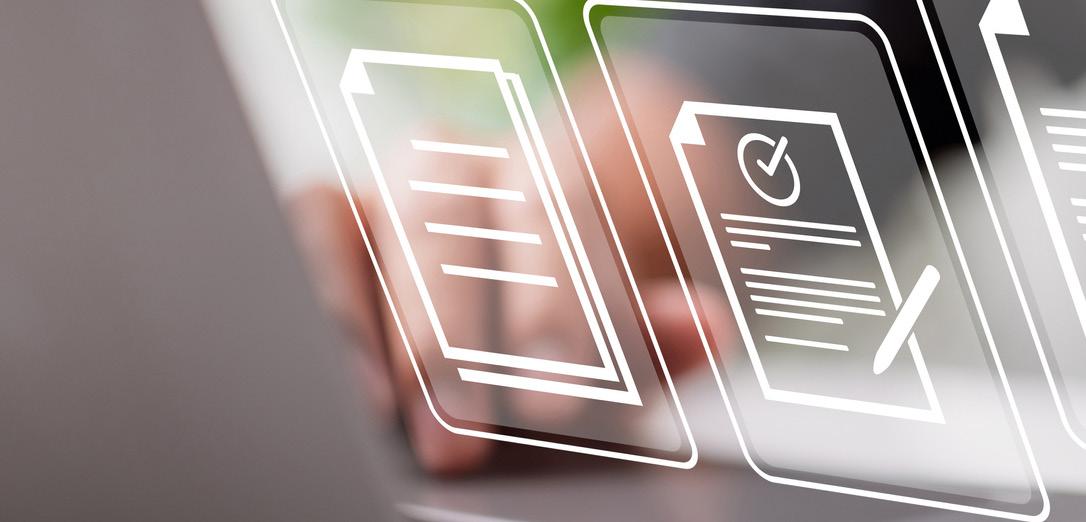
In 2022, Continuing Education obtained the Certification in agile project management skills from Quality Matters (QM), a leading global organization in quality assurance in digital and innovative online teaching and learning environments.
In 2022, there was a significant production of articles disseminated through indexed journals, book chapters, and international digital media. These are the results obtained:
Articles in indexed publications: 11
Book chapters: 2
Articles in educational dissemination journals: 7
Articles in THE Campus: 37
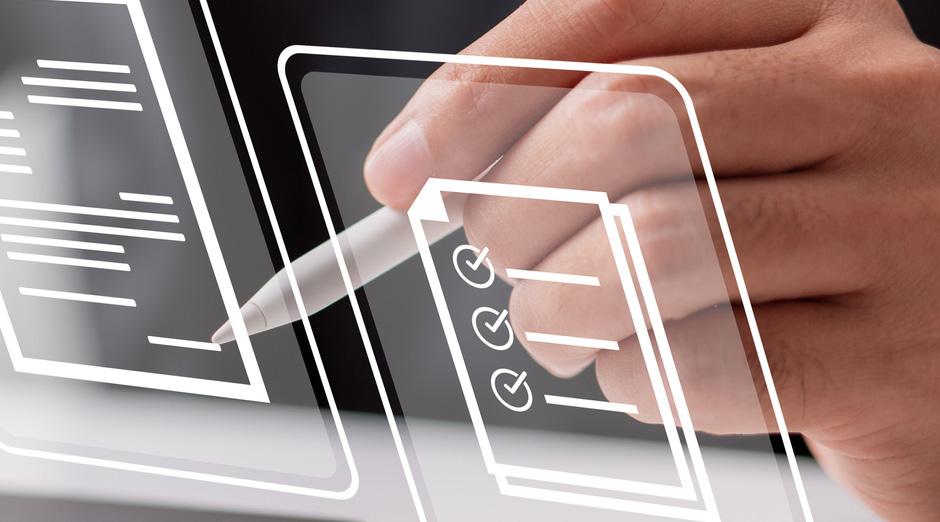
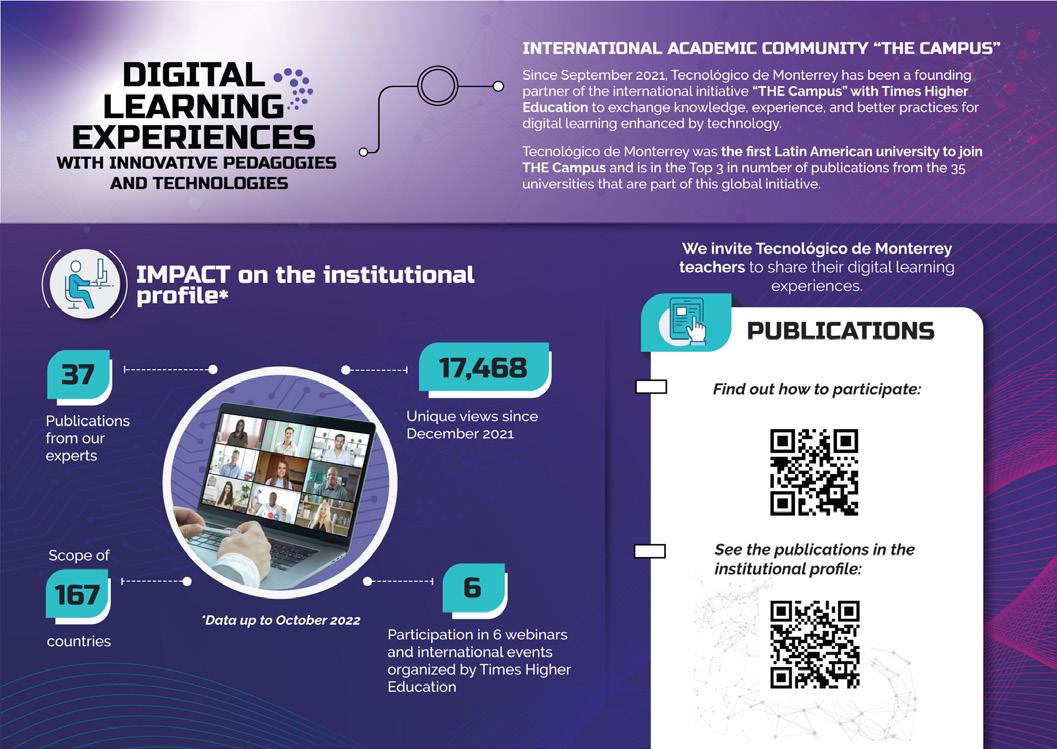
Besides publications, there were other efforts regarding research on accreditations and other awards in the context of educational innovation and digital education.

In 2022, relevant actors of the international education community recognized the work carried out in the institution on educational innovation and digital learning. These were the awards obtained:
Quality Matters
Category: ‘Outstanding Impact by a NonU.S. Higher Education Organization’
Project: ‘Quality Matters: Making a Difference for Students’
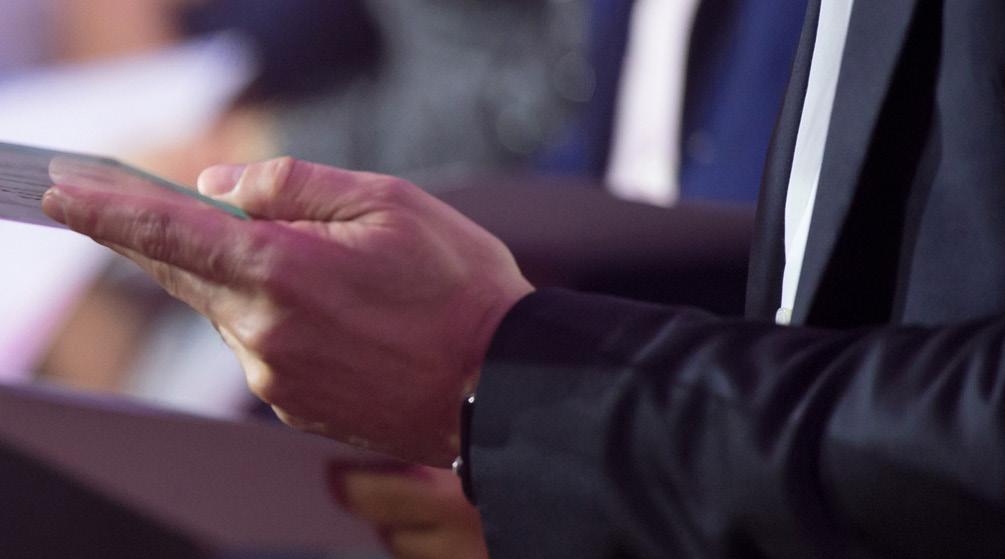
Reimagine Education Awards 2022
Reimagine Education is a global conference and competition open to educational innovators from around the world.
Category: Innovation in Business Education Award
Award: Bronze
Project: Entrepreneurship Program Innovation Project: The Experience Journey
Reimagine Education Regional Awards 2022
Category: Sustainability Education Award Award: Silver
Project: SOSTEK: Promoting Sustainable Development in Higher Education
Shortlist project: ‘A new way to practice and develop highly valuated skills by industry; the aid of immersive experiences in higher education engineering courses’
Virtual Educa
Virtual Educa was created in 2001 to promote educational innovation to favor social transformation and sustainable development, especially in Latin America and the Caribbean.
Award: “José María Antón” for educational innovation
Special mention: ‘Escape room: future exploration’
The references to these awards and articles can be found in the Appendices section, Appendix 3. Place the cursor on the DOI link or its corresponding hyperlink to go to the peer-reviewed articles. To find the dissemination articles from THE Campus, click here.


This publication was created by the Directorate of Educational Innovation and Digital Learning of the Vice-Rectory of Educational Innovation and Academic Regulations of Tecnológico de Monterrey.
Vice-Rectory for Academic Affairs and Innovational Education: Joaquín Alejandro Guerra Achem
Directorate of Educational Innovation and Digital Learning: Elsa Beatriz Palacios Corral
Directorate of Digital Learning: Maribell Reyes Millán
Directorate of Innovation of Learning Experiences: Laura Patricia Aldape Valdés
Content editors: Carolina Ramírez García, Mónica Francesca Contrino, Martha María Barba Hernández, Daniel Cantú González, Verónica Alejandra Pérez Aguirre
Data strategy: Silvia Catalina Farías Gaytán, Carmen Verónica Ortiz Torres, Neidy Araceli Torres Zuñiga
Graphic design: Lucía Elizabeth Villanueva Vázquez
Editing and proofreading: Perla Téllez Garza
Coordination: Norma Angélica Lara Uribe, Juan David Jasso Zermeño, Ana Margarita Fuster
Montiel

For their valuable participation in the development of content, edition, and creation of the report, we would like to thank:
Abigail Selene López Pérez
Adriana Gabriela Gámez Garza
Alejandro Alfonso Poiré Romero
Amairani Concepción Castañón Zárate
Ana Gabriela Pérez Cantú
Ana Gabriela Rodríguez Mendoza
Ariadna Bozada Cuesta
Armando Wilfredo Morales Guerrero
Beatriz Meléndez Venancio
Bertha Alicia Saldívar Barboza
Carla Victoria Ramírez López
Cecilia Ivonne Rico Arenívar
Dan Beltsasar Alonso Hernández
Dora Elizabeth García Olivier
Esteban Venegas Villanueva
Fernanda Montserrat Mesta Pichardo
Francisco Javier Rosales Pineda
Gisselle Morales Veloquio
Hilda Rubí Monsivais Peña
Homero Domínguez Perales

Hugo Luis López Coronel
Irving Hidrogo Montemayor
Jorge Alfonso Rodríguez Tort
Jorge Blando Martínez
Jorge Eugenio Valdez García
José Antonio González Orta
José Antonio Rentería Salcedo
José Luis Mata Fernández
José Vladimir Burgos Aguilar
José Rafael López Islas
Juan Pablo Nigenda Álvarez
Judith Aurora Ruiz Godoy
Laura Esther Zapata Cantú
Leticia Castaño Sánchez
Luis Omar Peña Ortega
Ma. Elena Vázquez Lira
Manuel Indalecio Zertuche Guerra
Marcela Ivonne Rodríguez Rodríguez
María del Carmen Pámanes Fernández
María Eloísa Pérez González
Mariana Aguilar Vásquez
Mark Williams Wood Caballero
May Iliana Portuguez Castro
Miguel Ángel Nájera
Mónica Arreola Flores
Myriam Villarreal Rodríguez
Rebeca Elizabeth Alvarado Ramírez
Ricardo Gutiérrez Mercado
Roberto Iñiguez Flores
Rogelio Vicente Hernández Méndez
Sadie Lissette Guerrero Solís
Sandra Dennis Núñez Daruich
Wendy Lorena Páez Garza
Yedida Betzabé López Membrila
We also wish to offer a special acknowledgment to the teachers that enriched their practice through digital experiences, as well as to all those areas that facilitated the definition, design, development, and deployment of the projects successfully implemented, always to ensure the best experiences that provide value to our students’ learning during their student life.



School of Sciences and Government
Distance programs
MAP-V (T) Master in Public Administration and Public Policy
MDP-V (T) Master in Law
MGP-V (T) Master in Public Management
MPE-V (T) Master in Prospective and Strategic Studies
School of Humanities and Education
Distance programs
MEE-V (S) Master in Education
MHD-V (T) Master in Digital Humanities
MTE-V (S) Master in Educational Technology
MTO-V (T) Master in Education Entrepreneurship
School of Engineering and Science
Distance programs
MER-V (T) Master in Energy Management and Renewable Sources
MIP-V (T) Master in Engineering with specialization in Quality Systems and Productivity
MID-V (T) Master in Innovation for Enterprise Development
MNA-V (T) Master in Applied Artificial Intelligence (April 2022)
MTI-V (T) Master in Information Technology Management
ENA Specialization in Applied Artificial Intelligence (April 2022)
Business School
Distance programs
MAF-V (T) Master in Finance
MBA-V (T) Master in Business Administration
MBM-V (T) Business Management
MGN-V (T) Master in Enterprise Administration
V. Institutional initiatives and innovative digital experience drivers
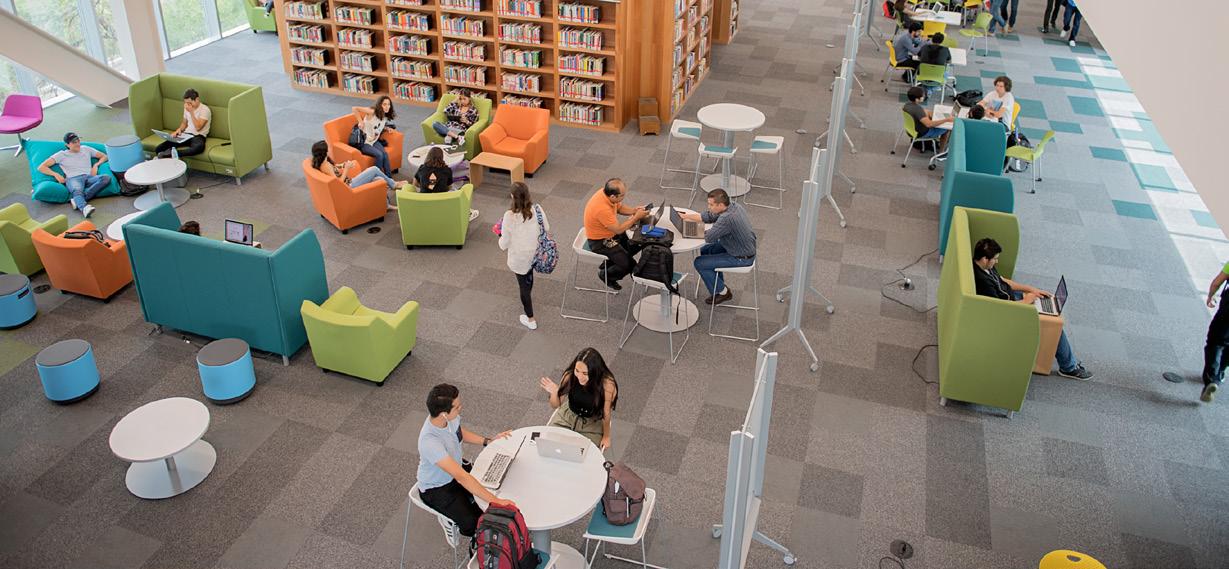
The objective of Novus is to promote experimentation and research on innovational education as a means for the professional development of the faculty, the continuous improvement of their teaching practice, and the construction of the future of education.
After evaluating, selecting, and reviewing the submitted projects to the Novus Call 2022, 65 initiatives were selected for the Novus 2022 generation, which started in January 2023. Below are shown some of its indicators:
Distribution of projects selected by region
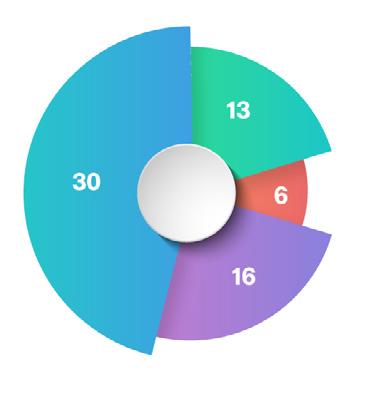

 Ciudad de México Monterrey Occidente Centro/Sur
Ciudad de México Monterrey Occidente Centro/Sur
Distribution of projects selected by school
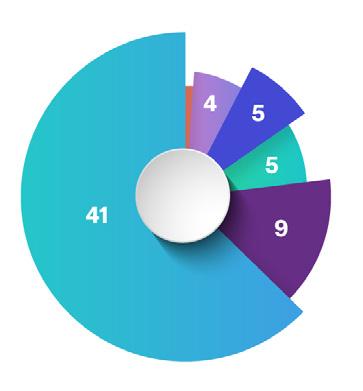

Student Leadership and Training
School of Humanities and Education
Business School
High School
School of Architecture and Design
School of Engineering and Sciences
Distribution of projects selected by education level
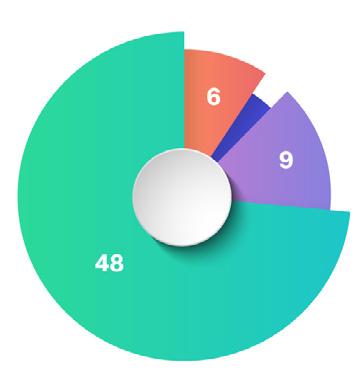


High School - Undergraduate
High School
Undergraduate - Graduate
Undergraduate
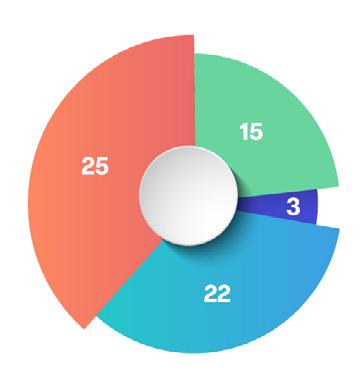

Transference of educational innovation
Evaluation of learning or development

Preparation for the future
Digital transformation of education
Flexible learning
Project-oriented learning
Mentoring
Flipped learning
Adaptive learning
Game-based learning
Problem-based learning
Research-based learning Challenge-based learning
learning
Novus Triada Call 2022 – Selected projects
Collaborative learning platform for promoting and developing innovative pedagogical practices based on integrating socio-scientific controversies with future scenarios.
In the field of education, the team made up of Mario Quintanilla, academic of the Faculty of Education of the Pontificia Universidad Católica de Chile and director of the GRECIA-
UC Laboratory; Juan Manuel Fernández, teacher and director of the Master’s in
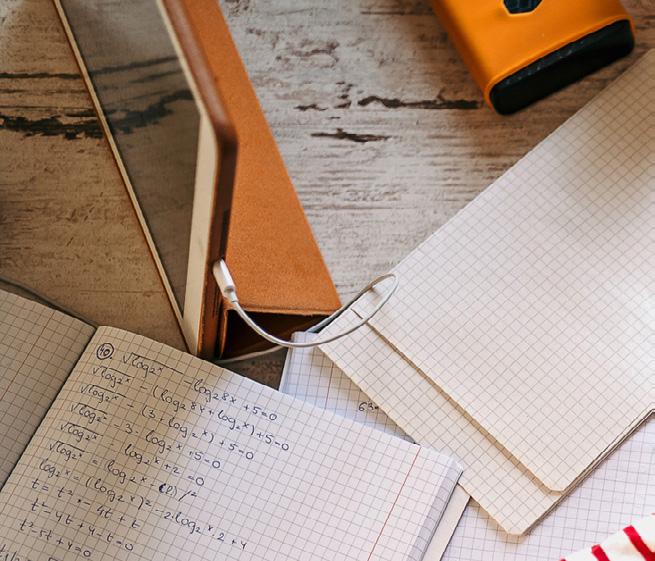
Citizen laboratory for developing skills in favor of global citizenship: a Latin American proposal for the return to faceto-face.
Also, in the area of education, the team led by Patricia Imbarack, professor from the Faculty of Education at Pontificia Universidad Católica de Chile, Ivón Aída Cepeda Mayorga from Tecnológico de Monterrey, and Irma Alicia Flores from Universidad de los Andes in Colombia, proposed to carry out a citizen laboratory to strengthen the training for world citizenship in students of the Tríada universities, in the context of a return to faceto-face, to be carried out between August 2022 and August 2023.
Open repository of practical cloud computing labs for STEM education.
The third winning initiative was an open repository of practical cloud computing labs for STEM education. This project, which could benefit more than 800 students, was led by César Ramírez, a professor at the Institute of Biological and Medical Engineering of Pontificia Universidad Católica de Chile, and María de los Ángeles Domínguez, associate dean of the Faculty of Medicine and Health Sciences of Tecnológico de Monterrey, and Andrés Fernando González, director and associate professor of the Department of Chemical and Food Engineering at Universidad de los Andes.

VI. Our educational innovation and digital education in the world

Articles in indexed journals
Aguilar-Mejía, J.R., Tejeda, S., Ramirez-Lopez, C.V., Garay-Rondero, C.L. (2022). Design and Use of a Chatbot for Learning Selected Topics of Physics. In: Hosseini, S., Peluffo, D.H., Nganji, J., Arrona-Palacios, A. (eds) TechnologyEnabled Innovations in Education. Transactions on Computer Systems and Networks. Springer, Singapore https://doi.org/10.1007/978-981-193383-7_13
C. A. Glez Almaguer, A. C. Aguirre Acosta and O. R. Román Jímenez, ““Wow” Experience with Immersive Reality: Gamification in the Tec Virtual Campus,”. 2021 Machine LearningDriven Digital Technologies for Educational Innovation Workshop, 2021, pp. 1-6, doi: 10.1109/ IEEECONF53024.2021.9733757.
Chamorro-Urroz, C. D., Mosqueda-Benavides, J. A., & Membrillo-Hernandez, J. (2021). Selfregulation and Other Learning Dimensions in Hybrid Courses: Which Characteristics Matter in Academic Performance?. Journal of E-Learning Research, 1(2), 22–31. https://doi.org/10.33422/ jelr.v1i2.55
Gándara, G., Rodríguez, AG., Aldape, P. (2022, Julio 6). Welcome to UR, Athens and Pompeii: A travel Time as an Educational Innovation to transform Citizenship and Democracy Learning Revista educativa Edulearn https://library.iated. org/view/GANDARA2022WEL
Hernandez Cardenas, L. S., Castano, L., Cruz Guzman, C., & Nigenda Alvarez, J. P. (2022). Personalised learning model for academic leveling and improvement in higher education. Australasian Journal of Educational Technology, 38(2), 70–82. https://doi.org/10.14742/ ajet.7084
L. D. Glasserman-Morales, J. A. Ruiz-Ramírez and F. J. Rocha Estrada, “Transforming Higher Education Using WebVR: A Case Study,” in IEEE Revista Iberoamericana de Tecnologias del Aprendizaje, vol. 17, no. 3, pp. 230-234, Aug. 2022, doi: 10.1109/RITA.2022.3191257.
Molina, C., Ramirez-Vasquez, N., & CortezMarquez, R. E. (n.d.). Learning to escape or escaping to have fun: Do educational escape rooms positively impact students’ performance in Business Higher Education? European Conference on Games Based Learning. Retrieved December 12, 2022, from https://papers. academic-conferences.org/index.php/ecgbl/ article/view/685
Ramírez-Montoya, María-Soledad, GonzálezPadrón José-Guadalupe. Arquitectura de horizontes en emprendimiento social: innovación con tecnologías emergentes. Texto Livre: Linguagem e Tecnologia [en linea]. 2022, 15( ), 1-16[fecha de Consulta 14 de Diciembre de 2022]. ISSN: Disponible en: https://www. redalyc.org/articulo.oa?id=577170677001
Rocha Estrada FJ, Ruiz-Ramírez JA, GeorgeReyes CE and Glasserman-Morales LD (2022) Evaluation of a Virtual Campus Adapted to WebBased Virtual Reality Spaces: Assessments of Teachers and Students. Front. Educ.7.918125. doi: 10.3389/feduc.2022.918125
Portuguez-Castro, M. 2022. Mentoring in educational innovation: systematization in the experience of teachers’ educational experimentation and research. DOI:10.13140/ RG.2.2.30436.04484/1 In the Tenth International Conference on Technological Ecosystems for Enhancing Multiculturality (TEEM ‘22). Salamanca, Spain.
Portuguez-Castro M, Hernández-Méndez RV, Peña-Ortega LO. Novus Projects: Innovative Ideas to Build New Opportunities upon Technology-Based Avenues in Higher Education. Education Sciences. 2022; 12(10):695. https:// doi.org/10.3390/educsci12100695
Book chapters
Chaparro Obregón, María & Herrera, José & Turrubiates, Miriam & Olivares, Silvia. (2022). Teaching Clinical Skills During Pandemic Times: Online Clinical Simulation. 10.4018/978-1-79988783-6.ch013.
L. Zepeda, L. Quilantán, J. Herrera, M. González, G. Sánchez (2022) THINKING OUTSIDE AND INSIDE THE CLASSROOM: DESIGN THINKING WORKSHOP UNDER A HYBRID MODEL, INTED2022 Proceedings, pp. 48694875. doi: 10.21125/inted.2022.1272
Alvarado Ramírez, R. (2022). Top tips for establishing close relationships with students online. THE Campus Learn, Share, Connect. Retrieved November 28, from https://www. timeshighereducation.com/campus/top-tipsestablishing-close-relationships-studentsonline
Aguirre - Acosta, A. (2022) Awaken your students’ interest in your online course, THE Campus Learn, Share, Connect. Retrieved November 28, 2022, from https://www. timeshighereducation.com/campus/awakenyour-students-interest-your-online-course-
Benavente, B., & Murrieta, E. (2022, November 17). Things to consider when designing a selfdirected course model. THE Campus Learn, Share, Connect. Retrieved November 28, 2022, from https://www.timeshighereducation.com/ campus/things-consider-when-designingselfdirected-course-model
Benavides, I. (2022) Six tips on helping your students improve their teamwork skills, THE Campus Learn, Share, Connect. Retrieved November 28, 2022, from https://www. timeshighereducation.com/campus/sixtips-helping-your-students-improve-theirteamwork-skills
Benavides, I., & Molina, A. (2022, November 17). Tips for organising and Optimising Your Inbox and messaging apps. THE Campus Learn, Share, Connect. Retrieved December 6, 2022, from https://www.timeshighereducation.com/ campus/tips-organising-and-optimising-yourinbox-and-messaging-apps
Benavides, J., & Benavides, J. (2022, December 1). An introduction to microlearning. THE Campus Learn, Share, Connect. Retrieved December 6, 2022, from https://www.timeshighereducation. com/campus/introduction-microlearning
Burgos, V. (2022, November 17). Covid-19 showed that the academic library requires digital evolution. THE Campus Learn, Share, Connect. Retrieved November 28, 2022, from https:// www.timeshighereducation.com/campus/ covid19-showed-academic-library-requiresdigital-evolution
Cáceres, V. (2022) Instructional designers: How to work well with teachers, THE Campus Learn, Share, Connect. Retrieved November 28, 2022, from https://www.timeshighereducation.com/ campus/instructional-designers-how-workwell-teachers
Contrino, M. (2022). Using technology to revolutionise the way you evaluate. THE Campus Learn, Share, Connect. Retrieved 28 April 2022, from https://www.timeshighereducation.com/ campus/using-technology-revolutionise-wayyou-evaluate
Contrino, M. (2022) Breaking with tradition: 10 creative assessment ideas, THE Campus Learn, Share, Connect. Retrieved November 28, 2022, from https://www.timeshighereducation. com/campus/breaking-tradition-10-creativeassessment-ideas
Cortez, R. and Mendoza, E. (2022) Eight essential tips for remote interdisciplinary teamwork, THE Campus Learn, Share, Connect. Retrieved November 28, 2022, from https:// www.timeshighereducation.com/campus/ eight-essential-tips-remote-interdisciplinaryteamwork
Espínola, G., & Elizondo, M. (2022, November 17). Tips on bringing expert professionals to class to support learning. THE Campus Learn, Share, Connect. Retrieved November 28, 2022, from https://www.timeshighereducation.com/ campus/tips-bringing-expert-professionalsclass-support-learning
Garay, M., & Murillo, B. (2022, November 17). Using empathy in the classroom can have a great impact on learning. THE Campus Learn, Share, Connect. Retrieved November 28, 2022, from https://www.timeshighereducation.com/ campus/using-empathy-classroom-can-havegreat-impact-learning
González, A., & Mendoza, P. (2022, November 17). Starting from scratch to promote critical thinking in your classes. THE Campus Learn, Share, Connect. Retrieved November 28, 2022, from https://www.timeshighereducation.com/ campus/starting-scratch-promote-criticalthinking-your-classes
González, M. (2022, November 17). 21stcentury assessment: Improve and update the way you evaluate. THE Campus Learn, Share, Connect. Retrieved December 6, 2022, from https://www.timeshighereducation.com/ campus/21stcentury-assessment-improveand-update-way-you-evaluate
González-Valdepeña, G., Plata-Marroquín, A. and Sánchez, G. (2022) Enrich your online evaluation practices with this quick guide, THE Campus Learn, Share, Connect. Retrieved November 28, 2022, from https://www. timeshighereducation.com/campus/enrichyour-online-evaluation-practices-quick-guide
Granados, B. (2022, December 6). Tips for designing activities that tackle cheating in digital environments. THE Campus Learn, Share, Connect. Retrieved December 6, 2022, from https://www.timeshighereducation.com/ campus/tips-designing-activities-tacklecheating-digital-environments
Hernández Cardona, C., & Banda Martínez, K. (2022). Recommendations for incorporating and guiding peer assessment in the classroom or online. THE Campus Learn, Share, Connect. Retrieved November 28, 2022, from https:// www.timeshighereducation.com/campus/ recommendations-incorporating-and-guidingpeer-assessment-classroom-or-online
López, C. (2022, November 17). Discover the nine competencies required to become a researcher. THE Campus Learn, Share, Connect. Retrieved November 28, 2022, from https:// www.timeshighereducation.com/campus/ discover-nine-competencies-requiredbecome-researcher
Molina, G., & Arriola, D. (2022, November 17). Tips and apps to encourage better interaction with students. THE Campus Learn, Share, Connect. Retrieved November 28, 2022, from https://www.timeshighereducation.com/ campus/tips-and-apps-encourage-betterinteraction-students
Niño-Pérez, E. and Aguirre-Acosta, A. (2022) Ideas for using media to connect with students, THE Campus Learn, Share, Connect. Retrieved November 28, 2022, from https://www. timeshighereducation.com/campus/ideasusing-media-connect-students
Ochoa, I., & Rivera, J. (2022, November 18). Build effective rubrics in just five steps. THE Campus Learn, Share, Connect. Retrieved December 6, 2022, from https://www. timeshighereducation.com/campus/buildeffective-rubrics-just-five-steps
Pancardo, B., Reza, P., & Garay, M. (2022, November 17). Traditional exams aren’t dead –they just need to be used correctly. THE Campus Learn, Share, Connect. Retrieved December 6, 2022, from https://www.timeshighereducation. com/campus/traditional-exams-arent-deadthey-just-need-be-used-correctly
Plata-Marroquín, A., & Castaño, L. (2022, November 17). Students are different, so why are you still teaching them all the same way? THE Campus Learn, Share, Connect. Retrieved November 28, 2022, from https://www. timeshighereducation.com/campus/studentsare-different-so-why-are-you-still-teachingthem-all-same-way
Quilantán, L. (2022) Why interdisciplinarity is just like a fantasy role-playing game, THE Campus Learn, Share, Connect. Retrieved November 28, 2022, from https://www.timeshighereducation. com/campus/why-interdisciplinarity-justfantasy-roleplaying-game
Ramírez, C., Castaño, L. and Aldape, P. (2022) Missing face-to-face interaction? try becoming a ‘hologram professor’, THE Campus Learn, Share, Connect. Retrieved November 28, 2022, from https://www.timeshighereducation.com/ campus/missing-facetoface-interaction-trybecoming-hologram-professor
Ramírez, N., & Rosas, M. del R. (2022, November 17). Challenge-Based Learning: Design and delivery in undergraduate courses. THE Campus Learn, Share, Connect. Retrieved November 28, 2022, from https://www. timeshighereducation.com/campus/ challengebased-learning-design-anddelivery-undergraduate-courses
Reyes, M. (2022). How to plan an online learningfriendly assessment. Retrieved November 28, 2022, from https://www.timeshighereducation. com/campus/how-plan-onlinelearningfriendly-assessment
Rojas, L. (2022) Embrace students’ ecoanxiety to spur critical and systemic climate action, THE Campus Learn, Share, Connect. Retrieved November 28, 2022, from https:// www.timeshighereducation.com/campus/ embrace-students-ecoanxiety-spur-criticaland-systemic-climate-action
Sánchez Castillo, G. (2022). Answering common questions about immersive experiences. Retrieved November 28, 2022, from https:// www.timeshighereducation.com/campus/ answering-common-questions-aboutimmersive-experiences
Terui, M. (2022) Three key tips to help balance research and teaching duties, THE Campus Learn, Share, Connect. Retrieved November 28, 2022, from https://www.timeshighereducation. com/campus/three-key-tips-help-balanceresearch-and-teaching-duties
Toro, J. and Costilla, E. (2022) Promoting communication skills is just as vital as course content, THE Campus Learn, Share, Connect. Retrieved November 28, 2022, from https:// www.timeshighereducation.com/campus/ promoting-communication-skills-just-vitalcourse-content
Urrutia, J., & López, C. (2022, November 17). Analytics is quickly becoming a crucial teaching tool. THE Campus Learn, Share, Connect. Retrieved November 28, 2022, from https:// www.timeshighereducation.com/campus/ analytics-quickly-becoming-crucial-teachingtool
Vega, A., & Castillo, L. (2022). How to design and incorporate a digital module. THE Campus Learn, Share, Connect. Retrieved November 28 April, from https://www.timeshighereducation. com/campus/how-design-and-in corporatedigital-module
Villaseñor-Roldán, R. (2022, November 17).
WANT students to exercise more? make it part of their course. THE Campus Learn, Share, Connect. Retrieved November 28, 2022, from https:// www.timeshighereducation.com/campus/ want-students-exercise-more-make-it-parttheir-course
Zepeda Orantes, L. (2022). Ten useful tips for teaching a hybrid course for the first time. THE Campus Learn, Share, Connect. Retrieved November 28,l 2022, from https://www. timeshighereducation.com/campus/tenuseful-tips-teaching-hybrid-course-first-time
Zepeda Orantes, L. (2022, November 17).
The 7 steps for designing activities in hybrid courses. THE Campus Learn, Share, Connect. Retrieved December 6, 2022, from https://www. timeshighereducation.com/campus/7-stepsdesigning-activities-hybrid-courses
Dissemination articles in educational journals
Aguirre, A., & Mosqueda, J. (2022, July 22).
Fábricas Virtuales creadas para la Educación Digital. Transferencia Tec. Recuperado a partir de https://transferencia.tec.mx/2022/07/22/ fabricas-virtuales-creadas-para-laeducacion-digital/
Banda, K., & Hernández, C. (2022, December 6). Confianza en la evaluación ¿cómo? Evaluación por pares. Observatorio Tec. Recuperado a partir de https://observatorio. tec.mx/edu-bits-blog/beneficios-de-laevaluacion-por-pares/
Cantú González, D. (2022). Experiencias inmersivas en el contexto universitario: reflexiones prácticas desde la indagación. Revista Educativa HEKADEMOS, (32), 3541. Recuperado a partir de https://www. hekademos.com/index.php/hekademos/ article/view/42
Cortez, R., & Contrino, M. (n.d.). 10 métodos disruptivos para evaluar el aprendizaje de tus alumnos. Mosaico Tec. Recuperado a partir de https://mosaico.tec.mx/es/noticia/10metodos-disruptivos-para-evaluar-elaprendizaje-de-tus-alumnos
Hernández, C. (2022, March). El aprendizaje profundo y el aprendizaje basado en drones. Reforma Siglo XXI. Recuperado a partir de https://preparatoria3.uanl.mx/reforma/ reforma109.pdf
Ramírez , C., Castaño, L., Aldape, P., & Zepeda, L. (2022, December 9). Cinco pasos para convertirte en “Profesor con efecto holograma’’. Observatorio Tec. Recuperado a partir de https://observatorio.tec.mx/edubits-blog/cinco-pasos-para-convertirte-enprofesor-con-efecto-holograma/
Rodríguez, Y., & Costilla, E. (2022, August 31). ¿Cómo avanzar hacia la igualdad de género desde la Universidad? Transferencia Tec. Recuperado a partir de https://transferencia. tec.mx/2022/08/30/como-avanzar-hacia-laigualdad-de-genero-desde-la-universidad/
Quality Matters
Continuing Education
“Certification in agile project management skills,” from Tecnológico de Monterrey, became the first Continuing Education program in Latin America to be certified by Quality Matters (QM), a leading global organization in quality assurance in digital and innovative online teaching and learning environments.
Quality Matters
Category: ‘Outstanding Impact by a NonU.S. Higher Education Organization’ Project: ‘Quality Matters: Making a Difference for Students’
Tecnológico de Monterrey won the ‘Quality Matters: Making a Difference for Students’ award in the category ‘Outstanding Impact by a Non-U.S. Higher Education Organization,’ which recognizes institutions or groups outside the United States that have implemented standards, practices, and processes from this initiative to transform student experiences successfully.
This award recognizes the institution’s commitment to aligning its entire offer
of 440 digital courses at the high school, undergraduate, and graduate levels to QM quality standards, ensuring quality in all digital education courses offered at Tecnológico de Monterrey. In addition, the institution played a decisive role in translating the ‘Quality Matters’ rubric into Spanish, a contribution that will impact thousands of students worldwide.
Reimagine Education Awards 2022
Category: Innovation in Business Education Award Award: Bronze
Entrepreneurship Program Innovation Project: The Experience Journey
The Experiential Journey for Bachelor in Entrepreneurship (BE) is a multicampus national project that involved a deep redesign of the curriculum to allow students to develop entrepreneurial skills and mindset and apply
the knowledge to a transversal multi-semester project while receiving accompaniment in the process. The LDE program is currently offered at 10 campuses of the Tec de Monterrey and lasts eight semesters. The project focuses on implementing 5 types of innovative interventions within the curriculum design along the 8-semester journey of future entrepreneurs.
to stand out for this virtual reality experience, having been shortlisted for the semifinals in the most recent edition of the ‘QS Reimagine Education’ awards.
This project is about an industrial plant called ‘Duck Toys,’ a virtual reality platform dedicated to learning industrial engineering, available 24/7 and without restrictions of any kind in its manipulation and observation processes, unlike a real plant, which is restricted by hours, accessibility of areas, and geography.
Reimagine Education Regional Awards 2022
Category: Sustainability Education Award Award: Silver
SOSTEK: Promoting Sustainable Development in Higher Education
Sostek is a project from the Novus initiative of Tecnológico de Monterrey, which aims to promote a culture of sustainability in education. Learn more about Sostek here. Shortlisted project: ‘A new way to practice and develop highly valuated skills by industry; the aid of immersive experiences in higher education engineering courses’
With the project ‘A new way to practice and develop highly valued skills by industry; the aid of immersive experiences in higher education engineering courses,’ the developer teaching team and the experts from Digital Experience for Professionals: Engineering, Humanities and Architecture; Production and Creative Design; Pedagogical Design and Architecture; and Innovation of Learning Experiences, continue
Educa Award “José María Antón” for educational innovation
Place: Special Mention
Project: ‘Escape room: future exploration’
With the virtual reality project ‘Escape room: future exploration,’ members of the Innovation and Learning Experiences teams, as well as Production and Creative Design, obtained the special mention awarded by this important contest, in which they competed against 106 projects from participants in 13 countries.
This immersive experience allows students to playfully reinforce the content learned in the “Megatrends for the future of business” class, where, through collaborative work, they must solve a series of challenges to reach the landing zone and, in this way, accomplish the mission.

Vice-Rectory for Academic Affairs and Innovational Education | Tecnológico de Monterrey

This resource is shared under the Creative Commons Attribution license creativecommons.org/licenses/by/4.0/
If you have any questions or would like more information, send us an email to: innovacioneducativa@servicios.itesm.mx
Or visit our digital space: innovacioneducativa.tec.mx